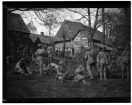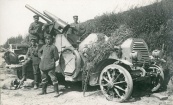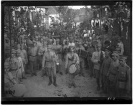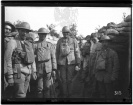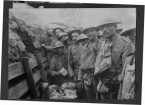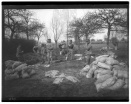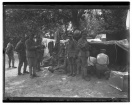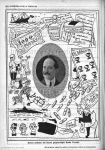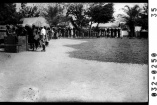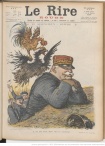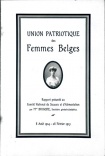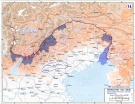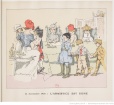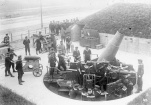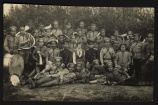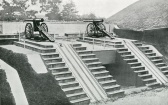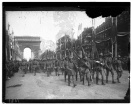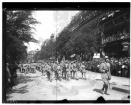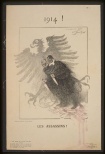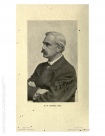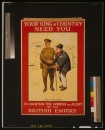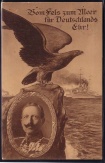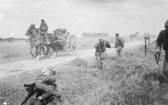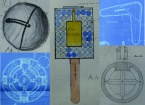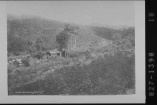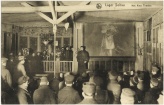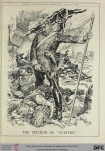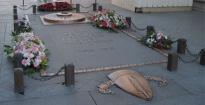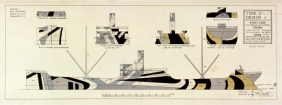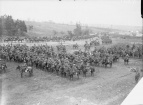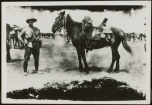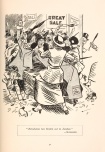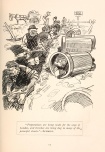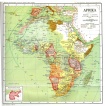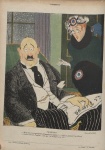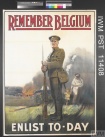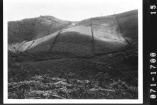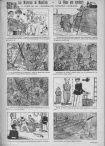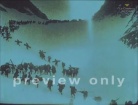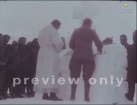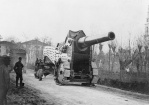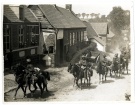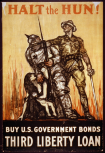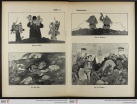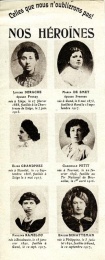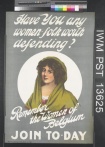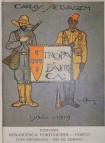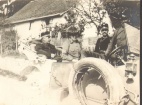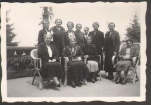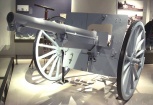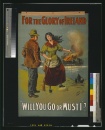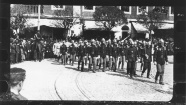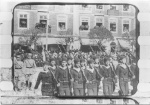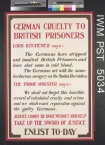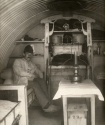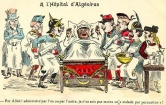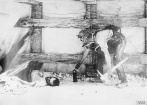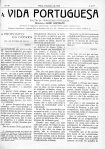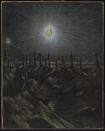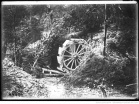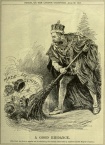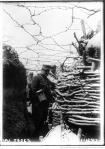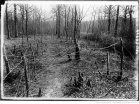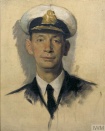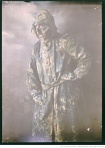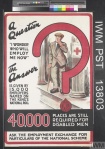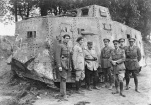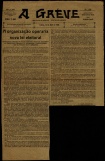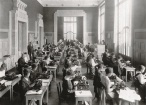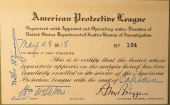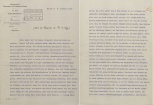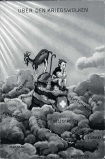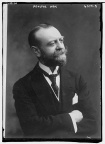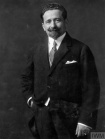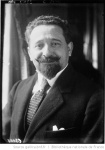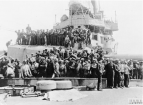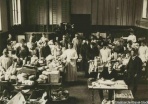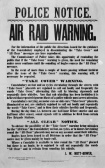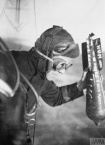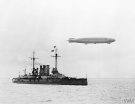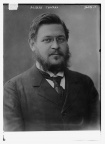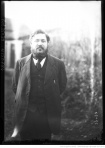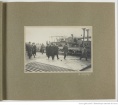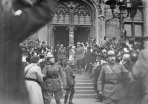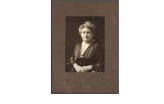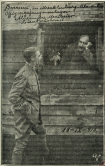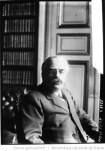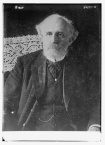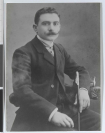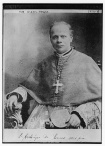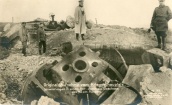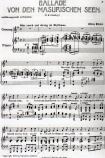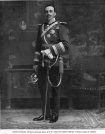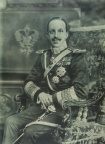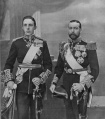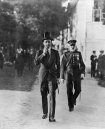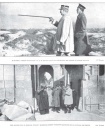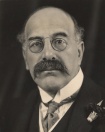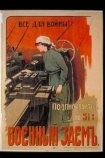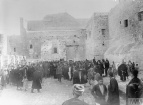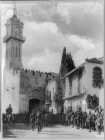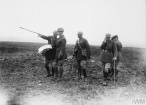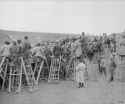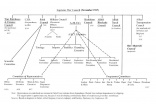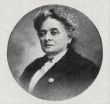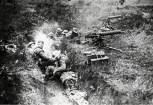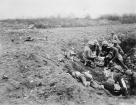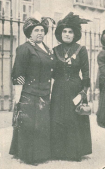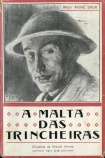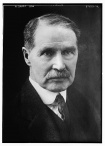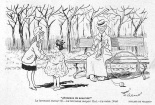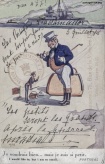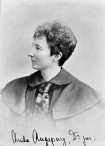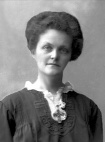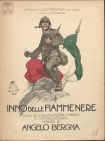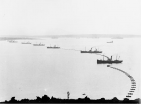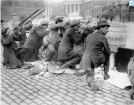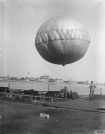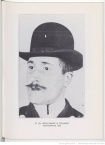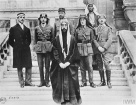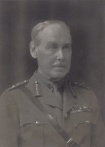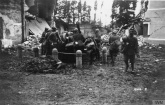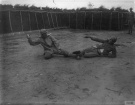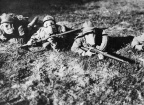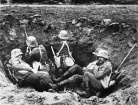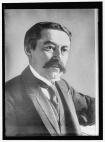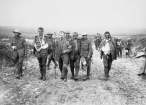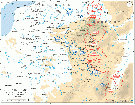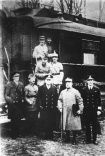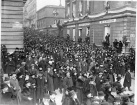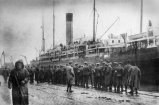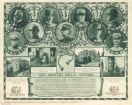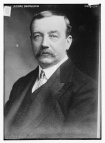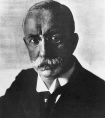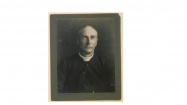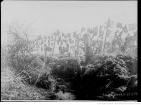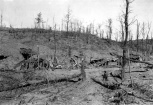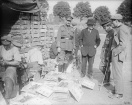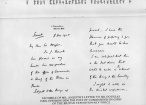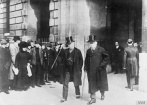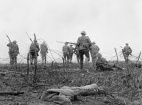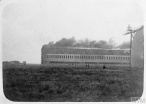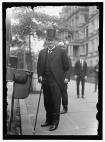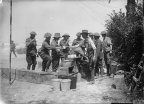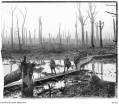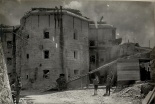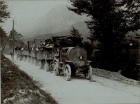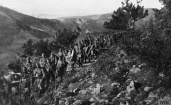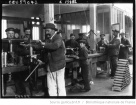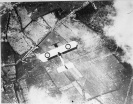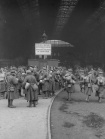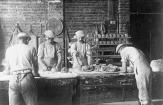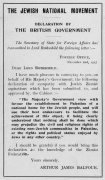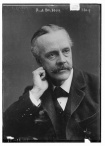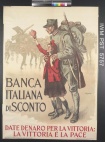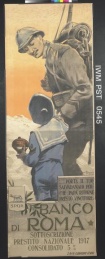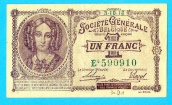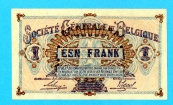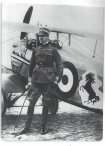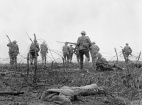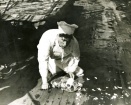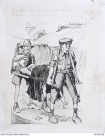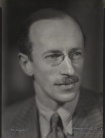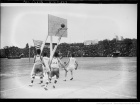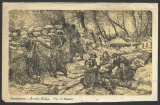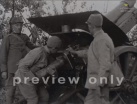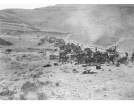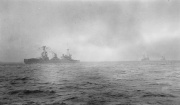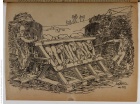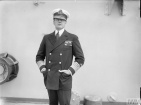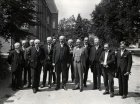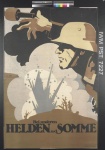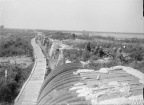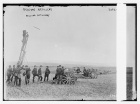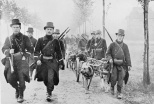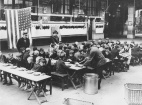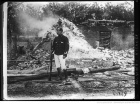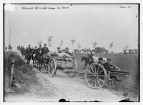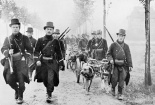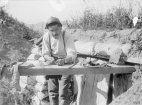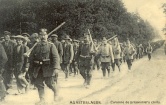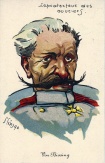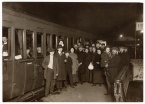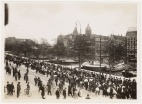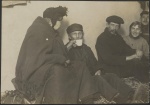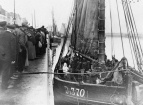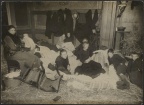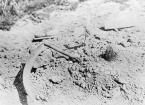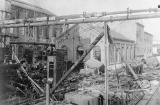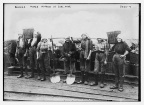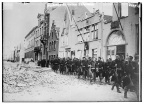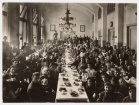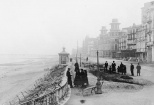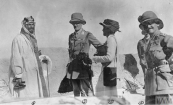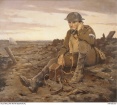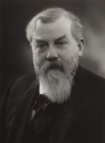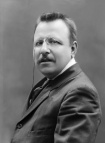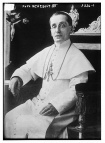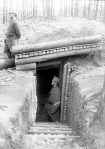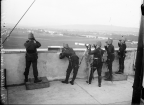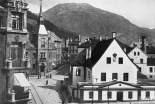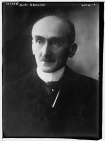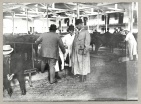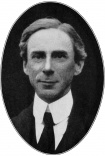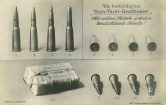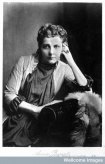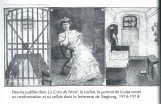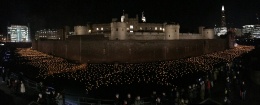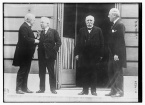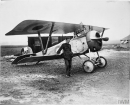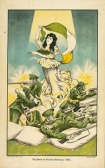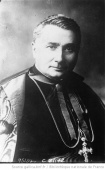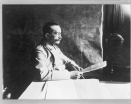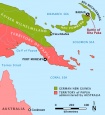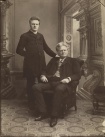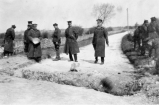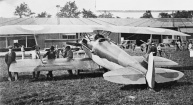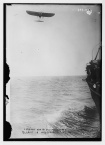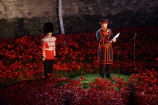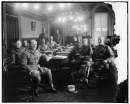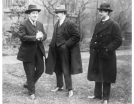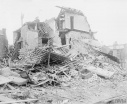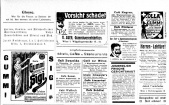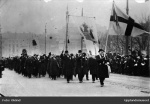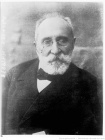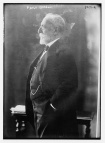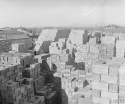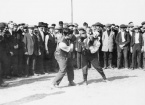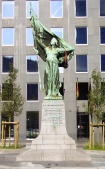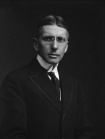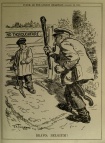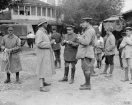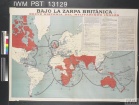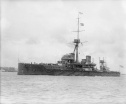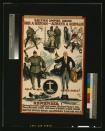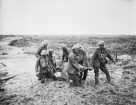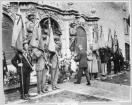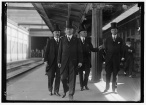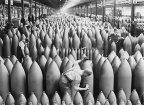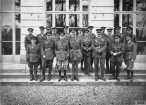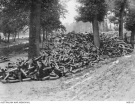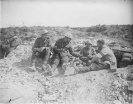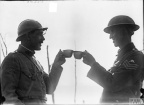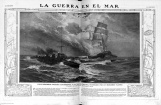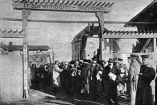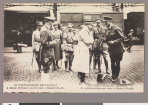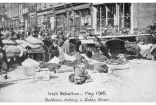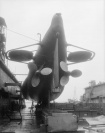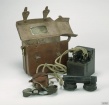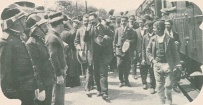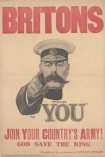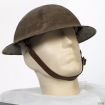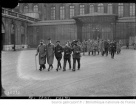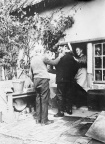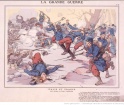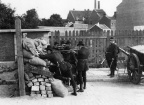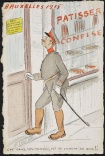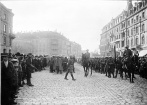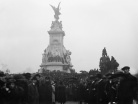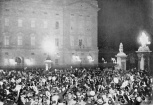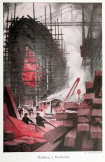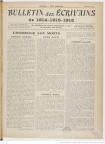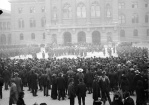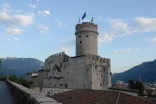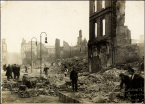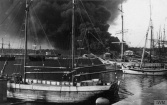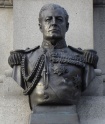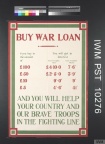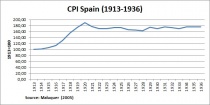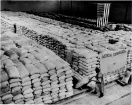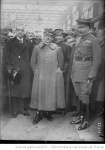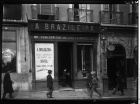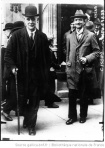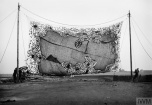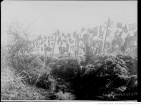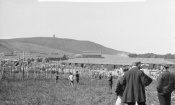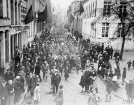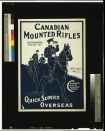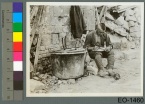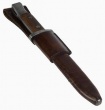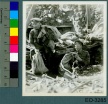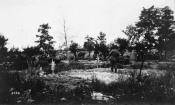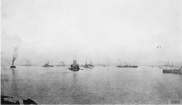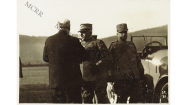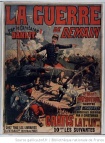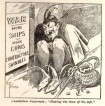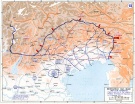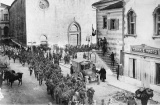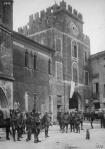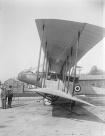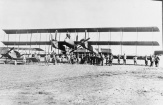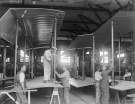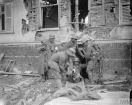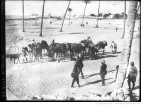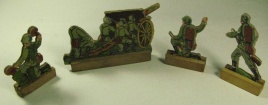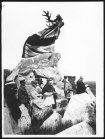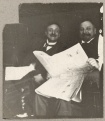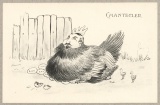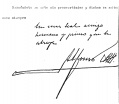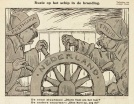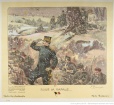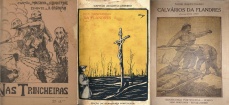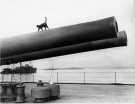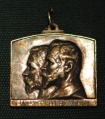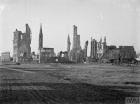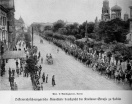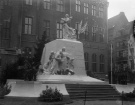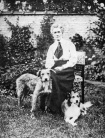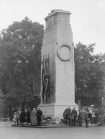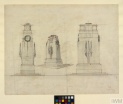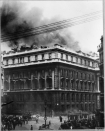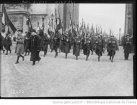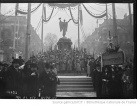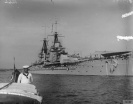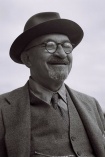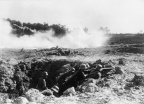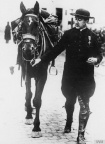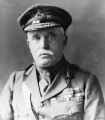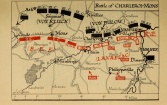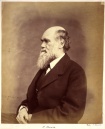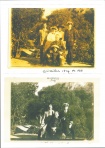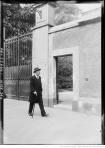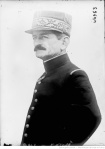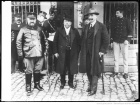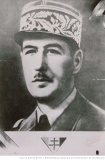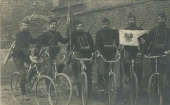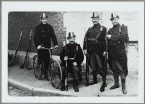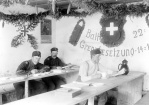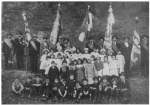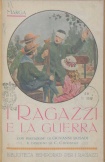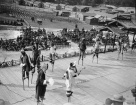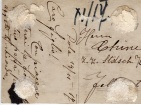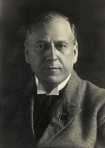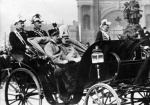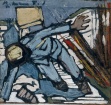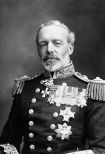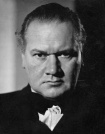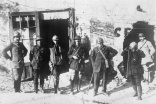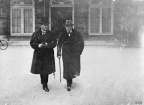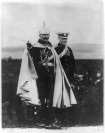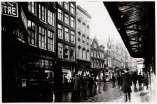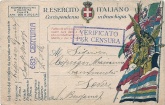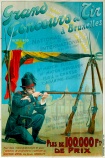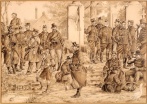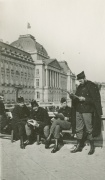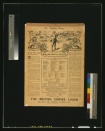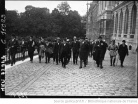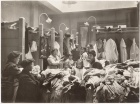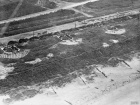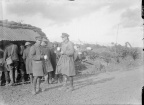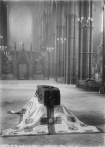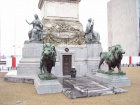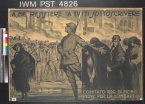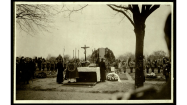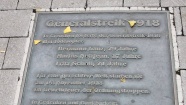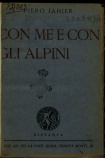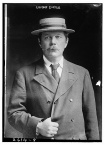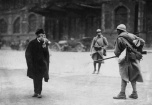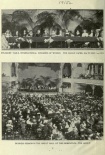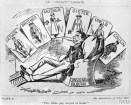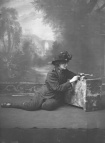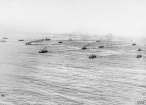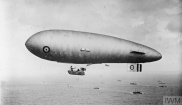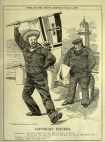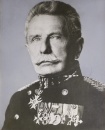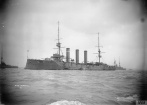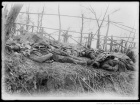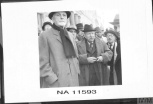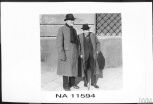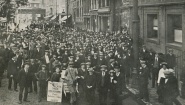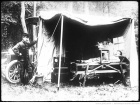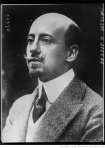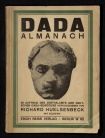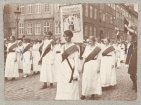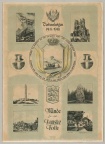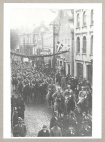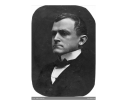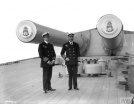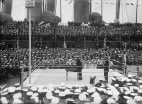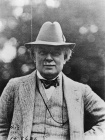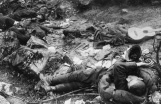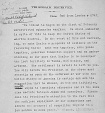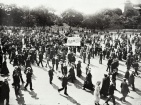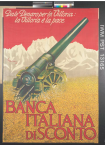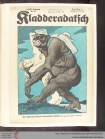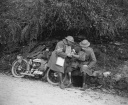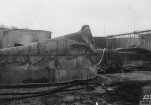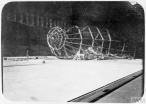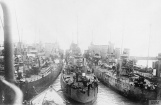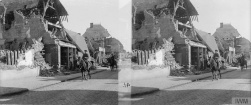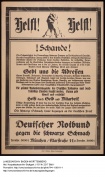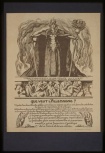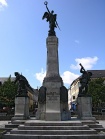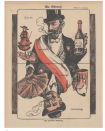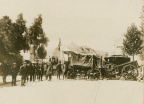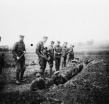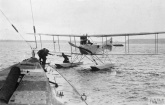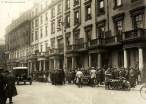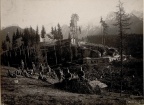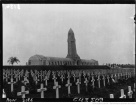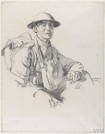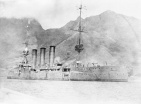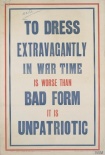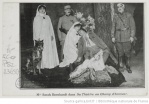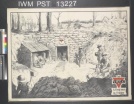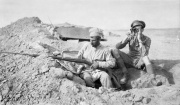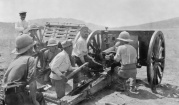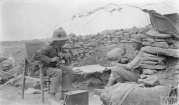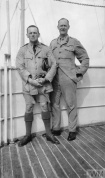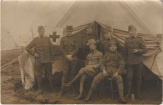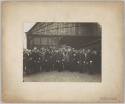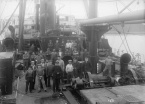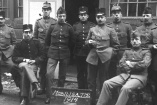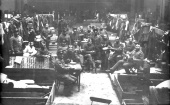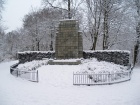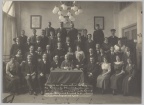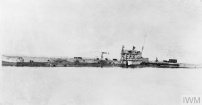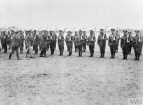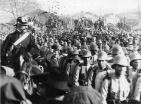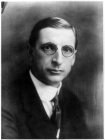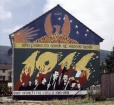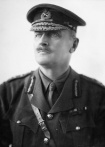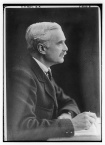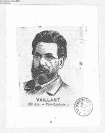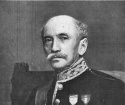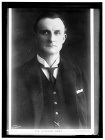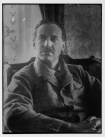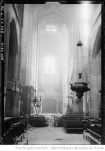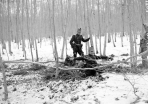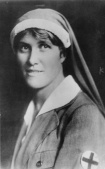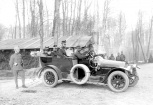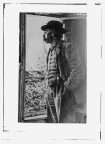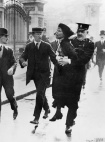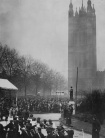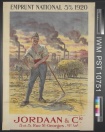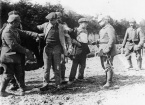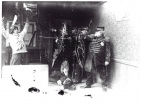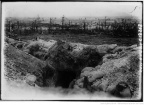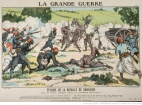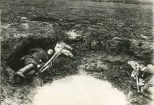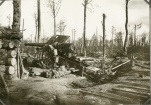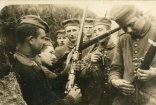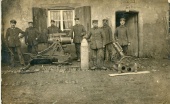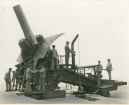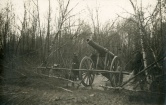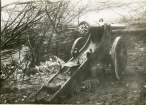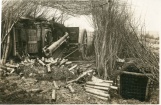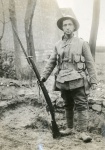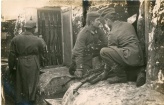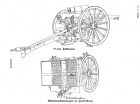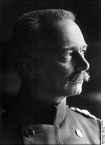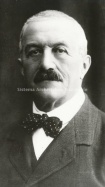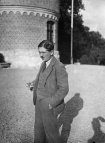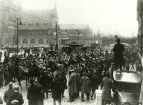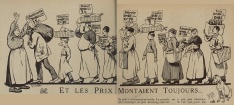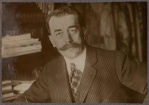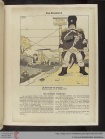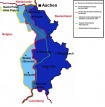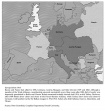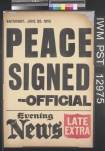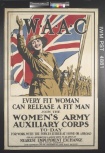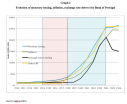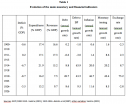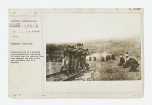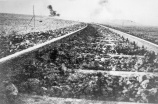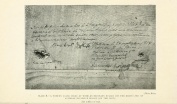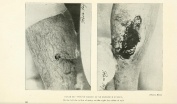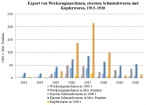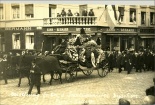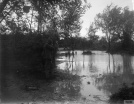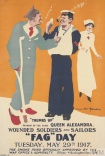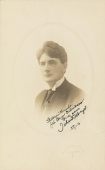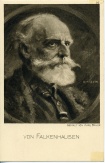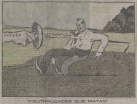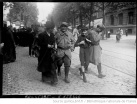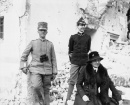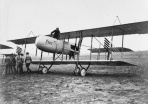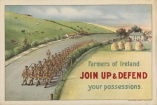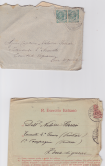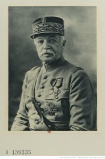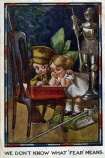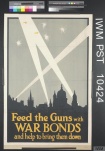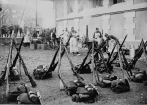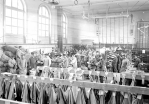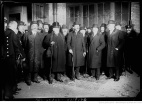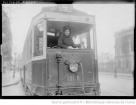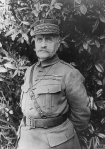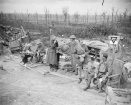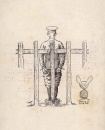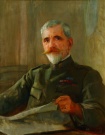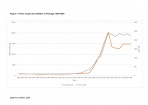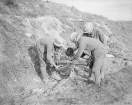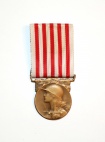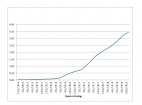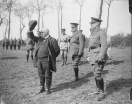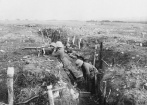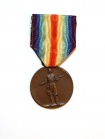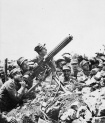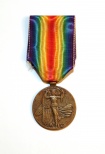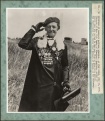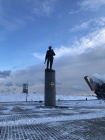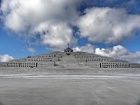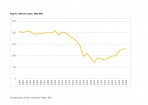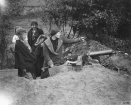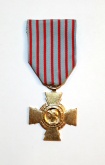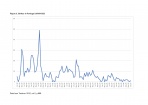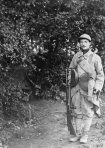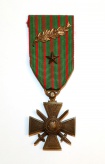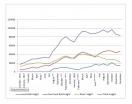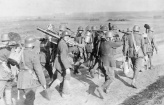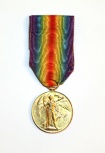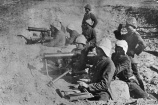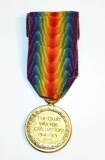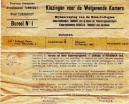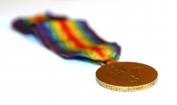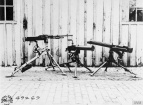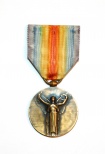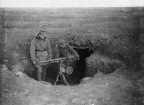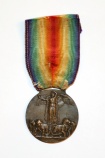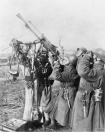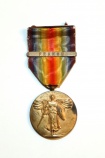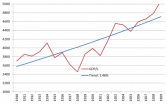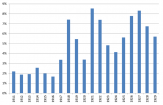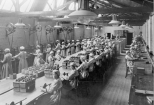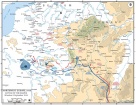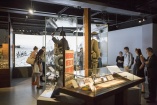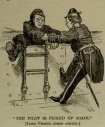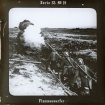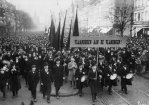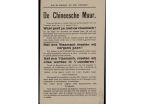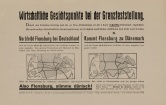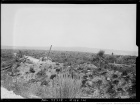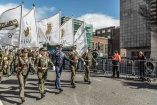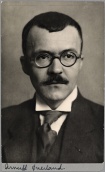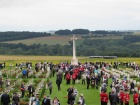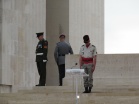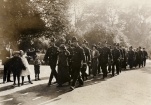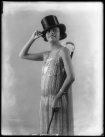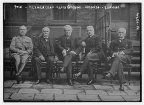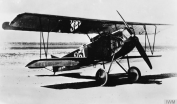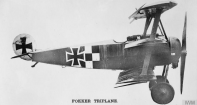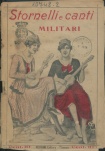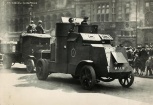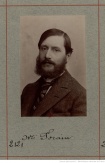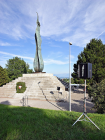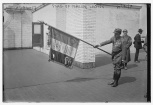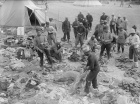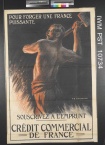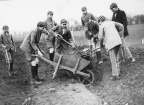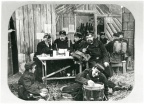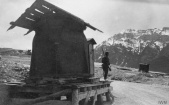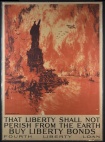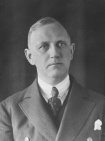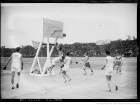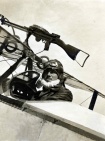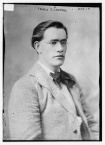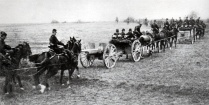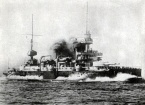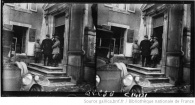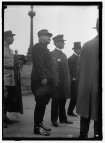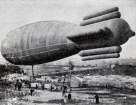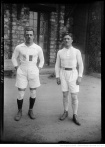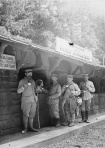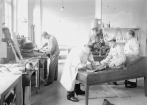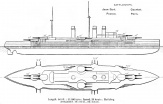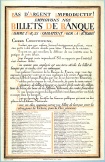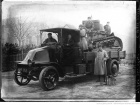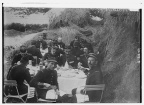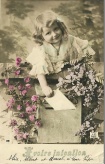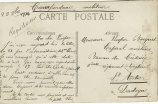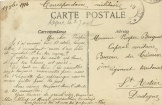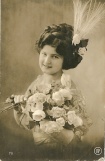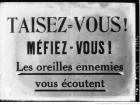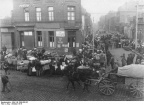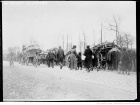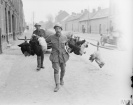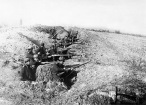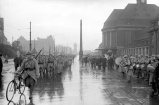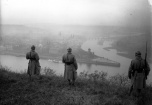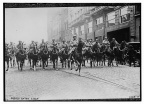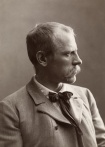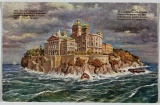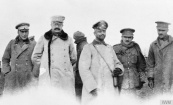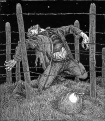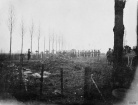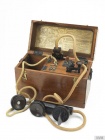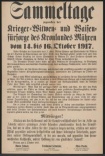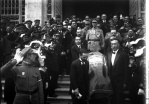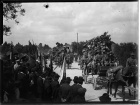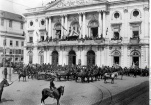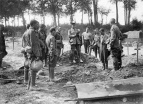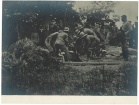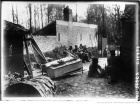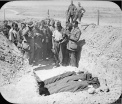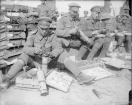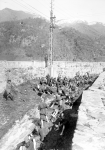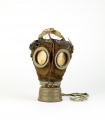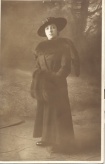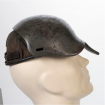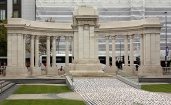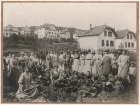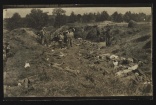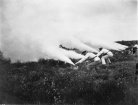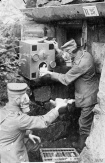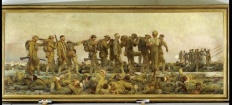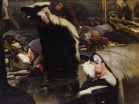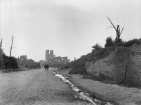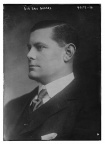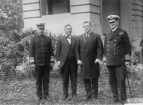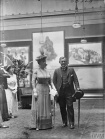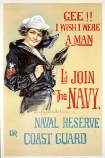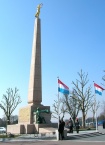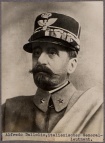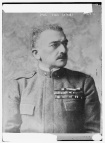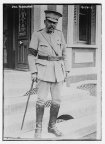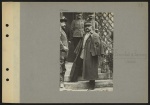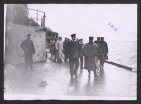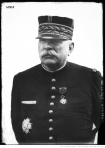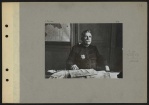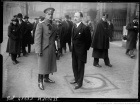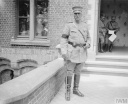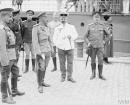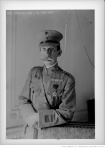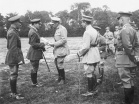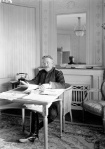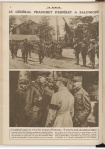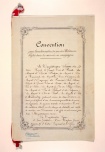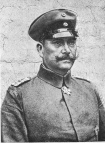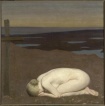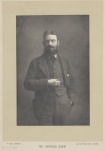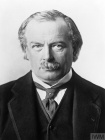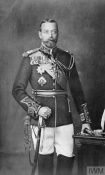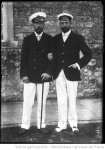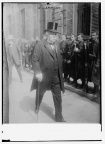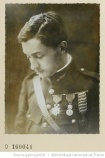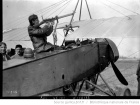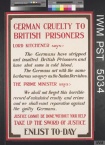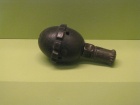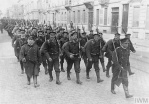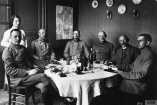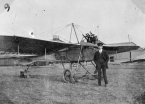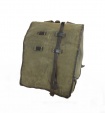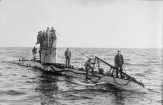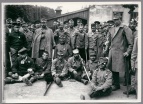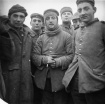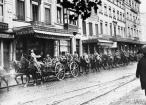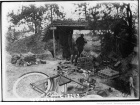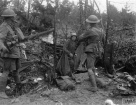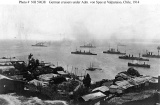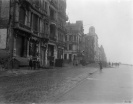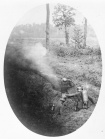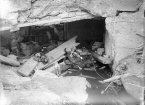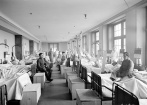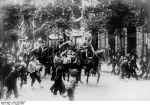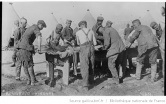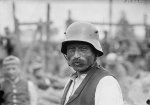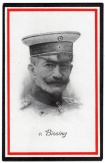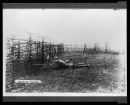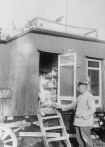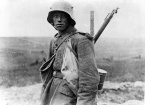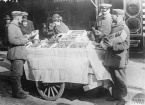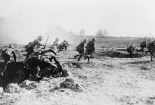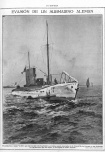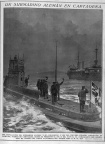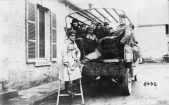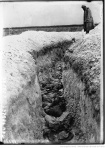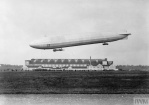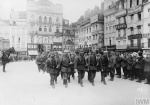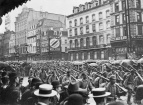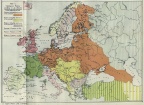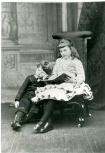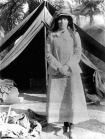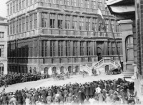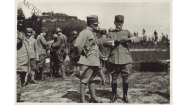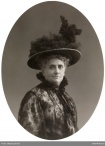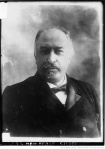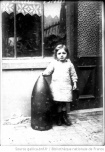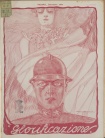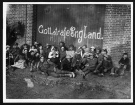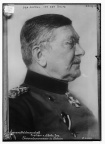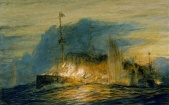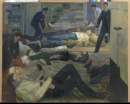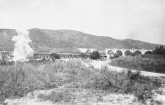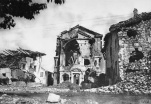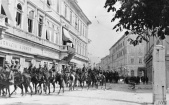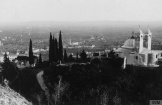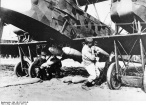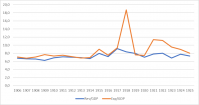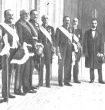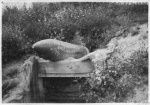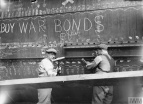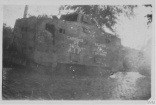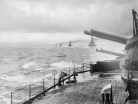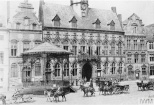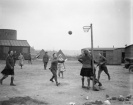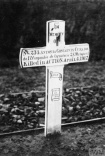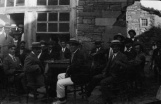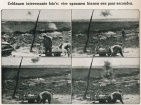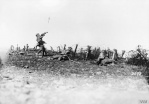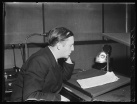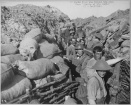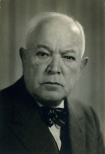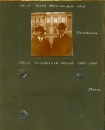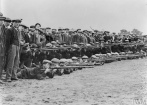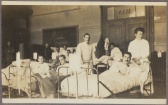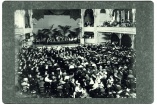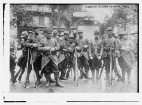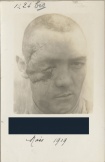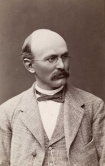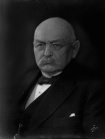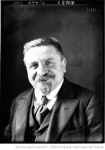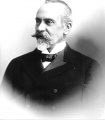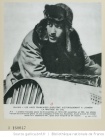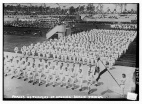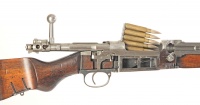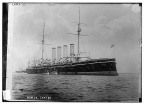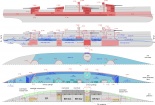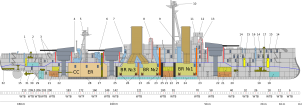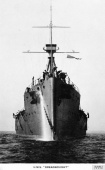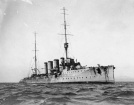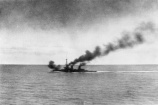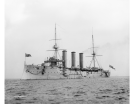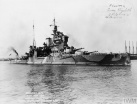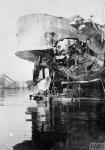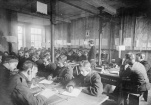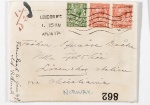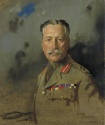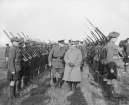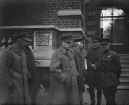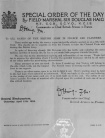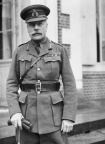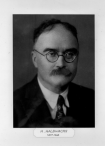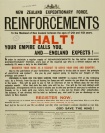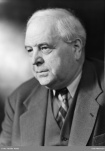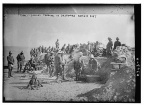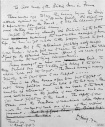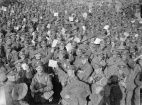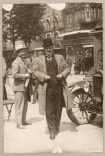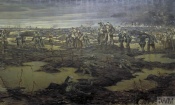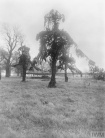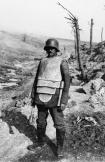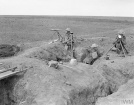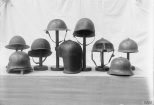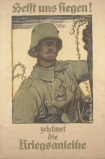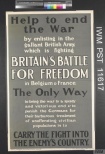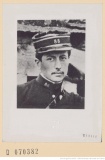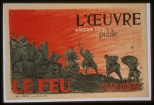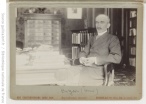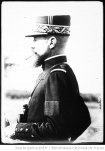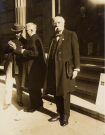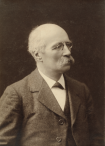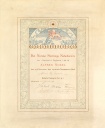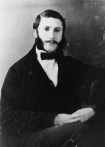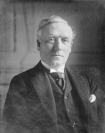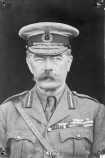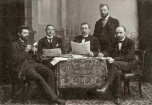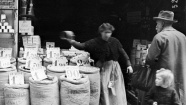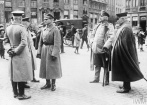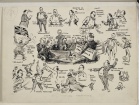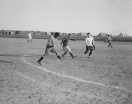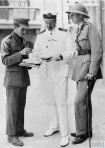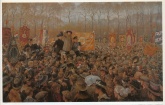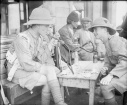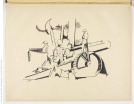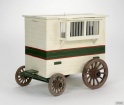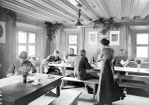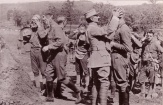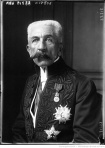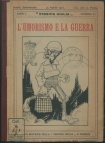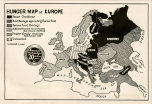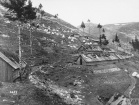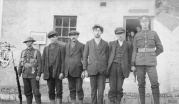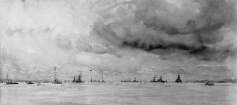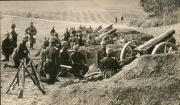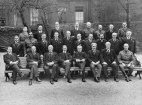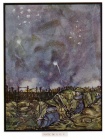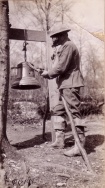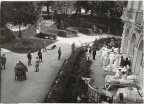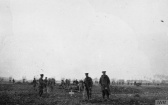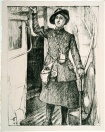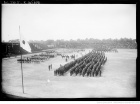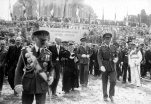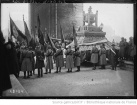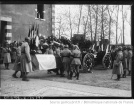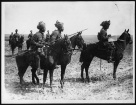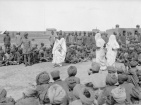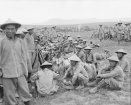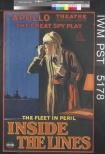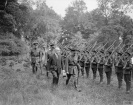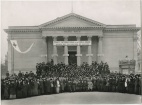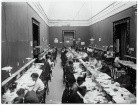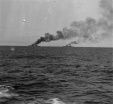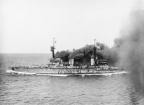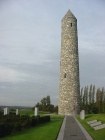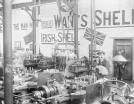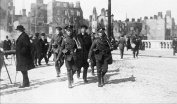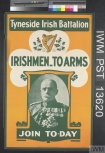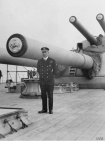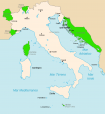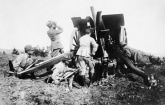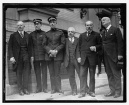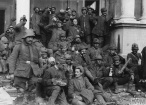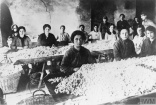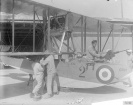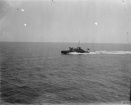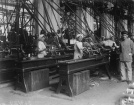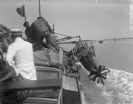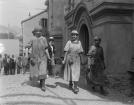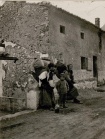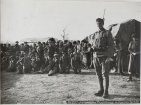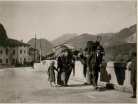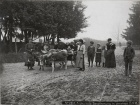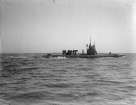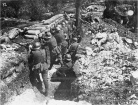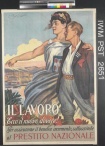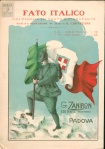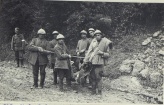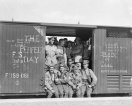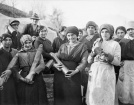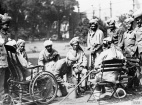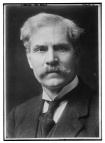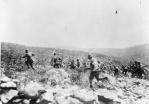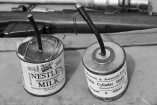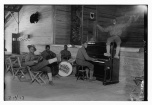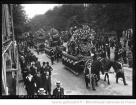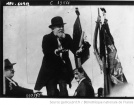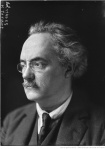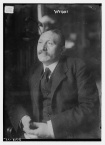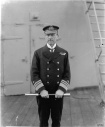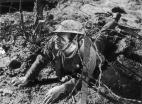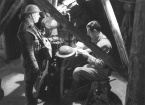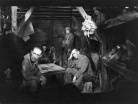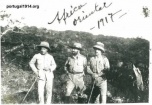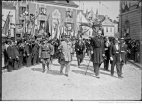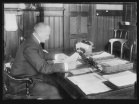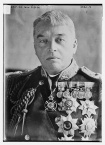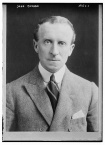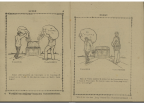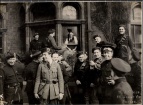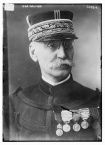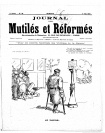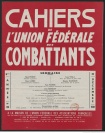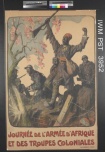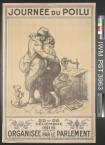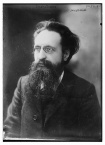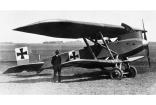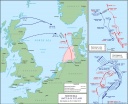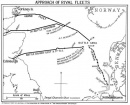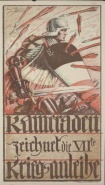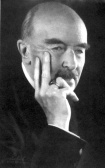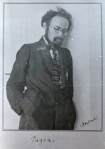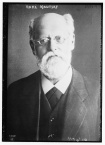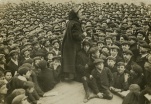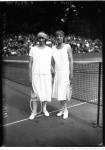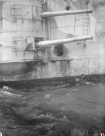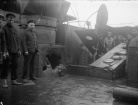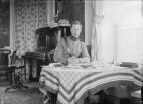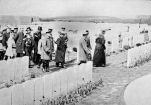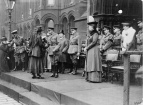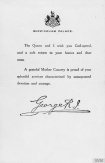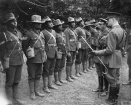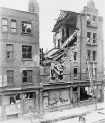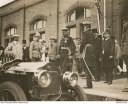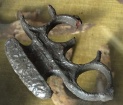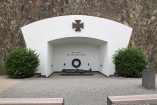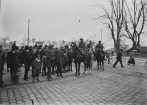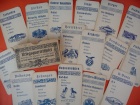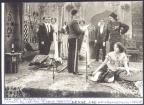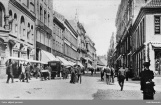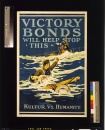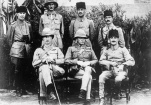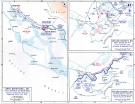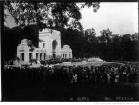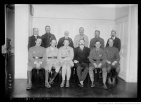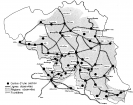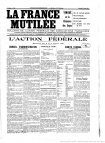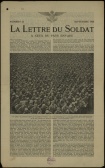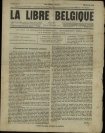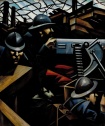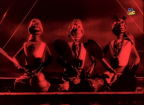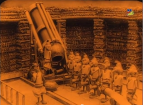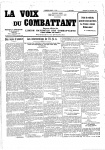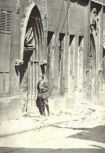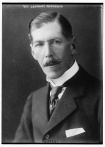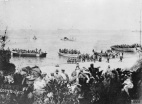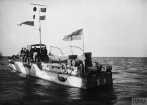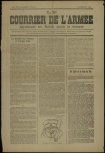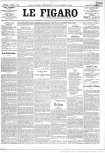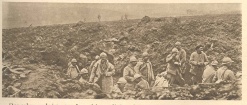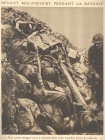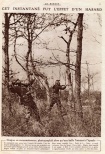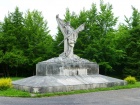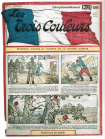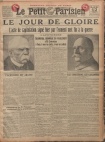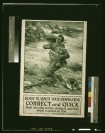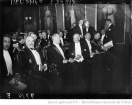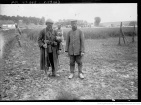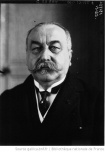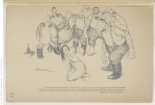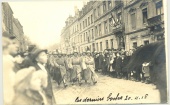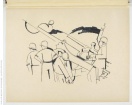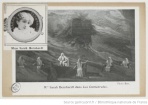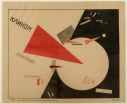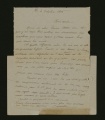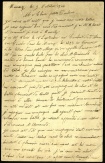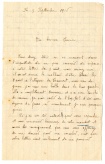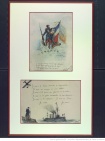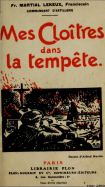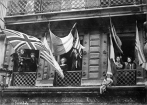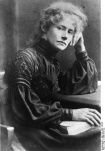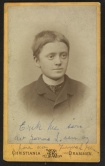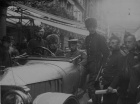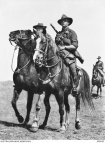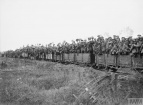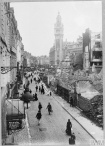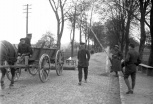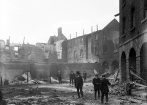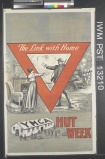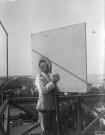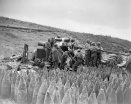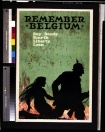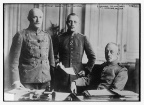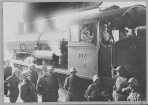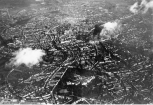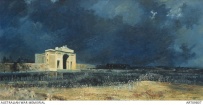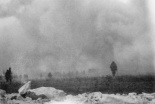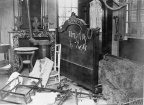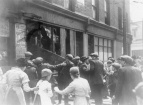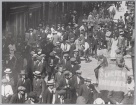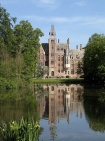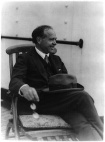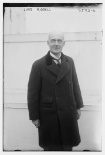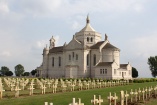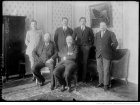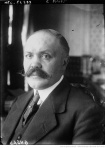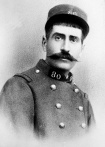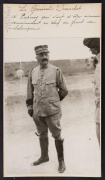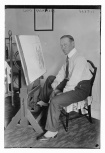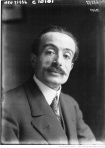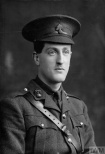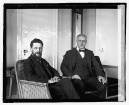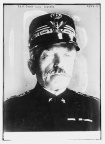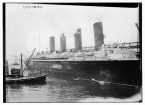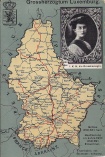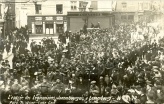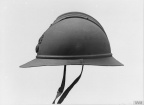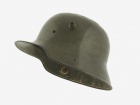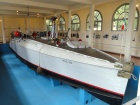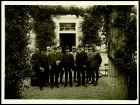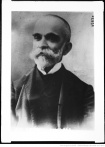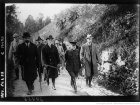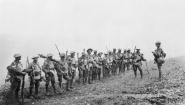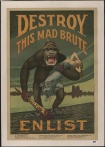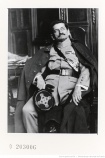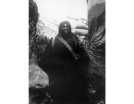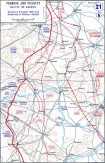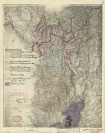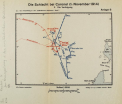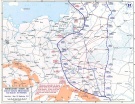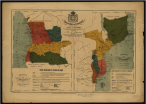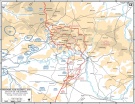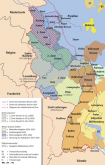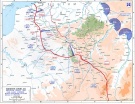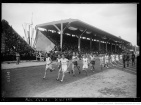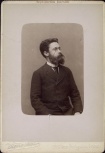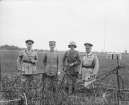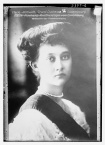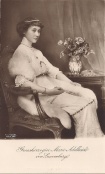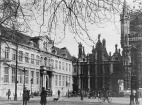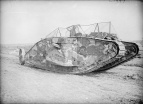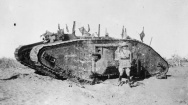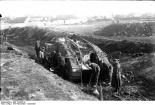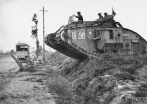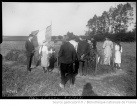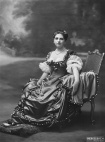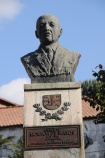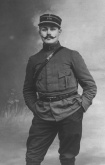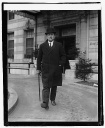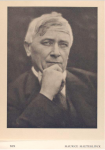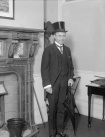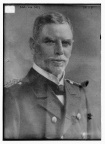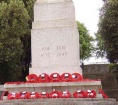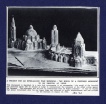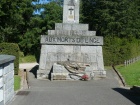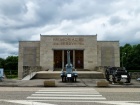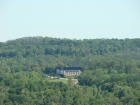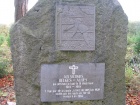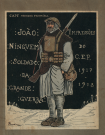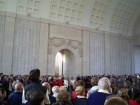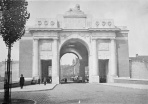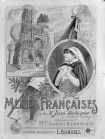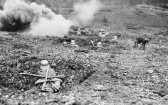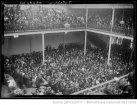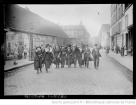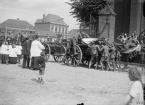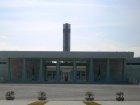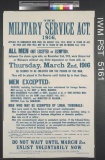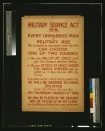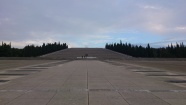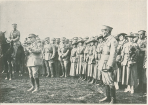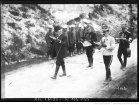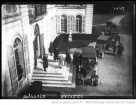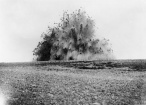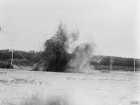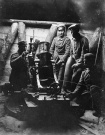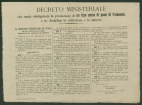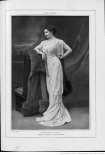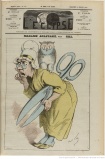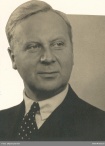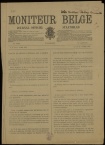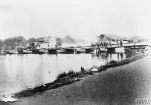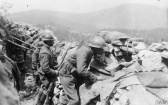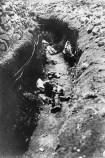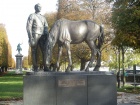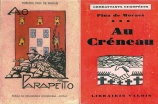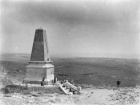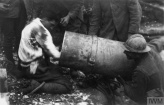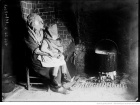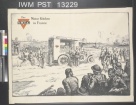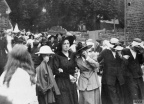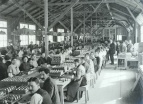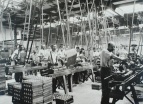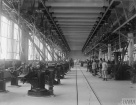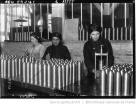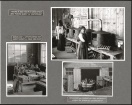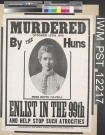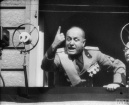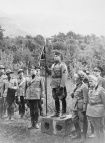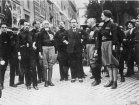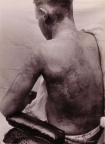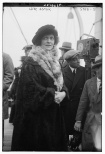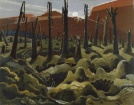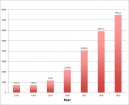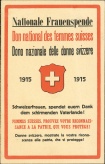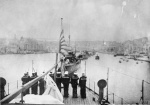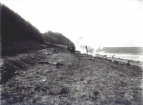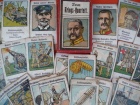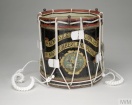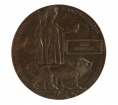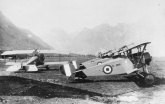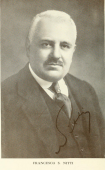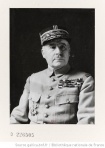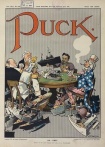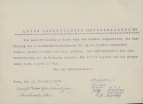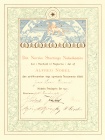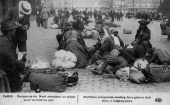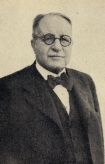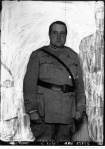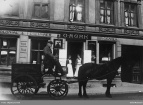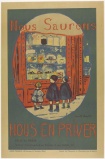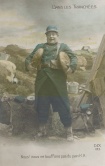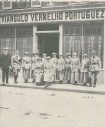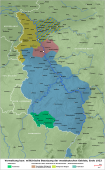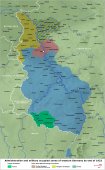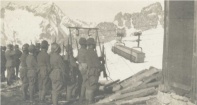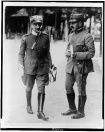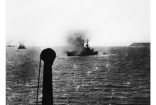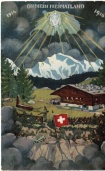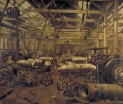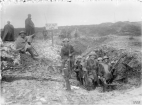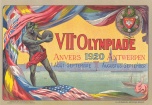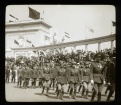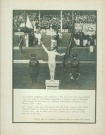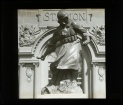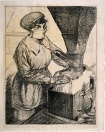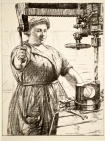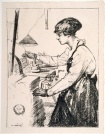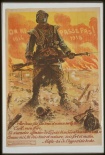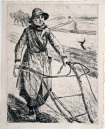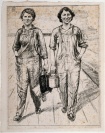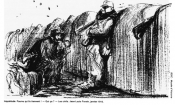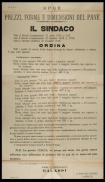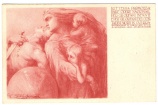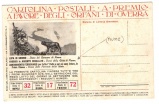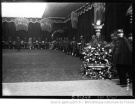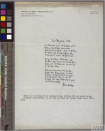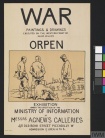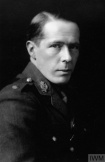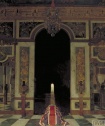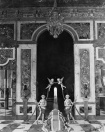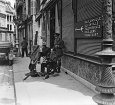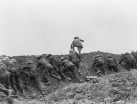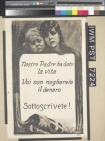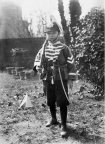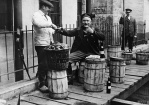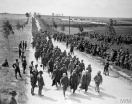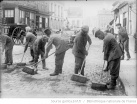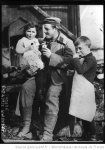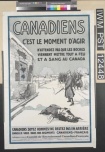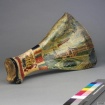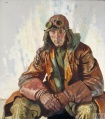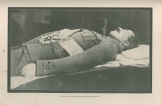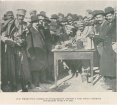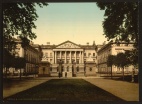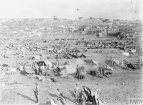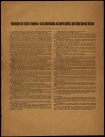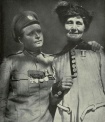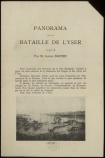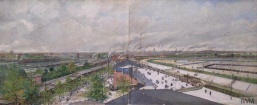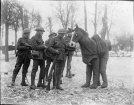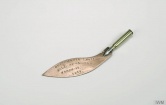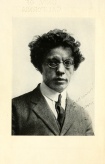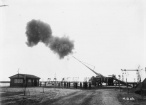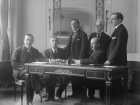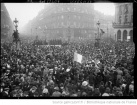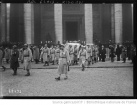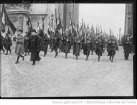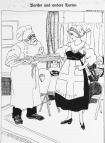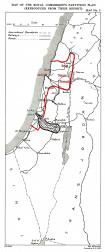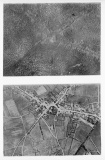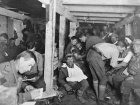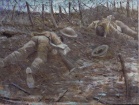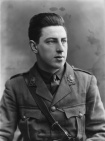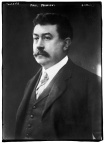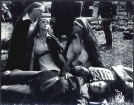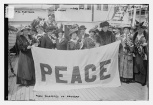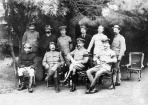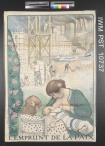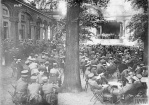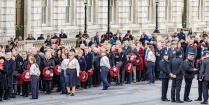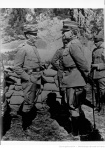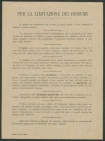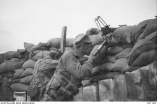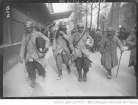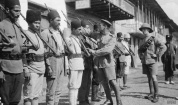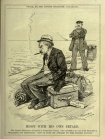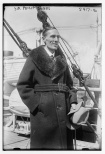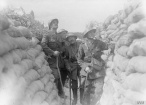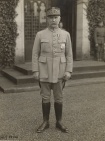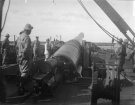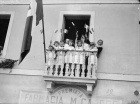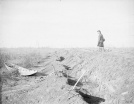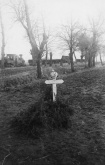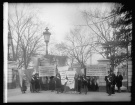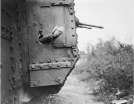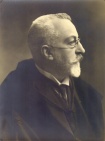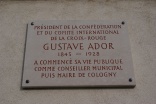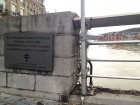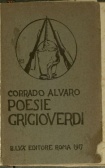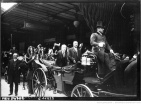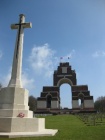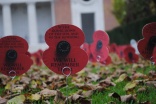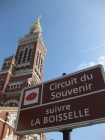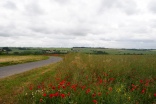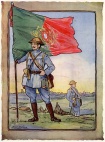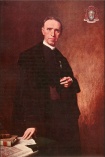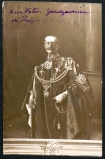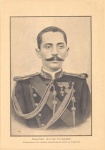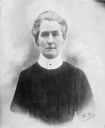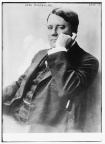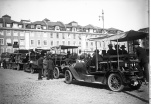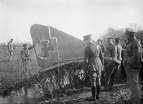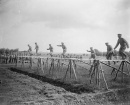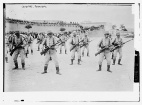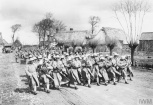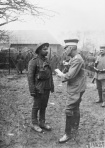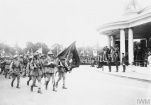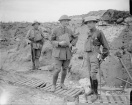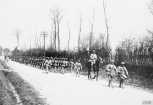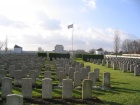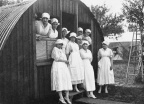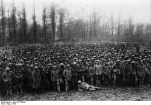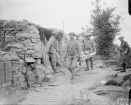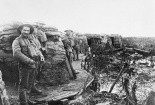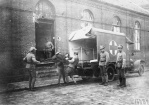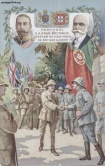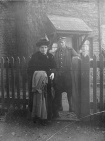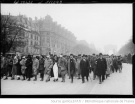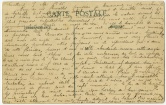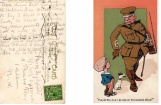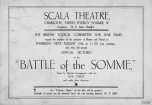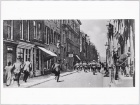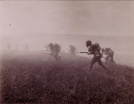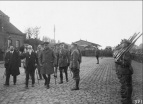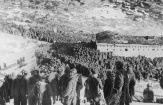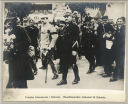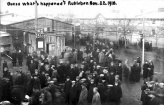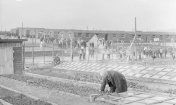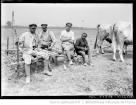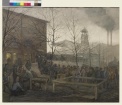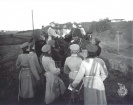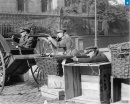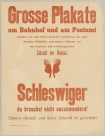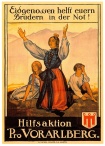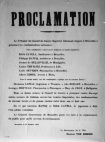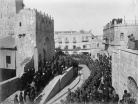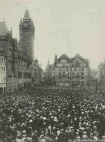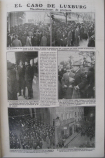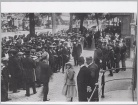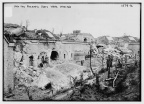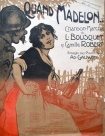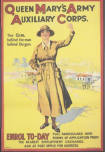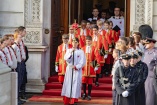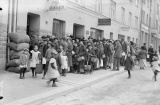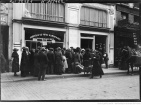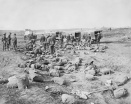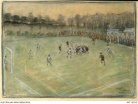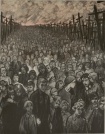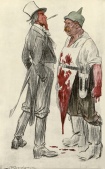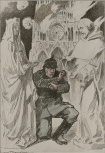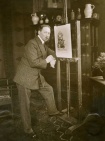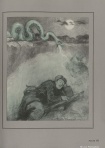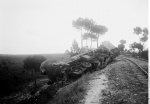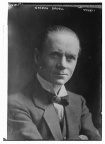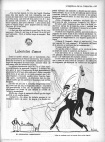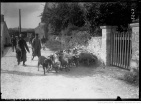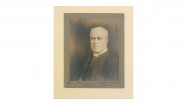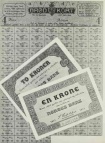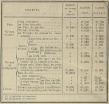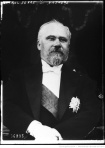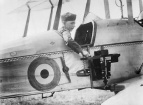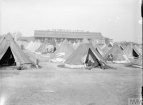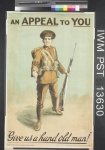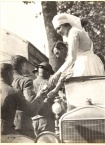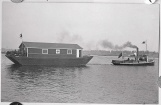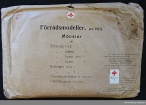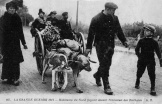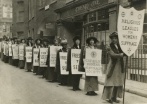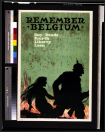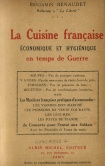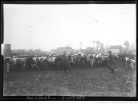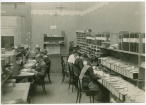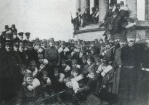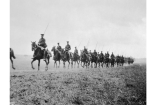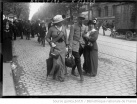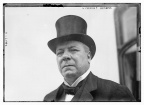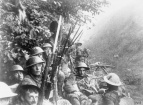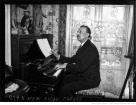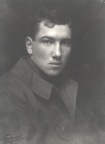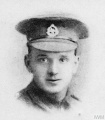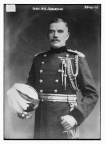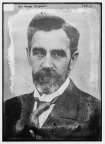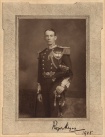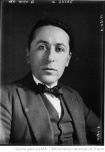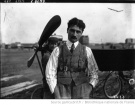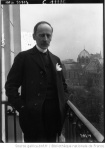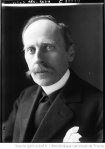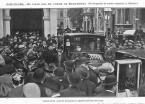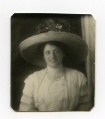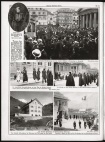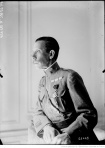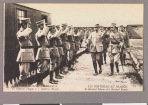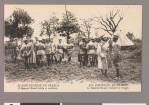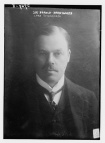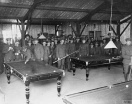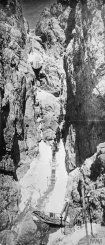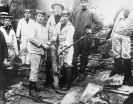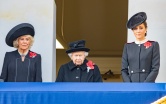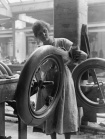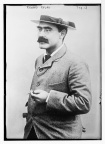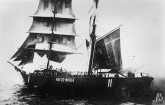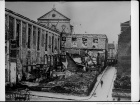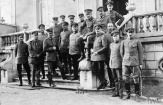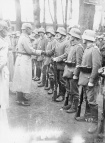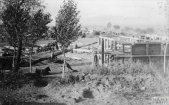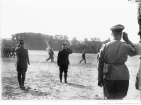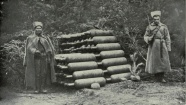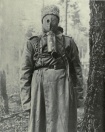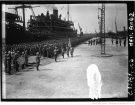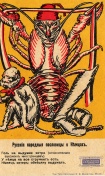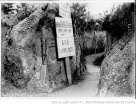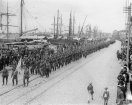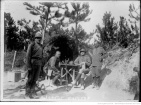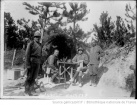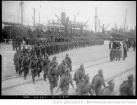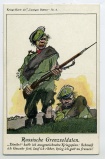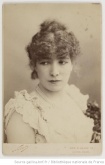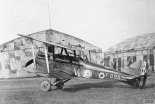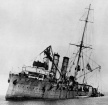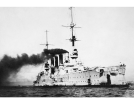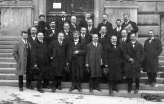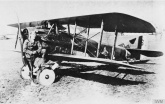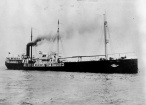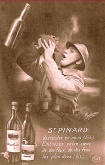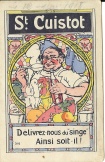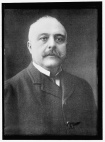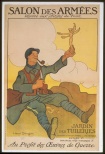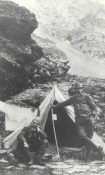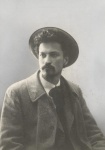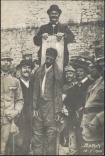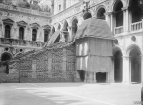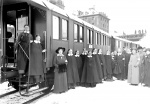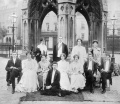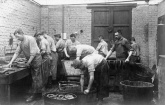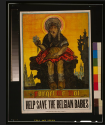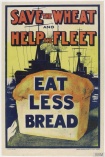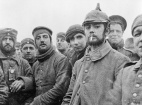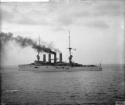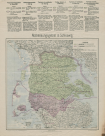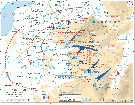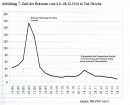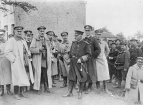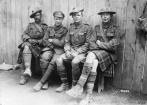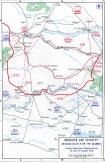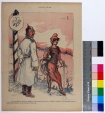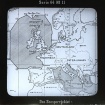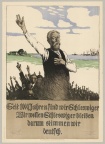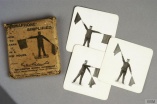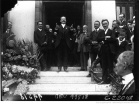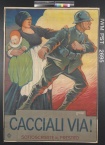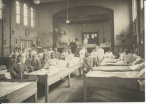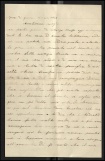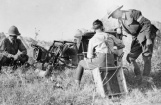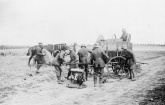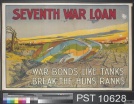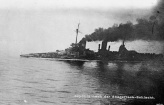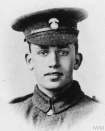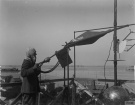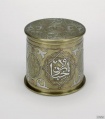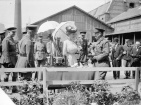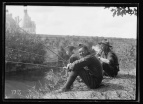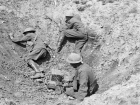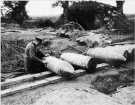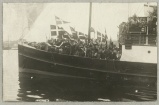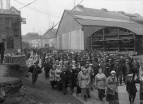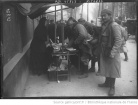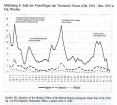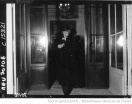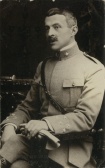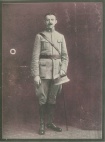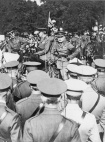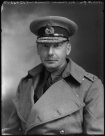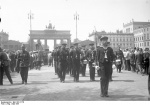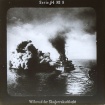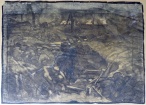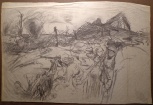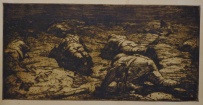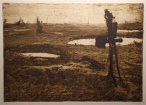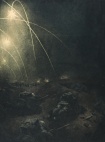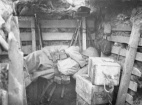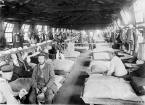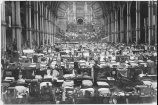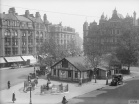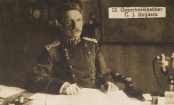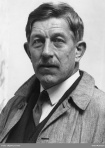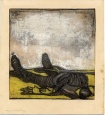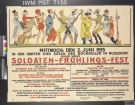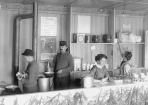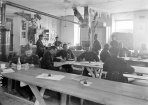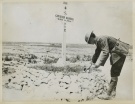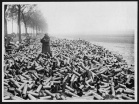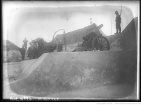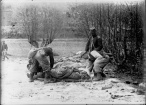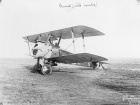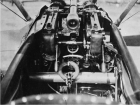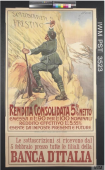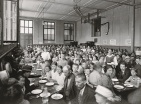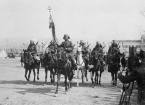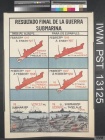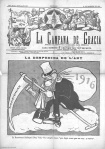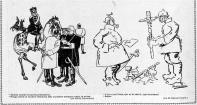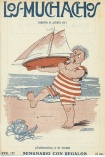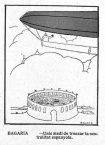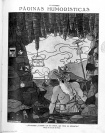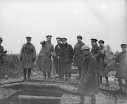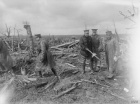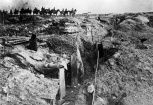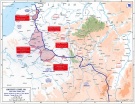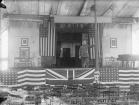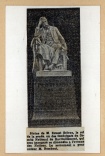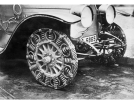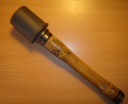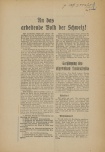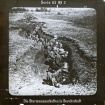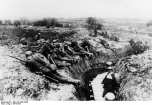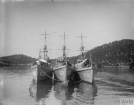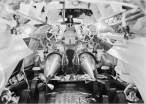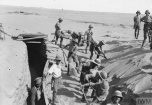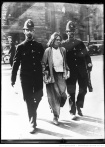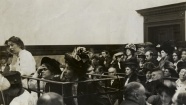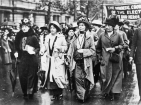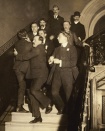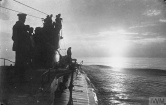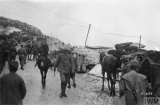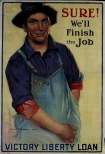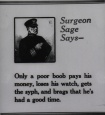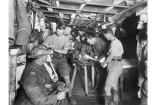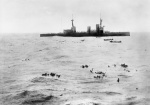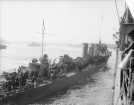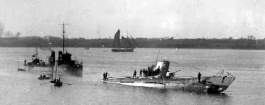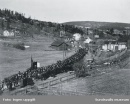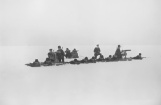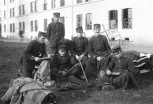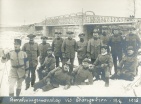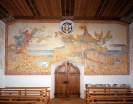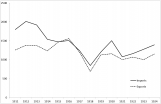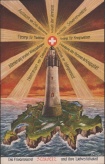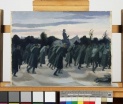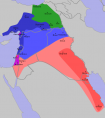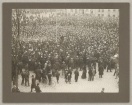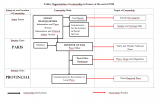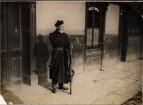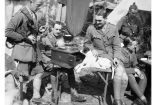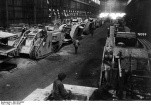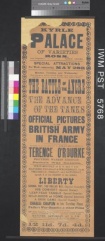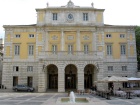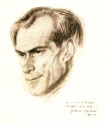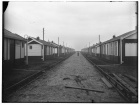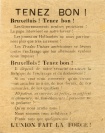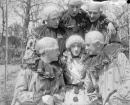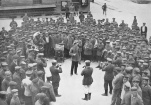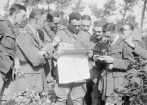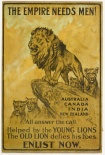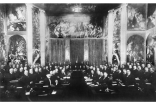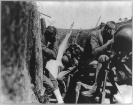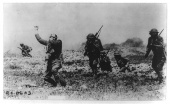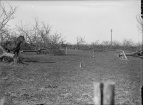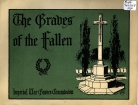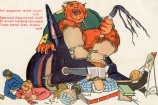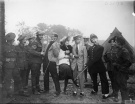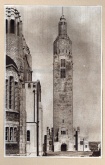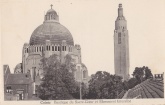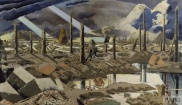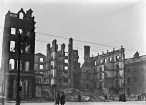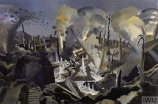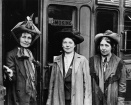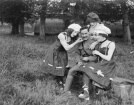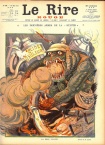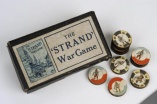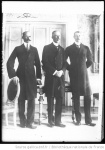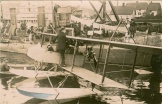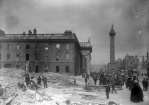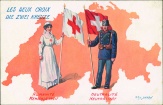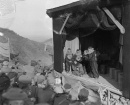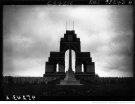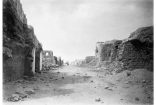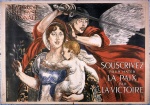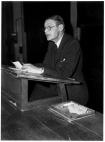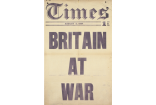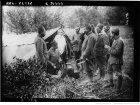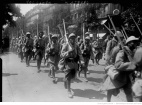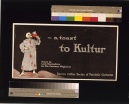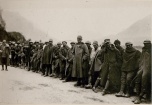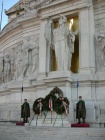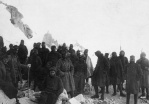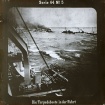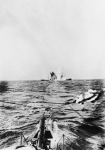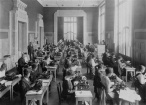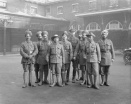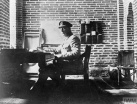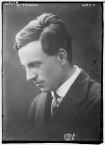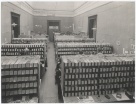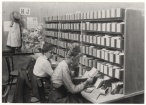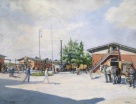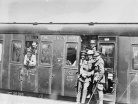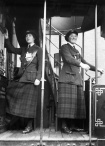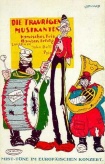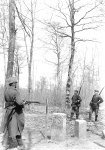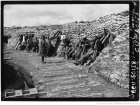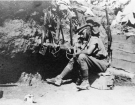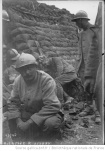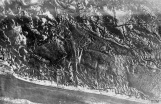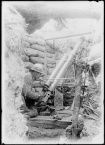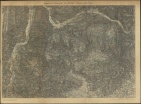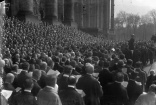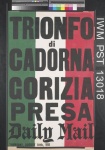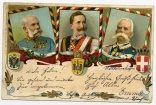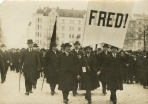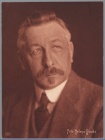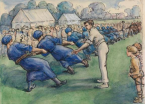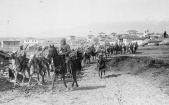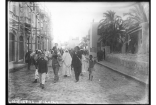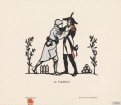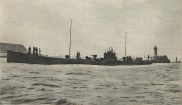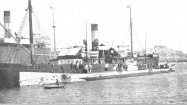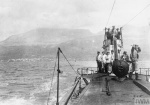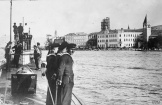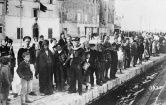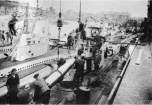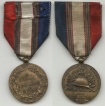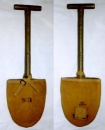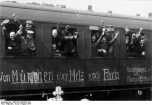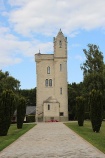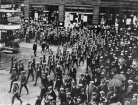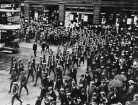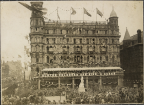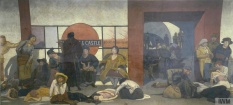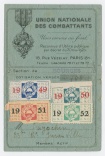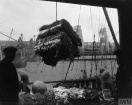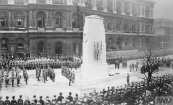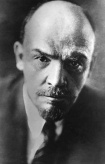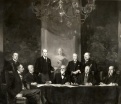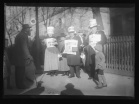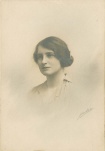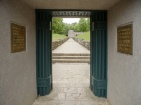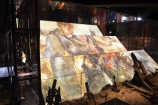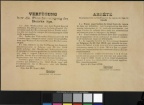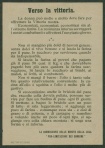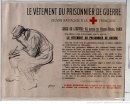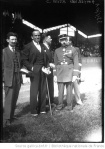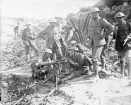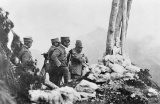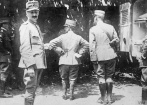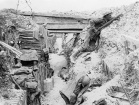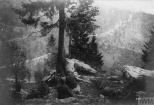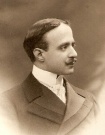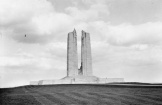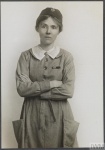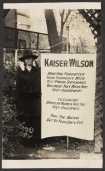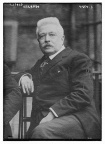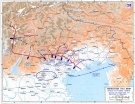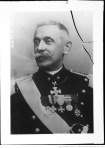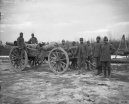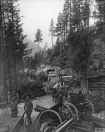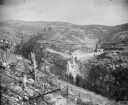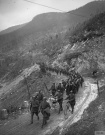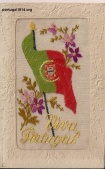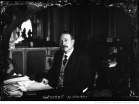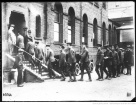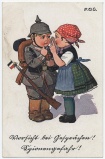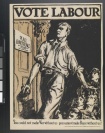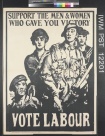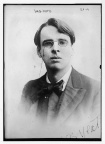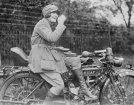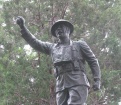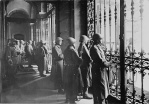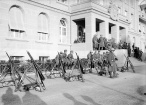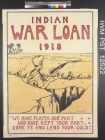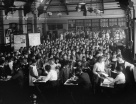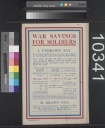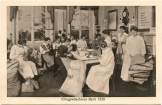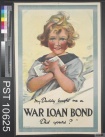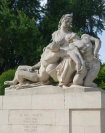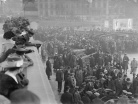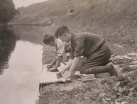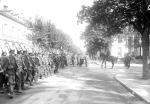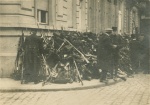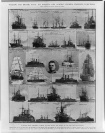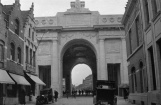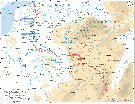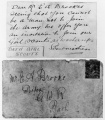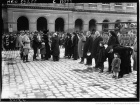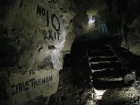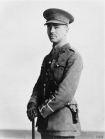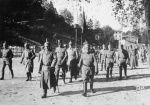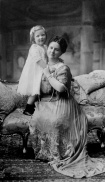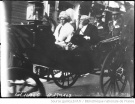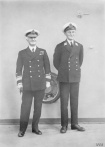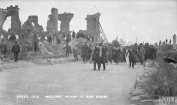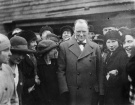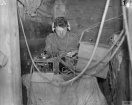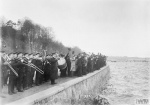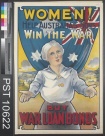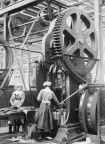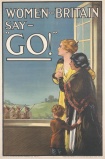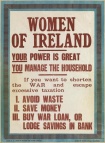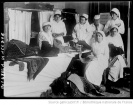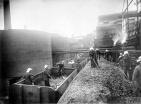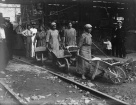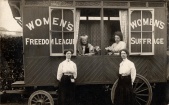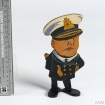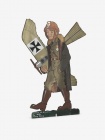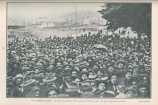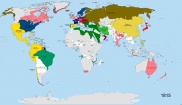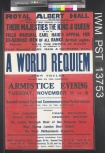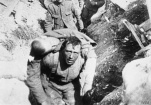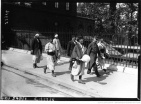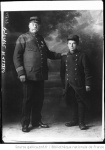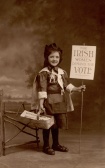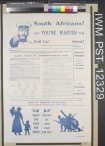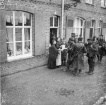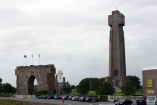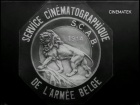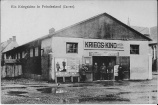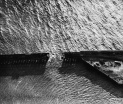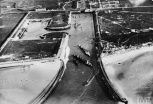Regions Western Europe
Survey Articles (Regional)
Regional Thematic Articles
- African Colonies (Portugal)
- Air Warfare (Italy)
- Art (Italy)
- Art (Portugal)
- Bereavement and Mourning (Belgium)
- Bereavement and Mourning, Commemoration and Cult of the Fallen (France)
- Bereavement and Mourning (Great Britain)
- Between Acceptance and Refusal - Soldiers' Attitudes Towards War (Belgium)
- Between Acceptance and Refusal - Soldiers' Attitudes Towards War (France)
- Between Acceptance and Refusal - Soldiers' Attitudes Towards War (Great Britain and Ireland)
- Between Acceptance and Refusal - Soldiers' Attitudes Towards War (Italy)
- Between Acceptance and Refusal - Soldiers' Attitudes Towards War (Portugal)
- Centenary (Belgium)
- Centenary (Canada)
- Centenary (France)
- Centenary (Ireland)
- Centenary (Italy)
- Centenary (Portugal)
- Centenary (Switzerland)
- Centenary (The Netherlands)
- Centenary (United Kingdom)
- Children and Childhood (France)
- Children and War (Italy)
- Civilian and Military Power (Belgium)
- Civilian and Military Power (France)
- Civilian and Military Power (Great Britain and Ireland)
- Civilian and Military Power (Italy)
- Civil-Military Relations during World War I (Portugal)
- Colonies (Italy)
- Commemoration, Cult of the Fallen (Belgium)
- Commemoration, Cult of the Fallen (Great Britain and Ireland)
- Commemoration (Switzerland)
- Diplomacy (Portugal)
- Discipline and Military Justice (Italy)
- Disease and Public Health (Portugal)
- Domestic Politics and Neutrality (Denmark)
- Domestic Politics and Neutrality (Norway)
- Domestic Politics and Neutrality (Spain)
- Domestic Politics and Neutrality (Sweden)
- Domestic Politics and Neutrality (Switzerland)
- Domestic Politics and Neutrality (The Netherlands)
- Dominions’ Military Relationship to Great Britain 1902-1914 (British Dominions)
- Easter Rising (Great Britain and Ireland)
- Exile and Migration (Spain)
- Exile and Migration (Sweden)
- Exile and Migration (Switzerland)
- Exile and Migration (The Netherlands)
- Film/Cinema (Belgium)
- Film/Cinema (Denmark)
- Film/Cinema (France)
- Film/Cinema (Great Britain)
- Film/Cinema (Italy)
- Film/Cinema (Norway)
- Film/Cinema (Portugal)
- Film/Cinema (Spain)
- Film/Cinema (Sweden)
- Film/Cinema (The Netherlands)
- Food and Nutrition (Belgium)
- Food and Nutrition (France)
- Food and Nutrition (Great Britain and Ireland)
- Food and Nutrition (Italy)
- Food and Nutrition (Portugal)
- Food and Nutrition (Switzerland)
- Foreign Policy and Business Diplomacy (Denmark)
- Foreign Policy (Norway)
- Foreign Policy (Spain)
- Foreign Policy (Sweden)
- Foreign Policy (The Netherlands)
- Governments, Parliaments and Parties (Belgium)
- Governments, Parliaments and Parties (France)
- Governments, Parliaments and Parties (Great Britain and Ireland)
- Governments, Parliaments and Parties (Italy)
- Governments, Parliaments and Parties (Portugal)
- Historiography 1918-Today (Belgium)
- Historiography 1918-Today (France)
- Historiography 1918-Today (Great Britain)
- Historiography 1918-Today (Ireland)
- Historiography 1918-Today (Italy)
- Historiography 1918-Today (Portugal)
- Historiography 1918-Today (Switzerland)
- Humanitarianism (Denmark)
- Humanitarianism (Norway)
- Humanitarianism (Spain)
- Humanitarianism (Sweden)
- Humanitarianism (The Netherlands)
- Intelligence and Espionage (Denmark)
- Intelligence and Espionage (Norway)
- Intelligence and Espionage (Spain)
- Intelligence and Espionage (Sweden)
- Intelligence and Espionage (The Netherlands)
- International Committee of the Red Cross
- Internees (Switzerland)
- Labour (Belgium)
- Labour (France)
- Labour, Labour Movements, Trade Unions and Strikes (Great Britain and Ireland)
- Labour, Labour Movements, Trade Unions and Strikes (Italy)
- Labour, Labour Movements, Trade Unions and Strikes (Switzerland)
- Labour Movements and Strikes, Social Conflict and Control, Protest and Repression (France)
- Labour Movements, Trade Unions and Strikes (Belgium)
- Labour Movements, Trade Unions and Strikes (Portugal)
- Labour (Portugal)
- Literature (Belgium)
- Literature (France)
- Literature (Great Britain and Ireland)
- Literature (Italy)
- Literature (Portugal)
- Literature (Switzerland)
- Making Sense of the War (Belgium)
- Making Sense of the War (Denmark)
- Making Sense of the War (France)
- Making Sense of the War (Great Britain and Ireland)
- Making Sense of the War (Italy)
- Making Sense of the War (Norway)
- Making Sense of the War (Portugal)
- Making Sense of the War (Spain)
- Making Sense of the War (Sweden)
- Making Sense of the War (The Netherlands)
- Migration (Norway)
- Military and Strategy (Denmark)
- Military and Strategy (Norway)
- Military and Strategy (Spain)
- Military and Strategy (Sweden)
- Military and Strategy (Switzerland)
- Military and Strategy (The Netherlands)
- Minorities in Germany (Denmark)
- Mourning and Cult of the Fallen (Italy)
- Mourning and Cult of the Fallen (Portugal)
- Music (Portugal)
- Mutilation and Disfiguration (France)
- Occupation after the War (Belgium and France)
- Occupation during and after the War (Austria-Hungary)
- Occupation during and after the War (Italy)
- Occupation during the War (Belgium and France)
- Organization of War Economies (Belgium)
- Organization of War Economies (France)
- Organization of War Economies (Great Britain and Ireland)
- Organization of War Economies: Industrial Mobilization (Italy)
- Organization of War Economies (Portugal)
- Post-war Conflict (Great Britain and Ireland)
- Post-war Economies (Belgium)
- Post-war Economies (France)
- Post-war Economies (Great Britain and Ireland)
- Post-war Economies (Italy)
- Post-war Economies (Portugal)
- Post-war Political Consequences (Portugal)
- Post-war Settlement (Portugal)
- Post-war Societies (Belgium)
- Post-war Societies (France)
- Post-war Societies (Great Britain and Ireland)
- Post-war Societies (Italy)
- Post-war Societies (Portugal)
- Press Censorship (Portugal)
- Press/Journalism (Belgium)
- Press/Journalism (France)
- Press/Journalism (Great Britain and Ireland)
- Press/Journalism (Italy)
- Pre-war Military Planning (Belgium)
- Pre-war Military Planning (France)
- Pre-war Military Planning (Great Britain)
- Pre-war Military Planning (Italy)
- Pre-war Military Planning (Portugal)
- Pre-war Paramilitary Mobilisation (Great Britain and Ireland)
- Prisoners of War and Internees (Great Britain)
- Prisoners of War (Belgium and France)
- Prisoners of War (Italy)
- Prisoners of War (Portugal)
- Private Life (France)
- Propaganda at Home (Belgium)
- Propaganda at Home (France)
- Propaganda at Home (Great Britain and Ireland)
- Propaganda at Home (Italy)
- Propaganda at Home (Portugal)
- Propaganda War/Espionage (Switzerland)
- Recruitment to the Army (Great Britain and Ireland)
- Refugees (Italy)
- Religion (Portugal)
- Religious Mobilization and Popular Belief (Italy)
- Revolutions (Portugal)
- Science and Technology (Belgium)
- Science and Technology (France)
- Science and Technology (Great Britain and Ireland)
- Science and Technology (Italy)
- Science and Technology (Portugal)
- Social Conflict and Control, Protest and Repression (Great Britain and Ireland)
- Social Conflict and Control, Protest and Repression (Italy)
- Social Conflict and Control, Protest and Repression (Portugal)
- Subjectivity and Emotions (Great Britain and Ireland)
- Swiss Companies in World War One (Switzerland)
- The Church (Spain)
- Veterans' Associations (Great Britain and Ireland)
- War Aims and War Aims Discussions (Belgium)
- War Aims and War Aims Discussions (France)
- War Aims and War Aims Discussions (Great Britain and Ireland)
- War Aims and War Aims Discussions (Italy)
- War Aims and War Aims Discussions (Portugal)
- Warfare 1914-1918 (Belgium)
- Warfare 1914-1918 (France)
- Warfare 1914-1918 (Great Britain and Ireland)
- Warfare 1914-1918 (Italy)
- Warfare 1914-1918 (Portugal)
- War Finance (Belgium)
- War Finance (France)
- War Finance (Great Britain and Ireland)
- War Finance (Italy)
- War Finance (Portugal)
- War Letters (Italy)
- War Losses (Belgium)
- War Losses (France)
- War Losses (Great Britain and Ireland)
- War Losses (Italy)
- War Losses (Portugal)
- Wartime and Post-war Economies (Denmark)
- Wartime and Post-war Economies (Norway)
- Wartime and Post-war Economies (Spain)
- Wartime and Post-war Economies (Sweden)
- Wartime and Post-war Economies (Switzerland)
- Wartime and Post-war Economies (The Netherlands)
- Wartime and Post-war Societies (Denmark)
- Wartime and Post-war Societies (Norway)
- Wartime and Post-war Societies (Spain)
- Wartime and Post-war Societies (Sweden)
- Wartime and Post-war Societies (The Netherlands)
- Women, Gender, Social Movements (Switzerland)
- Women's Mobilization for War (Belgium)
- Women's Mobilization for War (France)
- Women's Mobilization for War (Great Britain and Ireland)
- Women's Mobilization for War (Italy)
- Women's Mobilization for War (Portugal)
Encyclopedic Entries
- Activisme
- Ador, Gustave
- Aircraft, Fighter and Pursuit
- Aircraft, Reconnaissance and Bomber
- Alain-Fournier, Henri
- Albert I, King of the Belgians
- Albertini, Luigi
- Alfonso XIII, King of Spain
- Allenby, Edmund Henry Hynman Allenby, Viscount
- Almeida, José António de
- Alsace-Lorraine
- Amiens, Battle of
- Amphibious Raids on Ostend and Zeebrugge
- Angell, Ralph Norman
- Apollinaire, Guillaume
- Arditi
- Army of the Orient
- Artillery
- Asquith, Herbert Henry
- Atlantic U-boat Campaign
- Attrition Warfare
- Balfour, Arthur James Balfour, Earl of
- Balfour Declaration
- Baracca, Francesco
- Barbed Wire
- Barbusse, Henri
- Barthas, Louis
- Battisti, Cesare
- Beatty, David Beatty, Earl
- Beerenbrouck, Charles Ruijs de
- Belgian Soldiers
- Bell, Gertrude
- Bergson, Henri
- Bernhardt, Sarah
- Besant, Annie
- Bettignies, Louise Marie Jeanne Henriette de
- Bishops and Chaplains (Italy)
- Bissing, Moritz Ferdinand Freiherr von
- Black and Tans and Auxiliaries
- Bonar Law, Andrew
- Border Occupation (Switzerland)
- Border Occupation (Switzerland)
- Borders (The Netherlands)
- Borms, August
- Boselli, Paolo
- Brändström, Elsa
- Briand, Aristide
- British Expeditionary Force
- British Mandate for Palestine
- Brittain, Vera
- Broqueville, Charles Marie Pierre Albert, Baron de
- Brussels
- Cadorna, Luigi
- Camacho, Brito
- Camouflage
- Capello, Luigi
- Caporetto, Battle of
- Carnegie, Lancelot
- Carrier Pigeons (Portugal)
- Casement, Roger, Sir
- Cavalry
- Cavell, Edith Louisa
- Cendrars, Blaise
- Cenotaph
- Champagne Offensives
- Charleroi, Battle of
- Charost, Alexis-Armand
- Children's Literature
- Christmas Truce
- Churchill, Winston Leonard Spencer
- Church of England
- Citizenship (Great Britain)
- Clemenceau, Georges
- Close Combat Weapons
- Coffee
- Collaboration (Belgium and France)
- Collins, Michael
- Comité National de Secours et d'Alimentation
- Commission for Relief in Belgium (CRB)
- Communication Technology
- Compagnie Franche
- Comradeship (France)
- Coronel, Battle of
- Cort van der Linden, Pieter Wilhelm Adriaan
- Costa, Afonso
- Croce, Benedetto
- Croix de Feu
- Cru, Jean Norton
- Dada
- D'Annunzio, Gabriele
- Defence of the Realm Act (DORA)
- Delesalle, Charles
- Delvert, Charles
- De Valera, Éamon
- Diaz, Armando, Duke of Victory
- Discussion: Humanitarianism
- Dorgelès, Roland
- Dreadnought, HMS
- Dunsterforce
- Elisabeth of Bavaria, Queen of the Belgians
- Emigration (Portugal)
- Empire
- Eupen-Malmedy
- Expanding Bullets
- Eyschen, Paul
- Falklands, Battle of the
- Fayolle, Émile
- Fear
- Feminist Pacifism
- Ferry, Abel
- Feuillade, Louis
- Fisher, John Arbuthnot, Baron Fisher
- Flamenpolitik
- Flamethrower
- Flemish Movement
- Foch, Ferdinand
- Forain, Jean-Louis
- Formation of the Royal Air Force
- Forts
- Franchet d'Espèrey, Louis Félix Marie François
- French, John Denton Pinkstone, Earl of Ypres
- Gallieni, Joseph-Simon
- Garcez, Arnaldo
- Garde Civique
- Garros, Roland
- Gas Warfare
- Gaulle, Charles de
- Geddes, Eric Campbell, Sir
- Generalgouvernement Belgien
- General Headquarters (Great Britain)
- Genevoix, Maurice
- George V, King of Great Britain
- German Communities and their Expulsion (Belgium)
- Germanophobia (Great Britain)
- German Spring Offensives 1918
- Giardino, Gaetano Ettore
- Gibbs, Philip
- Giolitti, Giovanni
- Gorizia, Battle of
- Gouraud, Henri
- Graffiti
- Grand Fleet
- Graves, Robert
- Grey, Sir Edward
- Grimm-Hoffmann Affair
- Grimm, Robert
- Guynemer, Georges
- Hague Conferences 1899-1907
- Haig, Douglas
- Halbwachs, Maurice
- Haldane, Richard Burdon
- Hand Grenade
- Hankey, Maurice Pascal Alers Hankey, Baron
- Harmsworth, Alfred Charles William, Viscount Northcliffe
- Harmsworth, Harold Sidney, Viscount Rothermere
- Hervé, Gustave
- High Voltage Fence (The Netherlands and Belgium)
- Ideologies of Sport
- Infantry
- Influenza Pandemic (Switzerland)
- Inter-Allied Games
- Interventionism (Italy)
- Intimate Relations between Occupiers and Occupied (Belgium and France)
- Invincible, HMS
- Irish Home Rule
- Island of Peace (Switzerland)
- Isonzo, Battles of
- Italian Irredentism
- Italo-Turkish War 1911-1912
- Jaurès, Jean
- Jellicoe, John Rushworth Jellicoe, Earl
- Joffre, Joseph Jacques Césaire
- Jutland, Battle of
- Keyes, Roger John Brownlow, Baron
- Khaki Election 1918
- Kitchener, Horatio Herbert Kitchener, Earl
- La Courtine, Mutiny of
- La Dame Blanche
- Lafayette Escadrille
- La Fontaine, Henri
- La Madelon (song)
- Landesstreik (Switzerland)
- Lanrezac, Charles Louis Marie
- Lawrence, Thomas Edward
- Le Feu (novel)
- Léger, Fernand
- Légion étrangère
- Le Poilu
- Liddell Hart, Basil Henry, Sir
- Lloyd George, David
- London, Bombing of
- London Declaration of the League of Nations
- London, Treaty of (1915)
- Loppem Coup
- Loucheur, Louis
- Lyautey, Louis Hubert Gonzalve
- Lys, Battle of the
- MacDonald, James Ramsay
- Machado, Bernardino
- Machine Gun
- Malvy, Louis-Jean
- Mangin, Charles
- Mare, André
- Marie Adelheid, Grand-Duchess of Luxembourg
- Marinegebiet
- Marne, Battles of the
- Marraines de Guerre
- Masculinities
- Mata Hari
- Mata Hari
- Matos, Norton de
- Max, Adolphe
- Max Aitken, Lord Beaverbrook
- Medals and Decorations
- Mediterranean Theater, Naval Operations
- Mémorial de Verdun
- Mémorial Interallié
- Mercier, Désiré Joseph
- Mesopotamia, British Mandate for
- Militarized Workers (Italy)
- Military Board of Allied Supply
- Military Justice (Switzerland)
- Military Volunteers (Italy)
- Millerand, Alexandre
- Mine Warfare
- Mons
- Monte Grappa, Battle of
- Morel, Edmund Dene
- Moroccan Crises 1905-1911
- Murray, Archibald James, Sir
- Music
- Mussolini, Benito
- Nash, Paul
- Naval Race between Germany and Great Britain, 1898-1912
- Naval Warfare (Italy)
- Netherlands Overseas Trust (NOT)
- Neutrality
- Nevinson, C. R. W. (Christopher Richard Wynne)
- Nitti, Francesco Saverio
- Nivelle, Robert Georges
- Oberstenaffäre
- Occupation of Luxembourg
- Ojetti, Ugo
- Oltener Aktionskomitee
- Olympic Games 1920
- Orlando, Vittorio Emanuele
- Orpen, William
- Orphans (Italy)
- Owen, Wilfred
- Painlevé, Paul
- Pais, Sidónio
- Pals Battalions
- Paris, Bombing of
- Paris Guns
- Patriotic Distance
- Pearse, Patrick
- Pétain, Philippe
- Petit, Gabrielle
- Petroleum
- Pézard, André
- Piave, Battles of
- Picasso, Pablo
- Pirenne, Henri
- Plan H
- Poincaré, Raymond
- Pope Benedict XV
- Poppy
- Portuguese Expeditionary Corps
- Portuguese India
- Portuguese Macau
- Portuguese Timor
- Post-war Repression
- Practice of Sports
- Pre-war Socialist Pacifism
- Prostitution
- Raemaekers, Louis
- Rape
- Rear Area on the Western Front
- Reconnaissance and Observation
- Refugees (Belgium)
- Refugees (France)
- Remembrance day: 11 November 1922-Today (France)
- Renascença Portuguesa
- Resistance (Belgium and France)
- Ribot, Alexandre Félix Joseph
- Rifles
- Robertson, William Robert
- Roçadas, José Augusto Alves
- Rolland, Romain
- Room 40
- Rosado, Tomás Garcia
- Rubber
- Ruhleben Internment Camp
- Ruhr Occupation
- Russell, Bertrand
- Russian Expeditionary Force
- Russian Expeditionary Force
- Salandra, Antonio
- Sassoon, Siegfried Loraine
- Schweizerischer Vaterländischer Verband
- Sea Power
- Sembat, Marcel
- Shaw, George Bernard
- Shell
- Shells Crisis of 1915
- Smoking and Cigarette Consumption
- Social Darwinism
- Société Suisse de Surveillance Economique (SSS)
- Soldiers' Equipment
- Soldiers' Humour
- Soldiers on Leave
- Solvay, Ernest
- Somme, Battles of
- Sonnino, Sidney
- Sousa Lopes, Adriano de
- Spanish Intelligence
- Spanish Neutrality
- Spy Fever 1914
- Steel Helmet
- Stereotypes
- Stockholm Conference
- Stormtrooper
- Submarines and Submarine Warfare
- Suffragettes
- Supreme War Council
- Tamagnini de Abreu e Silva, Fernando
- Tanks and Tank Warfare
- Theater at the Front
- The Battle of the Somme (film)
- The Song of Craonne
- Thiepval Memorial
- Thomas, Albert
- Tirailleurs Sénégalais
- Tomb of the Unknown Soldier, Rome
- Townshend, Charles Vere Ferrers, Sir
- Toynbee, Arnold J.
- Trench Art
- Trentino
- Trépont, Félix
- Troelstra, Pieter Jelles
- Union fédérale (UF)
- Union nationale des Combattants (UNC)
- Union of Democratic Control
- University of Ghent
- Verdun, Battles of
- Verdun, Site of Memory
- Victor Emmanuel III, King of Italy
- Villalobar, Rodrigo de Saavedra y Vinent, Marqués de
- Vittoria Mutilata
- Vittorio Veneto, Battle of
- Viviani, René
- Voices in the Storm (journal)
- Vollmachtenregime
- Vorarlberg Referendum
- War and Comics (Italy)
- War Bonds
- War Collections
- War in the Alps (Italy)
- War Poetry
- War Profiteers
- War Propaganda Bureau
- War Toys
- War Widows
- Werth, Léon
- Wilhelmina, Queen of the Netherlands
- Wille, Ulrich
- Wireless Telegraphy
- Young Men's Christian Association (YMCA)
- Ypres, Battles of
- Ypres Menin Gate
- Zeppelin (Airship)
- Zimmerwald Conference
- Züblin-Spiller, Else
See also
- Air Warfare
- Alliance System 1914
- Animals
- Antisemitism
- Arms Race prior to 1914, Armament Policy
- Art
- Atrocities
- Bereavement and Mourning
- Between Acceptance and Refusal - Soldiers' Attitudes Towards War
- Burgfrieden/Union sacrée
- Caricatures
- Censorship
- Centenary (Battlefield Tourism)
- Centenary (Computer Games)
- Centenary (Education, Pedagogy, Youth Programs)
- Centenary (Historiography)
- Centenary (Internet)
- Centenary (Libraries)
- Centenary (Museums)
- Centenary (Visual Arts)
- Children and Youth
- Civilian and Military Power
- Civilian Morale
- Colonial Empires after the War/Decolonization
- Commemoration, Cult of the Fallen
- Controversy: The Media's Responsibility for Crises and Conflicts in the Age of Imperialism
- Controversy: Total War
- Controversy: War Culture
- Controversy: War-related Changes in Gender Relations: The Issue of Women’s Citizenship
- Demobilization
- Destruction of the Ecosystem
- Drugs
- Economic Planning before 1914
- Enemy Aliens and Internment
- Espionage
- Extra-European Theatres of War
- Fascism and the Radical Right
- Film/Cinema
- Food and Nutrition
- Forced Labour
- Governments, Parliaments and Parties
- Graphic Arts and Advertising as War Propaganda
- Health, Disease, Mortality; Demographic Effects
- Historiography 1918-Today
- Hospitals
- Imperialism
- Influenza Pandemic
- International Labour Organization
- International Law and the Laws of War
- Italian Front
- July Crisis 1914
- Labor
- Labour Movements, Trade Unions and Strikes
- League of Nations
- Life and Death of Soldiers
- Literature
- Making Sense of the War
- Maps, Geography and the Representation of Space
- Media Discourse after the War
- Medicine and Medical Service
- Memory of the War: Popular Memory 1918-1945, 1945 to the Present
- Migration and Mobility
- Militarism
- Military Developments of World War I
- Military Justice
- Military Lessons of the First World War
- Moral Norms and Values
- Museums
- Mutilation and Disfiguration
- Nationalism
- Naval Warfare
- Negotiating and Mediating Conduct of War
- Non-European Soldiers
- Occupation during the War
- On the Road to Modern War
- Organization of War Economies
- Othering/Atrocity Propaganda
- Pacifism
- Peace Initiatives
- Photography
- Post-war Economies
- Post-war Societies
- Post-war Welfare Policies
- Press/Journalism
- Pre-war Military Planning
- Prisoners of War
- Propaganda at Home and Abroad
- Propaganda: Media in War Politics
- Property Rights and Economic Nationalism
- Raw Materials
- Red Cross
- Refugees
- Religious Mobilization and Popular Belief
- Resettlement
- Revolutions
- Rural Society
- Schools and Universities
- Science and Technology
- Sea Transport and Supply
- Sexuality, Sexual Relations, Homosexuality
- Social Conflict
- Social Costs of War
- Soldier Newspapers
- Staging War. Theatre 1914-1918
- State, Civil Society and Relief Organizations for War
- The Churches
- The Everyday as Involved in War
- The Historiography of the Origins of the First World War
- The Military at Home
- The Military Collapse of the Central Powers
- The Paris Peace Conference and its Consequences
- The Way to War
- Transportation and Logistics
- Urban Societies and Cities
- Venereal Diseases
- Veterans' Associations
- Visualization of Violence
- War Aims and War Aims Discussions
- War Correspondents
- Warfare 1914-1918
- War Finance
- War Letters: Communication between Front and Home Front
- War Losses
- War Psychiatry and Shell Shock
- Wartime Emotions: Honour, Shame, and the Ecstasy of Sacrifice
- Weapons
- Western Front
- Willingly to War. Public Response to the Outbreak of War
- Women’s Mobilization for War
- Women War Reporters
- Xenophobia
Survey Articles (Regional)
-
Belgium, a neutral state, was forced into the First World War by a German ultimatum, a fact with considerable international resonance. The war had a deep impact on what was, in 1914, the most … READ MORE
Regional -
With its economy highly reliant on Great Britain, Germany and other European nations, Denmark had to navigate between the two belligerent blocks during the war. This combined with shortages and … READ MORE
Regional -
To study France during the “Great War” – as it was called as early as 1914 – involves focusing on a major Western state that was confronted with a growing demand for resources to fuel the war … READ MORE
Regional -
Great Britain was with its Empire the most powerful of the major belligerents, the most politically and socially stable, and the best able to endure the strains of the war. Its great naval, financial … READ MORE
Regional -
Ireland’s war experience cannot be separated from Irish politics. Indeed, the story is not one of 1914-18 but of 1912-23, as the vast majority of people sought to change Ireland’s place in the … READ MORE
Regional -
Despite its neutrality, Luxembourg was occupied in August 1914, mainly for its strategic value. For four years, the national elite engaged in a difficult policy of cooperation with the German … READ MORE
Regional -
Norway managed to stay neutral during the First World War, but the war still crept into Norwegian life and impacted it in numerous ways. With a large merchant fleet – the fourth largest in the … READ MORE
Regional -
Portugal’s participation in the First World War was depicted by its supporters as a vital component of the consolidation of the country’s young republican regime (established in 1910) and its … READ MORE
Regional -
This article examines Spain’s neutrality during the Great War, highlighting factors such as the lack of military resources; the division of public opinion and internal conflicts; and actors such as … READ MORE
Regional -
For Sweden, the impact of the war was twofold. On the one hand, it was a test to the neutrality policy. Concessions and violations of neutrality got consequences for both foreign affairs and the … READ MORE
Regional -
As a neutral country, Switzerland was not involved in the devastating military conflicts of 1914-18. Nevertheless, concerning the economy, communications, diplomacy, secret services and war … READ MORE
Regional -
The Netherlands remained neutral during the First World War, but was nevertheless significantly affected by it. Its army remained fully mobilized to counter any possible threat, and its economy felt … READ MORE
Regional
Regional Thematic Articles
-
Italy entered the war in 1915 with just a few dozen airplanes and more or less the same number of pilots, however, during the conflict, the accelerated development of the force made it necessary to … READ MORE
Regional Thematic -
The article demonstrates the significance of the Great War for Italian Futurism: an aesthetic war, technological but above all revolutionary, from which, for the Italian avant-garde, a new society … READ MORE
Regional Thematic -
The Great War coincided with a period of great changes and conceptions as regards artistic trends. The official nomination of painter Sousa Lopes to represent Portugal in the global conflict followed … READ MORE
Regional Thematic -
World War I claimed the lives of approximately 60,000 Belgian civilians and soldiers. Belgium was uniquely situated in the middle of the conflict and suffered civilian massacres in August 1914 and … READ MORE
Regional Thematic -
Bereavement and Mourning, Commemoration and Cult of the Fallen (France)
By Rémi Dalisson and Elise Julien
War victims left a huge vacuum both for their kin and society, which showed signs of weakening. While private bereavement was centered on deep personal grief, the state organized a public cult of the … READ MORE
Regional Thematic -
This article provides a synthesis of research on bereavement and mourning in Britain during the First World War and its aftermath in the historical context of changing British mourning practices from … READ MORE
Regional Thematic -
This article discusses the war experiences of Belgian soldiers: how did they endure four years of war and how did the Army Command keep up morale and maintain discipline? Insights into the morale of … READ MORE
Regional Thematic -
Between Acceptance and Refusal - Soldiers' Attitudes Towards War (Great Britain and Ireland)
By Jessica Meyer
This article examines British soldiers’ attitudes towards the First World War. It looks at what motivated men to enlist and the strategies employed by the military for enforcing discipline and … READ MORE
Regional Thematic -
During the First World War, Italian soldiers’ attitudes varied widely, from enthusiasm to outright rejection of military service thanks to diverse political opinions, socioeconomic backgrounds and … READ MORE
Regional Thematic -
Between Acceptance and Refusal - Soldiers' Attitudes Towards War (Portugal)
By Filipe Ribeiro de Meneses
Establishing the attitude of Portuguese soldiers towards the First World War and their role in it is a difficult task. Largely illiterate men left relatively little trace of their opinion in the … READ MORE
Regional Thematic -
This paper explores Canada’s response to the Great War centenary of 2014-2018, serving as an overview and evaluation of commemorative efforts. Canada’s response reflects various contrasting … READ MORE
Regional Thematic -
The centenary of the Great War was, in France, a unique commemorative phenomenon in terms of its duration, intensity, and geography. The areas marked by the conflict were very much taken over by … READ MORE
Regional Thematic -
Irish engagement with the First World War was active and intense and yet, for much of the 20th century, commemoration of the war in Ireland was marked by division, antagonism, and amnesia. … READ MORE
Regional Thematic -
This article illustrates the main characteristics of the long commemorative cycle dedicated to the centenary of the Great War in Italy and its success compared to other anniversaries of national and … READ MORE
Regional Thematic -
How did the British nation-state, visibly divided in the early 21st century along lines of competing national identities, political allegiances and attitudes to the European Union, … READ MORE
Regional Thematic -
The Great War was unique in that it provoked an immediate, massive effort to mobilize the childhood masses. An often brutal war discourse specifically adapted for young audiences permeated through … READ MORE
Regional Thematic -
In Italy, as in all the belligerent countries, the First World War fully involved children and adolescents of both sexes. They witnessed and participated in the mobilization of parents, brothers and … READ MORE
Regional Thematic -
The responsibilities of politicians and military leaders are defined in times of war. The president commands the armed forces, the government - subject to the representatives of the nation - is in … READ MORE
Regional Thematic -
By the early 20th century the United Kingdom had a well-established tradition of civilian control over the armed forces. This tradition came under strain during the Great War as the line … READ MORE
Regional Thematic -
In Italy, as in the other European states involved in the First World War, the outbreak of hostilities saw extraordinary powers conferred upon the armed forces, so as to free them from the … READ MORE
Regional Thematic -
Portugal went to war in March 1916 with a government and an army that did not sit comfortably with each other. The young republican regime’s relationship with its armed forces was difficult despite … READ MORE
Regional Thematic -
The Italian colonies, with the partial exception of Libya, played only a secondary role in the Great War. By virtue of not sharing borders with any German colonial territories, Italian overseas … READ MORE
Regional Thematic -
The scope of the commemorations that developed in Belgium and in the remainder of Europe showed the population’s need to keep the memory of World War I alive. The majority of Belgian municipalities … READ MORE
Regional Thematic -
The commemoration of the First World War in Britain and Ireland has a complex history. Immediately after the war, the dead were memorialised in a range of public and private spaces. Next of Kin … READ MORE
Regional Thematic -
This article examines how Switzerland has remembered and commemorated the First World War, during which the country maintained a state of neutrality but in which it was still manifoldly involved. It … READ MORE
Regional Thematic -
The diplomacy of Portugal’s participation in the Great War was largely determined by the desire of elites to improve the international standing of the country, as well as by domestic factors … READ MORE
Regional Thematic -
The article illustrates the soldiers’ attitudes to the war, highlighting both the inadequacy of the work of involving the combatants in the reasons for the conflict and the decision to deal with … READ MORE
Regional Thematic -
In recent years, the number of studies on the Portuguese First Republican experience has tripled. The centennial commemoration of the Republican regime in 2010 was a powerful incentive. The aim of … READ MORE
Regional Thematic -
During World War One, Denmark managed to remain neutral. But, as the country was extremely dependent on economic and political relations with both Germany and Great Britain, the war had great … READ MORE
Regional Thematic -
The article focuses on how Norway’s neutrality during the First World War impacted domestic politics. A large majority of the country’s political elite supported neutrality throughout the war. In … READ MORE
Regional Thematic -
Despite the official neutrality maintained by Spain throughout the First World War, the conflict had a considerable impact on that country’s internal politics. The political stances taken gave rise … READ MORE
Regional Thematic -
This article focuses on how the Swedish neutrality policy during the First World War became a contentious topic''' '''in Swedish domestic politics. The food crisis in 1916–1917, social disquiet in … READ MORE
Regional Thematic -
Neutrality is a fundamental problem in modern Swiss history and played a pivotal role in both world wars. During the Second World War the danger came from the outside, while during the First World … READ MORE
Regional Thematic -
When the First World War broke out, the Netherlands’ most important political parties put aside their differences to help uphold the country’s neutrality throughout the war. However, the … READ MORE
Regional Thematic -
The dominions of Australia, Canada, Newfoundland, New Zealand, and South Africa shared an ambiguous constitutional relationship with Britain. The self-governing dominions were free to implement their … READ MORE
Regional Thematic -
Although a military failure, the 1916 rebellion transformed Ireland by destroying the possibility of a political settlement between Irish nationalists and the British state and by popularising a … READ MORE
Regional Thematic -
This paper analyzes population movements to and from Spain during World War One, including migrant workers returning from France, Russian refugees, Germans, deserters, conscientious objectors, … READ MORE
Regional Thematic -
Migration to and from Sweden has always occurred, but since emigration was larger than immigration, there was no need for immigration control. The outbreak of the war changed that. Although few … READ MORE
Regional Thematic -
This article analyses Swiss migration policy and Switzerland’s role as a country of asylum from 1914 to 1918. Subsequent sections discuss the change in migration patterns; how political emigrants … READ MORE
Regional Thematic -
About a million Belgian civilians fled to the Netherlands at the beginning of the First World War. Approximately 900,000 of them returned within a few weeks, while 100,000 stayed for the duration of … READ MORE
Regional Thematic -
This article examines cinema in relation to the First World War in Belgium from two focal points. First, it describes how film production as well as film exhibition and cinema-going became cultural … READ MORE
Regional Thematic -
In the years leading up to the First World War, Danish film gained a prominent position among the world’s film producing countries, with ''Nordisk Films Kompagni'' the leading company. Danish … READ MORE
Regional Thematic -
This article offers a survey of how French filmmakers covered the Great War. Beginning with newsreel and actuality film shot during the war years, it then goes on to consider how the war was dealt … READ MORE
Regional Thematic -
This article explores how British cinematographers filmed the war and how the film industry, and later television, subsequently reflected and reinforced dominant public perceptions of the Great War. … READ MORE
Regional Thematic -
Italian cinema has tried with difficulty to exploit the narrative idealization of victory in the Great War. The film productions of the years of conflict (fictional and non-fictional) predictably … READ MORE
Regional Thematic -
This article discusses the production and reception of Portuguese and foreign “war movies” in Portugal during 1914-1918. It focuses on non-fiction cinema but includes a brief description of the … READ MORE
Regional Thematic -
Spain’s official neutrality during the First World War influenced the development of film distribution and exhibition in the country. The government’s strategy to enforce neutrality was based on … READ MORE
Regional Thematic -
Sweden succeeded in remaining a non-combatant through the First World War. However, the conflict affected the nation in many ways, for example in terms of film production and film consumption. The … READ MORE
Regional Thematic -
Film did not undermine Dutch neutrality during the First World War, but Dutch cinema culture was an important hub for propagandistic messages from most warring parties. Although British and French … READ MORE
Regional Thematic -
The First World War had a severe impact on the food supply in occupied Belgium. The prospect of famine turned food into an urgent political problem and the subject of far-reaching social-political … READ MORE
Regional Thematic -
In times of war, food becomes a major concern in military and civilian matters. This contribution aims to discuss the food situation in France and its specificities between 1914 and 1918. It focuses … READ MORE
Regional Thematic -
During the First World War, the Italian government was unable to establish a realistic plan to feed the army and the civilian population; consequently there was a significant reduction in the … READ MORE
Regional Thematic -
During the Great War consumers emerged as a new demanding group within European society. Their demands for fairer prices almost always emerged in connection with the need for broader reform of both … READ MORE
Regional Thematic -
The Danish government succeeded in maintaining neutrality and thus sparing the country from the most devastating consequences of the war. Denmark spent considerable effort in maintaining good … READ MORE
Regional Thematic -
Throughout the Great War, successive Spanish governments tried to advance traditional foreign policy claims – the annexation of Tangier, the return of Gibraltar and the possibility of intervening … READ MORE
Regional Thematic -
Until 1917, Swedish neutrality was characterized by a certain “benevolence” towards Germany. Eventually, pressure from food shortages and social unrest, following the government’s reluctance to … READ MORE
Regional Thematic -
The Kingdom of the Netherlands upheld a foreign policy of strict neutrality during the First World War. That policy revolved around two main precepts: upholding the requirements associated with … READ MORE
Regional Thematic -
The First World War changed the balance of power in Belgium. From a strongly polarized system dominated by the Catholic Party, the country shifted towards a coalition system, marked by a tradeoff … READ MORE
Regional Thematic -
Despite its weaknesses, the French parliamentary republic survived the First World War without compromising the constitutional laws that had been in place since 1875. The ''Union sacrée'' was formed … READ MORE
Regional Thematic -
The Great War marked a period of profound upheaval in British politics. The old controversies of Edwardian politics were replaced by new debates about military strategy, civil-military relations and … READ MORE
Regional Thematic -
During the period of neutrality, Italian public opinion was divided into two camps: one interventionist, and the other, in the majority, opposed to Italy’s entry into the war. Neutralism brought … READ MORE
Regional Thematic -
Founded in October 1910, the Portuguese Republic was soon mired in turmoil. The victorious Portuguese Republican Party, in reality a broad ideological coalition united only by the desire to topple … READ MORE
Regional Thematic -
After a promising start, academic historiography of the First World War in Belgium fell silent after 1928. There was nothing that resembled an academic field of World War I studies in Belgium for … READ MORE
Regional Thematic -
The history of the Great War has always been written by an array of actors, including academics who were nonetheless a minority prior to the 1960s. The existing scientific historiography is based on … READ MORE
Regional Thematic -
This historiographical piece surveys trends and key interventions in scholarship and writing on Great Britain during the First World War. It begins by looking at the first-hand accounts of those … READ MORE
Regional Thematic -
This historiographical article surveys key interventions in scholarship of Ireland during the First World War, exploring how the war has moved from the margins of historical scholarship to being … READ MORE
Regional Thematic -
Italian historiography of the Great War has been deeply affected by the close link between historical studies and the climate of public opinion, which can be broken down into five major phases: the … READ MORE
Regional Thematic -
This article attempts to chart the historiography of the First World War in Portugal from 1918 to the present. It notes that its development was largely conditioned by the country’s political … READ MORE
Regional Thematic -
In a rapidly expanding universe of publications it is important to reflect from time to time. A history of the historiography of the First World War would not be complete without an analysis of … READ MORE
Regional Thematic -
During the war and immediate post-war years, Danish individuals and institutions were active in humanitarian aid areas such as military hospitals, prisoners of war, and relief work among civilians, … READ MORE
Regional Thematic -
Compared to Sweden and Denmark, the humanitarian contribution by the Norwegian Red Cross during the Great War was uneven and, overall, limited. There were two main reasons for this. One, from the … READ MORE
Regional Thematic -
Despite Spain’s official position of neutrality during the First World War, Spanish society was divided into two sectors consisting of pro-Entente and Germanophiles. This internal division has been … READ MORE
Regional Thematic -
This article offers an overview of Swedish transnational humanitarianism from 1914-1924. First, it sets Swedish wartime humanitarianism within the framework of benevolent Nordic neutrality. It … READ MORE
Regional Thematic -
During the First World War, the neutral Dutch were involved in humanitarian endeavours both inside the Netherlands and abroad. The most significant was their care of refugees who crossed into the … READ MORE
Regional Thematic -
Denmark’s geographical position offered easy ingress to and egress from Germany, while direct telegraph cables to Russia, Great Britain, France, and Germany offered the quickest possible despatch … READ MORE
Regional Thematic -
Before 1914, foreign intelligence activity in Norway was limited, reflecting its status as peaceful and non-aligned. This changed with the outbreak of the First World War, as Norway’s importance … READ MORE
Regional Thematic -
This article deals with operations carried out by belligerent secret services in Spain, challenging the declaration of neutrality issued by Madrid in August 1914. Its primary aim is to … READ MORE
Regional Thematic -
Intelligence activities in Sweden during the war were largely influenced by the same set of factors as in other neutral countries. Due to relative accessibility and limited surveillance, Sweden was a … READ MORE
Regional Thematic -
From the first days of the war, the neutral Netherlands, because of its geographical position, was turned into a transit area for information and a variety of agents from the Entente and Germany. … READ MORE
Regional Thematic -
This article seeks to analyze how the International Committee of the Red Cross (ICRC), the oldest existing humanitarian organization, coped with the outbreak of the First World War and its aftermath. … READ MORE
Regional Thematic -
Swiss governmental and non-governmental organizations were intensely involved in humanitarian activities for the victims of World War I. From 1916 on, the country opened its borders to a select … READ MORE
Regional Thematic -
The standard of living of Belgian workers declined in the First World War as a consequence of the economic standstill, as well as German monetary and economic exploitation, which led to a sharp … READ MORE
Regional Thematic -
French mobilization during the First World War created new industrial needs and generated a workforce shortage. This crisis had several consequences: companies hired new types of workers (women, … READ MORE
Regional Thematic -
The wartime demand for labour enhanced its economic and political strength. Industry was restructured, with engineering and other war work privileged. Trade unionism was greatly strengthened. The … READ MORE
Regional Thematic -
This article analyzes changes provoked by the war within the world of industrial labour (labour composition, production, work conditions, strikes and protests), and the effects of the policy adopted … READ MORE
Regional Thematic -
This article analyses the development of the Swiss labour movement and working-class protest climaxing in the National General Strike in November 1918. Subsequent sections discuss the war’s social … READ MORE
Regional Thematic -
Labour Movements and Strikes, Social Conflict and Control, Protest and Repression (France)
By Galit Haddad
This article examines the institutional shake-up of the French labour movement during WW1. The movement underwent an internal rupture and faced a new reality with the outburst of the total and long … READ MORE
Regional Thematic -
The First World War had a decisive, but paradoxical impact on the development of labour movements in Belgium. The occupation abruptly interrupted the development of labour movement structures. In the … READ MORE
Regional Thematic -
This article focuses on the interaction between the development of industrial social relations and the political opportunity structure of state democratization in shaping the Portuguese labour … READ MORE
Regional Thematic -
This article describes the main characteristics of Portuguese production structures and the national labour force during the First World War. In addition to highlighting the impacts of the conflict … READ MORE
Regional Thematic -
Belgium’s war literature, in both Dutch (Flemish) and in French, covers different war experiences: not just that of the front but also that of military occupation. Although none of it became … READ MORE
Regional Thematic -
Behind the lines, writers largely supported the war effort in their countries. A few exceptions nonetheless voiced their disapproval of the war, although this came mostly from authors in exile. The … READ MORE
Regional Thematic -
The literature produced in Great Britain and Ireland during and after the First World War spanned a wide range of genres and styles. Popular fiction and poetry were written and avidly read by … READ MORE
Regional Thematic -
Literary activity in Italy during the Great War was based on a very wide range of genres and individual works the aesthetic value of which was highly varied. Nonetheless, in order fully to understand … READ MORE
Regional Thematic -
World War I, the only global conflict in which Portugal participated during the 20th century, has provided the background to a prolific literary production that extended for several … READ MORE
Regional Thematic -
During the First World War, many authors from neighbouring countries who spoke out against the war and its enormous costs found exile in Switzerland. Given that Switzerland was torn between its … READ MORE
Regional Thematic -
Belgium’s war experience was ''sui generis''. The vast majority of Belgians experienced the war neither at the front nor on the home front, but under German occupation. The article analyzes the … READ MORE
Regional Thematic -
Denmark was declared neutral at the outbreak of the war in 1914, and in a message issued in the name of the Danish king on 1 August, the Danes were urged to refrain from commenting on or … READ MORE
Regional Thematic -
To support the war, people needed to be able to make sense of it, and the French successfully achieved this. To do so, the elite and actors “from below” worked together to concoct a complex … READ MORE
Regional Thematic -
At the outbreak of war, the populations of Britain and Ireland understood that values such as national honour, liberty, and the rights of small nations were at stake. It was therefore necessary to … READ MORE
Regional Thematic -
This article investigates the dimensions of meaning that Italian intellectuals either attributed to the “War of Redemption” of 1915-1918 or accordingly dismissed. The focal point is the dialectic … READ MORE
Regional Thematic -
This article explores how Norwegian intellectuals and cultural elites interpreted the impact of the First World War on the world in general, Norwegian society, and their own lives. Despite Norway’s … READ MORE
Regional Thematic -
A latecomer to the war, Portugal underwent a long and divisive debate about whether to participate in the conflict. This debate was essentially carried out within its relatively small literate … READ MORE
Regional Thematic -
This article deals with Spanish representations of neutrality and war within domestic ideological space. Spaniards suffered acutely from the pressures of economic and maritime war. The need to make … READ MORE
Regional Thematic -
This text gives a brief overview of the Swedish intellectual, literary and media responses to the war, and also of the Swedish responses to the new peacetime order in Europe. By the end of 1918, … READ MORE
Regional Thematic -
This article deals with the collective narratives Dutch intellectuals drew upon to make sense of the Great War as well as to explain the role and identity of the Netherlands as a neutral nation. … READ MORE
Regional Thematic -
The outbreak of war in 1914 resulted in an unprecedented influx of foreign citizens who travelled to and through Norway. The population of Norway was relatively heterogeneous and the increase in … READ MORE
Regional Thematic -
The Danish government let two elements guide its hesitant use of the armed forces. Firstly, it should be acceptable to Germany. Secondly, a response to violations should never lapse into destructive … READ MORE
Regional Thematic -
This article examines the history of the Spanish army during the First World War in the context of the Spanish strategic and security situation. It shows the interrelation between Spanish military … READ MORE
Regional Thematic -
The Russian navy was suspicious of Swedish neutrality in 1914, as Sweden had been arming itself for many years, and almost unwittingly dragged the country into the war. Russia was seen as the main … READ MORE
Regional Thematic -
Since the middle of the 19th century, armed neutrality had been the pillar of Dutch military strategy. From 1900, this was implemented not only by the purely defensive concept of … READ MORE
Regional Thematic -
The Danish minority in North Schleswig in northern Germany (''Sønderjylland'' in Danish) sought unification with Denmark. At the outbreak of the First World War in 1914, leading figures in this … READ MORE
Regional Thematic -
For Italy, the mass death of soldiers in the First World War was a completely unprecedented experience. An enormous amount of time and effort were expended to cope with it. Assorted microcosms of … READ MORE
Regional Thematic -
Portugal’s participation in the First World War, first in Africa and then on the European front, was marked by profound discord. In light of the crisis that swept across the nation in the wake of … READ MORE
Regional Thematic -
This article concerns music production in Portugal during the war years. In order to understand its characteristics, it is necessary to consider a longer period of time (the so-called “First … READ MORE
Regional Thematic -
This article explores the issue of suffering through two distinct categories of those mutilated during the Great War: amputees, who were the most numerous, and the disfigured, who were the most … READ MORE
Regional Thematic -
The Armistice agreement foresaw the occupation of the left bank of the Rhine, the dates of which were set by the Treaty of Versailles. The inter-allied occupation was a long-term endeavour: the … READ MORE
Regional Thematic -
While on the Western Front there were only limited territorial movements, the Eastern Front and warfare in southeastern Europe, including parts of Italy, had all the characteristics of mobile … READ MORE
Regional Thematic -
During and after the First World War, Italy experienced different kinds of occupation. The Italian occupation of the border areas in 1915-1917 was followed by the Austro-German occupation in … READ MORE
Regional Thematic -
This article examines the German occupation of Belgium and Northern France in 1914–1918. Besides focussing on the occupiers’ motives and logic of action regarding their policy and practices, it … READ MORE
Regional Thematic -
As it became clear that the war would last a long time, the German occupying administration set up a system to control Belgian industry, in order to guarantee that the Belgian economy would … READ MORE
Regional Thematic -
In France, a mixed economy was gradually set up during the war due to multiple factors: shortages and long-term dependencies, pressure from Britain, growing interallied economic cooperation, and the … READ MORE
Regional Thematic -
The First World War had a profound and longstanding effect upon the British economy. This article centres upon the mobilisation of British industry, changes in international trade, the implications … READ MORE
Regional Thematic -
Industrial mobilisation in Italy during the first World War took on particular characteristics as a result of the country’s reduced economic capacity. To respond to the challenges of the war, a … READ MORE
Regional Thematic -
This article seeks to analyze the organization of Portugal’s wartime economy. It presents some of the main characteristics of the Portuguese productive system between 1914 and 1918, demonstrating … READ MORE
Regional Thematic -
The outbreak of war in 1914 interrupted a political crisis within the United Kingdom over the future of Ireland. Irish nationalists had been promised devolved government, which Ulster Unionists had … READ MORE
Regional Thematic -
Belgium had suffered considerable economic losses during the war, which was fought on part of its territory. Aside from the direct damages as a result of warfare, industry nearly came to a standstill … READ MORE
Regional Thematic -
At the end of the war, all the belligerent countries had to face the dramatic consequences caused by a murderous and devastating conflict. France was no exception, especially as the majority of the … READ MORE
Regional Thematic -
The political and economic history of Britain during the 1920s and 1930s was moulded by the shock of the First World War. This article explores the massive impact that four years of war had on … READ MORE
Regional Thematic -
Starting from the essential parameters of the Italian economy and finance in the post-war years, this article points out the similarities with the evolution of other capitalist economies, and the … READ MORE
Regional Thematic -
This article will address the key political features in the post-war years of the Portuguese First Republic (1919-1926). Although the strategy of participation in the First World War opened a … READ MORE
Regional Thematic -
Two factors made it especially important for Portugal’s interventionists not only to seize control of the Paris Peace Conference negotiations, but also to emerge victorious from the conference. The … READ MORE
Regional Thematic -
The end of the First World War marked, to a certain extent, Belgium’s entry into the 20th century. The country suffered greatly from the occupation and an explosion of patriotism, … READ MORE
Regional Thematic -
French post-war society had to face the consequences of a mass death experienced on an unprecedented scale. Reintegrating the demobilized soldiers into civil society also constituted a major … READ MORE
Regional Thematic -
The post-war years in Great Britain and Ireland witnessed a period of transformative change, along with the persistence of social and economic inequalities. This essay discusses the period 1918-1929 … READ MORE
Regional Thematic -
Post-war Italy was the only country that proved unable to use victory as a rhetorical device to consolidate its political system. Internal divisions rendered the old liberal ruling classes incapable … READ MORE
Regional Thematic -
High inflation, strikes, labour organization, war profiteering and “moral corruption” shaped post-war Portuguese society. As a class of nouveau riche emerged, the income of the middle classes … READ MORE
Regional Thematic -
When we think of the press and journalism in Portugal under the First Republic (1910-1926), and especially during World War I (1914-1918), we necessarily consider whether they constituted, at this … READ MORE
Regional Thematic -
The Belgian press world was turned upside down by the German occupation. Most of the editorial offices of the news dailies ceased all activity or went abroad. Yet a press under censorship did … READ MORE
Regional Thematic -
This article addresses the notions of propaganda and censorship between 1914 and 1918 by examining the flow of information, laterally between the front and back, and vertically between editorial … READ MORE
Regional Thematic -
Discussions of press and propaganda in the British Isles sometimes focus excessively on a few metropolitan newspapers, posters or atrocity stories, and examples of repressive censorship. However, the … READ MORE
Regional Thematic -
Propaganda, combined with censorship, was indubitably one of the genuinely novel features of the First World War. The control over information assumed unprecedented dimensions and was put into effect … READ MORE
Regional Thematic -
Following the Treaty of London in 1839, pre-war planning theories in Belgium oscillated between two positions: secure and defend endangered borders or create a powerful military stronghold in … READ MORE
Regional Thematic -
This article focuses on the military anticipation and preparation for war in France (1870-1914). First discussed are the intellectual tools mobilised during the period, and second, the actual … READ MORE
Regional Thematic -
When Europe went to war in 1914, the continental belligerents had plans for the mobilisation, deployment, and initial campaigns of their armies. Britain was different. It had planned the mobilisation … READ MORE
Regional Thematic -
From 1870 to 1914, given the inferiority of the Italian army with respect to that of the Habsburgs, Italian war plans maintained a defensive or counteroffensive posture. In the period of neutrality, … READ MORE
Regional Thematic -
Several distinct cultural, political, and class-based groups organized paramilitary militias in Ireland prior to the First World War. Though never exchanging fire, their rhetoric and rapid military … READ MORE
Regional Thematic -
During the First World War, hundreds of thousands of men found themselves interned in Britain. These were made up of: civilians already present in the country in August 1914; civilians brought to … READ MORE
Regional Thematic -
During the First World War, France was faced with creating a system of mass captivity for German prisoners of war and German civilian internees, both at home and in its overseas Empire. It largely … READ MORE
Regional Thematic -
In the first part of the article, the salient features of the experiences of the Italian prisoners of war are highlighted: the high number of soldiers captured and the high number of deaths among the … READ MORE
Regional Thematic -
The war radically disrupted the private lives of French families who were practically all affected by the departure of a loved one for the frontlines. The ensuing economic, social and intimate … READ MORE
Regional Thematic -
August 1914: “Poor Little Belgium”, martyred by the German invader, became an effective symbol used by international belligerents to sharpen their propaganda weapons. However, in 1916, the … READ MORE
Regional Thematic -
A conflict that was industrial and technological, the Great War was also a war of words and slogans. To rally neutral countries, to weld together its own camp and to demoralise the enemy, France … READ MORE
Regional Thematic -
British and Irish domestic propaganda evolved patchily throughout the war. It underwent several stages of development, was delivered by many official and unofficial bodies, including critics, and … READ MORE
Regional Thematic -
The Italian government, in line with its liberal political views, left the material and spiritual mobilization, as well as domestic propaganda, under the control of bourgeois associations in the … READ MORE
Regional Thematic -
Propaganda, like censorship, is legitimized by states at war due to the alleged superior interest of the nation. Through censorship, states prevent, or seek to prevent, newspapers from publishing … READ MORE
Regional Thematic -
During World War I, about 630,000 people found refuge in the interior of the Kingdom of Italy. They left their homes for different reasons. Some of them were Italian citizens repatriated from … READ MORE
Regional Thematic -
World War One represented a turning point in the relationship between churches and the Portuguese state. Both Catholics and Protestants perceived the conflict as an opportunity to expand their scope … READ MORE
Regional Thematic -
This article summarizes the state of knowledge about the role of religions during the First World War in Italy, with particular reference to their presence in society, the trenches, and politics. … READ MORE
Regional Thematic -
Portugal’s participation in the First World War, never consensual, was marked by a number of violent episodes that first undermined and then overthrew the Sacred Union government. Some of these … READ MORE
Regional Thematic -
The invasion and subsequent occupation of most of Belgian territory paralyzed the scientific and technological capacities of the country during the war and its aftermath. At the same time, the … READ MORE
Regional Thematic -
This article considers the challenges faced by Britain’s armies, engineers, scientists and administrators as they sought to equip the country for total war. During the first half of the war, a lack … READ MORE
Regional Thematic -
This article analyzes the events which occurred in the Italian scientific world during the First World War. It investigates, in particular, the following aspects: the role of scientists as national … READ MORE
Regional Thematic -
This article focuses on the Portuguese war-related science and technology developments during the participation in the Great War by the Corpo Expedicionário Português (Portuguese Expeditionary … READ MORE
Regional Thematic -
This article considers social conflict and protest within the United Kingdom during the First World War and state efforts to exert control. This complex, under-explored topic gained greater attention … READ MORE
Regional Thematic -
In the years 1914-1918, Italy was the scene of periodic waves of protest against the war. The particular form the exceptional conditions took, and the mobilization were the cause and effect of social … READ MORE
Regional Thematic -
This article analyses the evolution of the repertoire of collective action during the First World War, in its different forms including strikes, public protests, demonstrations, riots, assaults, etc. … READ MORE
Regional Thematic -
This article assesses the place of shell shock in the subjective experience of British servicemen in the First World War. It looks at the role of morale in recruiting and organising the British armed … READ MORE
Regional Thematic -
This article describes the business development and the opportunities and risks that Swiss companies faced during the First World War. Although the export industries that supplied essential products … READ MORE
Regional Thematic -
The Spanish church identified with Pope Benedict XV’s efforts in favour of neutrality and in search of peace: this position also coincided with the choice made by the Spanish liberal governments. … READ MORE
Regional Thematic -
No British government had ever formed or provided for an army of the size required to honour its military commitments during the Great War. The initial treatment and ongoing support for veterans thus … READ MORE
Regional Thematic -
Belgium’s war aims were a direct consequence of the way in which the country was created. The treaties finalized in 1839 left Belgium with part of Luxembourg and Limburg, and also left the Scheldt … READ MORE
Regional Thematic -
On 4 August 1914, in his first speech after the declaration of war, Raymond Poincaré, president of the French Republic, did not outline any aims other than the ''Union sacrée'' (sacred union) and … READ MORE
Regional Thematic -
When Britain entered the First World War its war aims were simple: to restore Belgian sovereignty (as it was obliged to do, by the Treaty of London, 1839), and to maintain the balance of power in … READ MORE
Regional Thematic -
At the outbreak of the First World War, Italian diplomacy did not have a clear vision of the goals to be achieved. Therefore, in negotiations with the countries already involved in the conflict, … READ MORE
Regional Thematic -
Portugal’s wartime governments never formulated a concrete set of war aims. The nature of the country’s intervention did not lend itself to this kind of debate. With a long-defined border with … READ MORE
Regional Thematic -
Between August 1914 and November 1918 the Belgian army took part in the First World War against the German aggressor. This article describes the way the Belgian army fought this war that began … READ MORE
Regional Thematic -
The British Expeditionary Force (BEF) participated from the outset in the fighting in France and Belgium. But compared to Germany and France, Britain’s main strength at the start of the conflict … READ MORE
Regional Thematic -
The Italian Army faced the conflict in an inferior position compared to the opposing Austro-Hungarian forces which, in addition to skillfully exploiting the mountainous terrain for defensive … READ MORE
Regional Thematic -
Though safely removed from the main European conflict zones, Portugal was nevertheless an active belligerent during the First World War. Its forces engaged the enemy on land, at sea, and in the air. … READ MORE
Regional Thematic -
The Belgian monetary system evolved dramatically during World War I. The ''Société Générale'', a large private bank, replaced the National Bank as issuing house. New banknotes were printed and … READ MORE
Regional Thematic -
Though it entered war with an already important public debt, France managed its growth in ways comparable to that of other main warring powers, mixing monetary financing, internal and external debt. … READ MORE
Regional Thematic -
While Britain financed the war successfully doing so exacted a toll. To meet wartime expenditures British governments relied primarily upon borrowing rather than taxation. Domestic finance, however, … READ MORE
Regional Thematic -
Setting out from the fundamental variables of the Italian economy and finances on the eve of the war and during the years of conflict, this article highlights the country’s dependence on … READ MORE
Regional Thematic -
Portugal financed the extraordinary expenditures of the First World War in the same way as many other countries, i.e. running budgetary deficits, issuing debt, and printing money. By the end of the … READ MORE
Regional Thematic -
Despite the high rates of illiteracy in Italy on the eve of the war, the conflict brought about an unusual and massive recourse to writing, and not only by soldiers at the front. The correspondence … READ MORE
Regional Thematic -
The Belgian situation was unique in the sense that military losses were relatively limited compared to neighbouring countries due to the wait-and-see strategy pursued by King Albert I and a less … READ MORE
Regional Thematic -
When the fighting came to an end in late 1918, military losses for France were in keeping with a prolonged industrial conflict involving the loss of a huge number of combatants on extremely deadly … READ MORE
Regional Thematic -
The article examines the Italian losses in the Great War 1914-1918. Regarding the military, indications are given about the losses in relation to the population and the number of men mobilized, the … READ MORE
Regional Thematic -
Many figures have been presented over the years to quantify the human losses that Portugal suffered during the Great War. Data available online beginning in April 2014 in the virtual ''Memorial to … READ MORE
Regional Thematic -
From 1914 to 1918, moving from peak to trough, Danish GDP per capita dropped by 16 percent. However, resources spent on mobilization were modest and the war took only a small toll on Danish … READ MORE
Regional Thematic -
This article focuses on the impact of the First World War on the economy of neutral Spain. This period is usually considered as exceptional and one that did not have much of an influence on the … READ MORE
Regional Thematic -
World War I had devastating effects on many European economies. Even a neutral country such as Sweden couldn’t completely escape this fact, finding itself no better off economically as a result of … READ MORE
Regional Thematic -
Though Switzerland was not conquered, its economy was strongly affected by the First World War, negatively as well as positively. On the one hand, the import of foodstuff and raw materials … READ MORE
Regional Thematic -
Mutual dependence between the Dutch economy and Western German industrial centres precluded hostile German actions against the Netherlands. Indeed, German war planners hoped to use the Netherlands as … READ MORE
Regional Thematic -
The pivotal policy aspect for the Danish government during the First World War was to keep the country going and its people fed, while also maintaining Danish neutrality. Given that Denmark depended … READ MORE
Regional Thematic -
This article focuses on the short- and long-term impact of the First World War on Norwegian society. Overall, pre-existing divisions within Norwegian society were energized by the impact of economic … READ MORE
Regional Thematic -
A certain consensus exists in Spanish historiography regarding the First World War, one that connects the level of social conflict to a radical economic transformation. The economy grew … READ MORE
Regional Thematic -
The First World War and its aftermath had a profound and enduring impact on Swedish society. As a neutral state, Sweden did not have to deal with the vast consequences of mass death and destruction, … READ MORE
Regional Thematic -
The Dutch were not just passive bystanders of the war. They reflected on the nature and consequences of modern warfare and on the position of their country in the world. Their responses to and … READ MORE
Regional Thematic -
This article explores the war’s impact on women’s economic and legal status in Switzerland, a country indirectly affected by the war. It examines the forms and directions of women’s … READ MORE
Regional Thematic -
Belgium experienced the war in an exceptional position: it never issued a declaration of war, but was drawn into it by the brutal invasion of its territory. Both men and women were subject to a harsh … READ MORE
Regional Thematic -
In France, the mobilisation of women followed two parallel movements. One of them was volunteer-based and was widely approved, since it called upon qualities of the feminine ideal. The other … READ MORE
Regional Thematic -
This article briefly surveys the impact of the First World War on the lives of British women. Focusing on the suffrage campaign, the modernisation thesis, women in uniform and women’s lives in the … READ MORE
Regional Thematic -
The departure of millions of men for the front created unprecedented areas of action which Italian women could enter. The mobilization of women was accompanied by acceptance of, or, on the contrary, … READ MORE
Regional Thematic -
The participation of Portugal in the First World War opened up a very important discussion in the political field, dividing those who defended Portuguese intervention and those who questioned this … READ MORE
Regional Thematic
Encyclopedic Entries
-
A minority of the adherents of the Flemish movement were willing to collaborate with the German occupier in the context of ''Flamenpolitik''. This minority labelled themselves “activists”, … READ MORE
Entry -
Ador was the third president of the International Committee of the Red Cross (ICRC) and a Swiss minister during WWI. He displayed the charisma, the diplomatic skills and the decisiveness necessary to … READ MORE
Entry -
The general trend in aircraft development during World War I was towards better-engined, stronger, higher flying, more heavily armed, and more capable airplanes. Strictly speaking, pure … READ MORE
Entry -
Much like fighter aircraft, World War I reconnaissance and bomber technology advanced rapidly throughout the war. As aircraft designs that combined lift, range, and stability were key to both … READ MORE
Entry -
Reported missing in action in September 1914, Alain-Fournier is not officially considered a war writer because of his early death. The author of ''Le Grand Meaulnes ''has become a symbol for the … READ MORE
Entry -
Albert I, the third king of the Belgians, played a leading role as supreme commander of the Belgian army during the First World War. For four years he defended the last piece of unoccupied Belgium … READ MORE
Entry -
Luigi Albertini was a journalist and editor-in-chief of one of the most important Italian newspapers, ''Corriere della Sera''. From the pages of his newspaper, he advocated for Italian intervention … READ MORE
Entry -
Alfonso XIII was a controversial Spanish king during the first decades of the 20th century. During the First World War he established a humanitarian office for prisoners and civilian … READ MORE
Entry -
Field Marshal Edmund Allenby was a British army officer who commanded a variety of formations on the Western Front, including the Third Army (October 1915 - June 1917) and the Egyptian Expeditionary … READ MORE
Entry -
Alsace-Lorraine was a border region located between the Rhine River and the Vosges Mountains. Its role in French wartime propaganda, its geographic location, and its tumultuous recent history all … READ MORE
Entry -
The Battle of Amiens, 8-12 August 1918, was a decisive British-led victory that marked the start of the Allied counteroffensive of the Hundred Days campaign, leading to the defeat of the German army … READ MORE
Entry -
On the night of 22-23 April 1918, the Royal Navy attacked the German occupied towns of Ostend and Zeebrugge in an effort to block the canals that linked the two cities to the German naval base at … READ MORE
Entry -
Norman Angell (birth name Ralph Norman Lane), built a long career as an internationalist pundit on his best-selling book of 1910, ''The Great Illusion'', which argued that financial interdependence … READ MORE
Entry -
Although he actually died of Spanish influenza, the trepanned avant-garde poet was the embodiment of France’s “head wound”. Apollinaire’s letters to the woman he loved during the war, Lou, … READ MORE
Entry -
''Arditi'' were elite assault troops in the Italian army. They also emerged on Italy’s post-war political scene thanks to newly formed associations. Even though many of them had ties to fascism, … READ MORE
Entry -
The French Army of the Orient is a military unit, which was created after the disaster of the Dardanelles Campaign (1915). Established at Thessaloniki with allied forces to fight against pro-German … READ MORE
Entry -
Artillery consisted of the military’s heavy firearms. As a branch of the armed forces, its purpose was to fire explosive-filled projectiles across relatively large distances. In contrast to the … READ MORE
Entry -
Asquith was Prime Minister of the United Kingdom at the outbreak of war. He formed a coalition in May 1915 but accusations of ineffectiveness led to his replacement by David Lloyd George in December … READ MORE
Entry -
Between February 1915 and the Armistice, Germany conducted three submarine campaigns against British, Entente and neutral merchant shipping. The final unrestricted campaign that started in early 1917 … READ MORE
Entry -
Attrition warfare is the term used to describe the sustained process of wearing down an opponent so as to force their physical collapse through continuous losses in personnel, equipment and supplies … READ MORE
Entry -
Arthur James Balfour was a British Conservative politician and statesman who served as Prime Minister of the United Kingdom and was later Foreign Secretary. In the latter post, he issued the Balfour … READ MORE
Entry -
The Balfour Declaration, the document that set the stage for establishing the state of Israel, was the product of months of wordsmithing and political jockeying. The evolution of its final wording … READ MORE
Entry -
Francesco Baracca was the most famous Italian aviator, and shot down thirty-four enemy airplanes. He began his career in 1910 as a cavalry officer and became an air-fighter in 1912. He fought in the … READ MORE
Entry -
Invented in France in 1860, barbed wire was further developed in the United States, where it was used to restrict cattle and secure territory. Acquiring far more menacing qualities in the First World … READ MORE
Entry -
Fulfilling the archetype of the war writer, Henri Barbusse is the embodiment of pacifist activism. His book ''Le Feu ''(1916) paved the way for a new genre, that of literary testimony. Acclaimed as … READ MORE
Entry -
A barrelmaker in a French village and corporal at war in an infantry regiment, Louis Barthas was considered the spokesman of his squad. He wrote a reliable testimony about his experience fighting in … READ MORE
Entry -
Cesare Battisti was the leader of the socialist party of the Italian Tirol (Trentino) and, from 1911, a member of the Austrian parliament. At the outbreak of war he went to Italy to engage in … READ MORE
Entry -
David Beatty was a British admiral. He is best known for leading Britain’s Battlecruiser Fleet in its disastrous rendezvous with Germany’s High Seas Fleet at the Battle of Jutland. An audacious … READ MORE
Entry -
Ruijs de Beerenbrouck was a Dutch Prime Minster who successfully dealt with the threat of revolution in November … READ MORE
Entry -
This article briefly describes the 320,000 Belgian soldiers of the Great War. Who were they and what was special about the way they experienced the war compared to other … READ MORE
Entry -
Gertrude Bell’s earlier travels and intellectual interests, alongside her wartime intelligence-gathering activities, prefigured the role she would play in administering the new Iraqi state. In … READ MORE
Entry -
Widely known as a philosopher in France from the publication of his first book in 1889, Bergson became an international celebrity with the publication of ''Creative Evolution'' in 1907. With the … READ MORE
Entry -
Sarah Bernhardt was a French actress. During the war, she showed great commitment to the patriotic cause through her participation in performances at the front, appearance in propaganda productions … READ MORE
Entry -
Annie Besant (1847-1933) was a British supporter of Indian nationalism. During World War I she propagated self-government for India and set up the All-India Home Rule League. Her political work … READ MORE
Entry -
Louise de Bettignies created an intelligence network for the British in occupied France. She was arrested, sentenced to death in March 1916 and deported to the prison of Siegburg. Sick, she died in … READ MORE
Entry -
Italian bishops and chaplains played a central role in making sense of the war by presenting sacrifice for one’s country as an act of charity and brotherly love. In addition to the 2,624 Catholic … READ MORE
Entry -
Moritz von Bissing was born on 30 January 1844, in Bellmannsdorf, Silesia, then part of the German Empire. He served as governor general of the Prussian Army from December 1914 until his death on 18 … READ MORE
Entry -
The "Black and Tans" were British ex-soldiers recruited to reinforce the United Kingdom’s police force in Ireland. The "Auxiliaries" were a temporary force of paramilitary police, composed of … READ MORE
Entry -
Bonar Law was leader of the Conservative Party in Britain during the war. He entered Asquith’s coalition government in May 1915, and in December 1916 played a crucial role in Lloyd George becoming … READ MORE
Entry -
Shortly after the outbreak of the First World War, the Swiss army moved into a staggered defensive position in the northwest of the country, facing the Franco-German front. The southern border was … READ MORE
Entry -
Shortly after the outbreak of the First World War, the Swiss army moved into a staggered defensive position in the northwest of the country, facing the Franco-German front. The southern border was … READ MORE
Entry -
The borders of the Netherlands were an important site of war experience for the Dutch, as well as a contested site of war interaction for the … READ MORE
Entry -
As a Flemish nationalist, August Borms actively collaborated with the Germans during the First World War. As a result of his ten-year imprisonment and his death sentence he became a true symbol of … READ MORE
Entry -
After a long parliamentary career, Paolo Boselli became Italy’s 22nd prime minister in June 1916 after the fall of Antonio Salandra’s government. Charged with forming a unity … READ MORE
Entry -
Elsa Brändström was the only neutral representative to work amongst prisoners of war (POWs) in Russia, Siberia, and Turkestan for five and a half years between winter between winter 1914 and summer … READ MORE
Entry -
Between 1914 and 1918 the British Expeditionary Force grew from a small professional striking force into a mass army, which was not only bigger than any in Britain’s history, but was also capable … READ MORE
Entry -
The British Mandate for Palestine (1918-1948) was the outcome of several factors: the British occupation of territories previously ruled by the Ottoman Empire, the peace treaties that brought the … READ MORE
Entry -
Vera Brittain’s memoir ''Testament of Youth'', and her wartime diary published in 1981 helped to validate women’s experiences of the First World War, and especially the legacy of sorrow that they … READ MORE
Entry -
Charles de Broqueville, chief of the Belgian government during the First World War, acted as liaison between the king and the Belgian government. He supported the king in his attempts to obtain peace … READ MORE
Entry -
The Belgian capital was spared the anguish of combat, but the city suffered four long years of occupation. In fact, it became the most important occupied city during the First World War. For the … READ MORE
Entry -
Luigi Cadorna was a career military man, the son of a major general in the army of Piedmont. He quickly climbed the military hierarchy to become chief of staff of the Italian army from July 1914 … READ MORE
Entry -
A technique of concealment and protection, a means to deceive but not kill, camouflage was significantly developed during the First World War. The technique enabled many artists to put their talents … READ MORE
Entry -
Luigi Capello was an Italian general who took part in the war on the Gorizia front. As commander-in-chief of the Second Army, many held him to be chiefly to blame for the defeat of Caporetto. Having … READ MORE
Entry -
The Battle of Caporetto, also known as the Twelfth Battle of the Isonzo, remains the worst defeat suffered by the Italian army to date. It began at two o’clock in the morning on 24 October 1917 on … READ MORE
Entry -
Minister plenipotentiary for England in Lisbon, there was consensus about Lancelot Carnegie as a diplomat in Portuguese public opinion. He was recognized as one of the people responsible for the … READ MORE
Entry -
Since ancient times, carrier pigeons have been used successfully in various armed conflicts. After the Franco-Prussian War of 1870/71, several European armies created a pigeon service. During World … READ MORE
Entry -
Following a career as British consul and humanitarian investigator, Roger Casement became involved in the Irish nationalist movement and the Irish Volunteers. On the outbreak of war, he sought help … READ MORE
Entry -
By the beginning of the 20th century, field armies had integrated the combat arm of cavalry with the infantry and artillery branches for over a century. However, its involvement in battle … READ MORE
Entry -
Edith Cavell was an English nursing matron executed by the Germans in Brussels on 12 October 1915 for assisting enemy troops. After her death, she became one of the most famous women of World War … READ MORE
Entry -
The life and works of the poet Blaise Cendrars testify to a disturbing paradox: while encapsulating the trauma that was the result from his war experience, they also illustrate the creative virtues … READ MORE
Entry -
The Cenotaph is a major British war memorial. Standing in Whitehall, London, it was designed by Sir Edwin Lutyens and first unveiled on 19 July 1919. It provided an immediate focus for public grief … READ MORE
Entry -
In 1915, France’s Champagne region was the setting for two large-scale French offensives directed against German positions between Reims and the Argonne Forest. Despite enormous casualties and a … READ MORE
Entry -
The Battle of Charleroi (21-23 August 1914), in which General Charles Lanrezac’s Fifth Army was nearly surrounded by German First, Second and Third Armies, was one of the deadliest combats that … READ MORE
Entry -
Alexis-Armand Charost was bishop of Lille and a key notable during the occupation, playing an important role in protesting against German demands and encouraging charitable works. His complex sermons … READ MORE
Entry -
Extracurricular mobilization of children through literature took place between 1914 and 1918 on the home front of most belligerent countries. Propaganda for children depended on the war’s effects … READ MORE
Entry -
In December 1914, there were several truces between enemy soldiers along one part of the Western front. Widely publicized, they underscore how difficult it was for soldiers to adapt to the conditions … READ MORE
Entry -
Churchill was Navy Minister during the early stages of the war but was widely criticized over his handling of the Dardanelles campaign. He was demoted and soon afterwards resigned from the government … READ MORE
Entry -
In a conflict characterized as a Holy War between “right” and “might”, the support of the Church of England for Britain’s cause was unwavering. Those who had died in the cause of good (and … READ MORE
Entry -
World War I had a profound impact on concepts of citizenship. Not only did hosts of people find themselves under new sovereignty at the end of the war, but many individuals had to contend with the … READ MORE
Entry -
During the war, Georges Clemenceau fought for a more efficient war effort and for parliamentary control of military affairs and, as a journalist, rejected unlimited censorship. As French premier, he … READ MORE
Entry -
The basic tactical question for all military powers prior to 1914 was how to approach and attack an enemy who was directing massive fire against the attacker and who was making use of natural or … READ MORE
Entry -
Before World War I, coffee had become a popular drink in countries in the northern hemisphere, but when the war broke out, it was not regarded as an essential commodity. This article describes the … READ MORE
Entry -
Collaboration is often associated with the military occupations of the Second World War, but there was a precursor to this multi-faceted phenomenon in occupied France and Belgium during the First … READ MORE
Entry -
Michael Collins was a revolutionary leader who rose to become chairman of the Irish provisional government in 1922 and Commander-in-chief of its army in the brief interval that supervened before his … READ MORE
Entry -
The ''Comité national de Secours et d’Alimentation'' (National Committee for Relief and Food) was created in Brussels a few days after the start of the war to coordinate the action of notables, … READ MORE
Entry -
From 1914 to 1919, the Commission for Relief in Belgium directed an innovative and successful international food relief program for more than 9 million Belgian and French civilians who lived in … READ MORE
Entry -
A selection of communication technologies, ancient and modern, was available at the outbreak of World War One. During the war, military communications evolved to meet new battlefield and military … READ MORE
Entry -
“United as we were on the battle front,” the rallying cry popularized by one of the two major French veterans’ associations created just after the First World War sums up the process of … READ MORE
Entry -
On 1 November 1914, the German East Asiatic Cruiser Squadron defeated the 4th British Cruiser Squadron near the harbour of Coronel, … READ MORE
Entry -
P.W.A. Cort van der Linden was the Dutch prime minister from 1913 to 1918. His cabinet managed to preserve Dutch neutrality throughout the … READ MORE
Entry -
Afonso Costa’s name is indelibly attached to Portuguese interventionism. He led the government when Portugal entered the First World War in March 1916; participated in the first Sacred Union … READ MORE
Entry -
Benedetto Croce is an important figure for both Italian intellectual life (through his philosophical and historical writings) and the political history of Italy (through his work as a politician). … READ MORE
Entry -
An extreme-right movement, the Croix de Feu was a prominent political phenomenon in interwar France. Its core identity was its commitment to maintaining in the realm of politics what it claimed to be … READ MORE
Entry -
Jean Norton Cru did not consider himself a historian. Yet his life’s work, ''Témoins ''(Witnesses), written for historians, is an exceptional book of historiography of 1914 to 1918 and a … READ MORE
Entry -
Dada, a transnational movement of artists, was founded in Zurich in 1916. It disappeared in 1924, after a sham trial against Maurice Barrès in 1921. Far from pacifism, Dada declared war against war. … READ MORE
Entry -
One of Italy’s leading literary figures, Gabriele D’Annunzio agitated for Italian intervention in the war in 1915. After serving as a volunteer fighter pilot, he led a group of fellow … READ MORE
Entry -
The Defence of the Realm Act (DORA) afforded the British government extraordinary emergency powers during the First World War. DORA’s remit was expansive, and grew in severity throughout the war, … READ MORE
Entry -
A local notable and mayor of Lille during the occupation, Charles Delesalle was forced to work with the Germans but also sought to protect the population as best as possible. In particular, he played … READ MORE
Entry -
Charles Delvert was one of the witnesses of the Great War. A graduate of the École Normale and a reserve officer in the 101st Infantry Regiment, he won fame in the Fort de Vaux fights … READ MORE
Entry -
De Valera was a prominent figure in the Easter 1916 rebellion against British rule. He subsequently became head of the Irish … READ MORE
Entry -
Armando Diaz was an Italian officer and a general during World War I. In 1917, after the defeat of Caporetto, he replaced Luigi Cadorna as chief of general staff of the Italian army. He reformed the … READ MORE
Entry -
This is the first in what it is hoped will become a series of discussion forums hosted by ''1914-1918-online''. In this discussion forum, General Editor Peter Gatrell invited contributions that … READ MORE
Entry -
Roland Dorgelès is the author of the pacifist novel ''Wooden Crosses'' (1919), a great classic of French war literature. Although based on his personal experience, he was convinced that fiction … READ MORE
Entry -
Adopted in 1906, HMS ''Dreadnought'' represented an innovative battleship design that changed the nature of the Anglo-German naval race preceding the Great War. A hybrid Dreadnought battlecruiser … READ MORE
Entry -
Dunsterforce, officially called the British Military Mission to the Caucasus, was a secret force of 450 to 1,000 imperial soldiers commanded by Major-General Lionel C. Dunsterville. Its mission was … READ MORE
Entry -
Queen Elisabeth was the third queen of the Belgians. Her attitude during the First World War propelled her to the mythic rank of "Queen … READ MORE
Entry -
This article analyzes the characteristics of Portuguese emigration to France and England during the First World War, which was provoked by the reduction of Portuguese emigration to traditional … READ MORE
Entry -
World War I was not simply a conflict among European states but a global war of empires. The fighting took place not only in Europe, but also in Africa, Asia, and across the Middle East, and it … READ MORE
Entry -
Eupen-Malmedy is the name given to the two districts that Germany ceded to Belgium in 1920 as a consequence of the Treaty of Versailles. This cession and the semblance of a “referendum”, … READ MORE
Entry -
During the First World War both sides accused each other of employing illegal small arms ammunition – either expanding or explosive bullets. The Hague Conventions of 1899 and 1907 outlawed … READ MORE
Entry -
Paul Eyschen, prime minister of the Grand Duchy of Luxembourg from 1888 to 1915, insisted on the neutral status of Luxembourg, but practiced a policy of accommodation towards German occupying forces … READ MORE
Entry -
During the Battle of the Falklands, the British naval force commanded by Admiral Sturdee defeated the German force under Admiral von Spee off the Falkland Islands on 8 December … READ MORE
Entry -
Marie-Émile Fayolle commanded French forces on the Western Front throughout the war. In 1916 he led French forces in the Battle of the Somme and in 1918 he commanded an army group. A military … READ MORE
Entry -
Fear
By Jan Plamper
Of the two world wars, the First World War was special in that fear figured prominently in a number of domains, including military tactics, psychiatry, and first-person sources. Fear was to be … READ MORE
Entry -
A minority section of the women’s movements opposed World War I and organized the International Congress of Women at The Hague in April 1915. Its participants demanded women’s rights and more … READ MORE
Entry -
Abel Ferry was a French politician and minister as well as an infantry combatant, who used his first-hand knowledge of the war to try and shape the official war effort. He died as a result of his … READ MORE
Entry -
Louis Feuillade was a popular filmmaker in France in the years leading up to and during the First World War. He is known for his serial productions, which, with their cliffhangers, were effective at … READ MORE
Entry -
John Fisher led the Royal Navy in the run-up to and in the early years of the First World War. A controversial figure in his lifetime and afterwards, his intentions and legacy are hotly disputed by … READ MORE
Entry -
The German ''Flamenpolitik'' during the First World War aimed to instrumentalise the Flemish movement in order to ensure lasting German control over Belgium. It did not divide the Belgian or even … READ MORE
Entry -
The use of portable flamethrowers in combat was a First World War innovation. The German army took the lead in developing this form of warfare and remained the foremost practitioner of it throughout … READ MORE
Entry -
The First World War engendered a rift within the Flemish movement, with some wishing to pursue the advocacy for Flemish rights and others preferring to await the end of the war to obtain new laws. … READ MORE
Entry -
Ferdinand Foch was a French general who commanded a corps and an army (1914), and then France’s Northern Army Group. He served on the army’s general staff in 1917 and was appointed Allied supreme … READ MORE
Entry -
Jean-Louis Forain was a French artist, who specialized in painting, print making, and illustration. Trained at the École des Beaux-Arts in Paris, he showed with the Impressionists. He worked as a … READ MORE
Entry -
Created in April 1918 to overcome the complex challenges occasioned by wartime pressures, bureaucratic competition, and public outcry, the Royal Air Force became the world’s first independent air … READ MORE
Entry -
European militaries considered fortifications before the First World War as vital to their strategic planning. Advancements in weapons technology after the mid-19th century caused … READ MORE
Entry -
Louis Franchet d'Espèrey was a French general who took command of the Fifth Army at the end of August 1914, then commanded the Eastern Army Group and the Northern Army Group at the end of 1916. He … READ MORE
Entry -
Sir John French was the commander of the British Expeditionary Force between July 1914 and December … READ MORE
Entry -
General Joseph-Simon Gallieni was a colonial officer who became the Governor of Paris in 1914 and Minister of War in … READ MORE
Entry -
Arnaldo Garcez was the only official photographer of the Portuguese army on the Western Front, a fact that hints at the importance of his mission. Arriving in France in 1917, he thoroughly reported … READ MORE
Entry -
In 1830, Belgium constituted a ''Garde Civique'' or Civic Guard''', '''a national institution to be deployed both for maintaining law and order and for territorial defence. In 1914, the Garde Civique … READ MORE
Entry -
Roland Garros was a well-known French aviation pioneer before the war and successfully fought in a squadron as a fighter pilot during World War 1. His invention, firing through axis propeller, … READ MORE
Entry -
Gas warfare is a method of war that employs weapons that are designed to cause casualties primarily through the use of harmful chemical agents. The First World War constitutes the most extensive … READ MORE
Entry -
Charles de Gaulle’s service during World War I and his experiences as a prisoner of war shaped the future leader of France, strengthening his belief in offensive firepower and the need for France … READ MORE
Entry -
Eric Geddes was the most prominent example of Britain’s deployment of businessmen in government. He was the driving force behind the reorganization of the British Expeditionary Force’s (BEF) … READ MORE
Entry -
After the German Army had occupied wide areas of Belgium, the “Imperial Government General in Belgium” was established on 23 August 1914 with a governor-general at its head. Organized into a … READ MORE
Entry -
General Headquarters (GHQ) was the organization that commanded all British and Indian forces in a particular theater of the First World War. The most prominent of these organizations was the GHQ of … READ MORE
Entry -
The war turned Maurice Genevoix into a writer. He embodied soldier loyalty and was the author of ''Ceux de 14'', a prime example of French literary narrative and a monument compelling us not to … READ MORE
Entry -
King George V served as a figurehead for the nations of the British Empire throughout the war. He and his wife, Queen Mary, provided inspiration and support for both the armed forces and the civilian … READ MORE
Entry -
At the start of the First World War, tens of thousands of Germans lived in Belgium, with noted communities in Antwerp and Brussels. How the Germans in Belgium experienced the war years, ranging from … READ MORE
Entry -
During the First World War Britain became gripped with a Germanophobic hatred in which both government and the press played a central role. This hatred impacted the German community that lived within … READ MORE
Entry -
The Spring Offensives of 1918 were Germany’s last attempt to defeat the British and French armies on the Western Front, and thereby win total victory. Their failure by the mid-summer left the … READ MORE
Entry -
Gaetano Giardino was an Italian general best remembered for his role as commander of the Fourth Army, the army of the Grappa, and as minister of war during the parliamentary crisis of June 1917. In … READ MORE
Entry -
Philip Gibbs was the most celebrated, and arguably the most important, of the British official war reporters attached by their newspapers to British General Headquarters on the Western Front from … READ MORE
Entry -
Giovanni Giolitti favored the increased liberalization of Italy, which encouraged its estrangement from the Triple Alliance. He consistently refused to recognize that Italy’s partners’ aggressive … READ MORE
Entry -
The Battle of Gorizia, known as the Sixth Isonzo’s Battle, was fought by the Italian Third Army against the Austro-Hungarian Fifth Army between 6 and 16 August 1916. It resulted in the Italian … READ MORE
Entry -
Henri Gouraud was one of the most important French generals during the First World War, commanding on the Western Front and in the Dardanelles. Prior to World War I, he served as an officer with the … READ MORE
Entry -
Graffiti expressed both subversion and enthusiasm for the war. It was used by officers and troops in all environments, signifying the survival of the individual and offering a place to comment on … READ MORE
Entry -
The Grand Fleet was Britain’s most important manifestation of sea power in World War I. As the primary instrument of blockade in the North Sea, it was tasked with denying Germany the succor of … READ MORE
Entry -
Robert Graves was a British writer who enlisted in August 1914. He fought at the Battle of Loos in 1915, and was wounded at the Somme in 1916. He published his first volumes of poems during the war, … READ MORE
Entry -
Grey was the longest-serving British foreign secretary of the 20th century. His time in office is controversial for his role in the outbreak of the First World … READ MORE
Entry -
Robert Grimm was the most powerful socialist politician in Switzerland throughout the first half of the 20th century. As the organiser of the Zimmerwald and Kiental Conferences, he was one … READ MORE
Entry -
Georges Guynemer was a French fighter pilot. During World War I, he was known for his dangerous but effective fighting style. After his death, he became an aviation … READ MORE
Entry -
Douglas Haig was Commander-in-Chief of the British Expeditionary Force from late 1915 to 1919. Undoubtedly he was one of the significant generals of the war, but Haig's tenure of command remains very … READ MORE
Entry -
Declared unfit for military service, sociologist Maurice Halbwachs worked under Albert Thomas at the Ministry of Munitions. His work on memory (unwittingly) enabled reflection on the influence of the … READ MORE
Entry -
Liberal Secretary of State for War 1905-1912. Haldane’s reforms of the British Regular Army and its auxiliaries were instrumental in ensuring that Britain could dispatch an expeditionary force to … READ MORE
Entry -
The hand grenade is a small hand-thrown bomb dating back to antiquity. Advances in chemistry and explosives technology saw the resurgence of the grenade shortly before World War I. Its effective use … READ MORE
Entry -
Maurice Hankey was responsible for adapting the British government’s administrative machinery to the needs of modern war. He became an influential behind-the-scenes adviser to British prime … READ MORE
Entry -
Lord Northcliffe was the owner of the influential London newspapers the Daily Mail and The Times, and a powerful critic of the Asquith administration’s prosecution of the war. In the final years of … READ MORE
Entry -
Lord Rothermere owned the London newspapers the ''Daily Mirror'' and the ''Sunday Pictorial'', and was the brother and political ally of Lord Northcliffe, the owner of the ''Daily Mail''. He was the … READ MORE
Entry -
Gustave Hervé’s dates of birth and death (1871-1944) correspond broadly to those of the Third Republic (1870-1940). His path is strongly linked to it and his ideas partly reflect its … READ MORE
Entry -
In 1915 the Germans built an electric fence along the Belgian-Dutch border, consisting of three lines of wires which were intended to stop all disturbing border activities that might severely harm … READ MORE
Entry -
At the beginning of the 20th century, two different systems of exercise and training were internationally known: gymnastics and sport. As a result of the First World War, the boundaries … READ MORE
Entry -
The First World War precipitated a revolution in infantry tactics that changed the course of warfare. Armies adapted to modern industrialized war along a four-year learning curve, moving from … READ MORE
Entry -
The Spanish flu, the heaviest influenza pandemic in history, coincided with the end of World War One. In Switzerland, the flu had an immense impact on the relationship between the army command, the … READ MORE
Entry -
The Inter-Allied Games were held at the Pershing Stadium in Paris, France from 22 June to 6 July 1919. Set up by the YMCA, these military Olympics were part of demobilization. The event reached … READ MORE
Entry -
Italy entered the First World War in May 1915, roughly ten months after it began. During those ten months, the battle of opinions for and against intervention raged on. Public meetings, … READ MORE
Entry -
During the invasion and occupation of 1914-1918, German soldiers had sexual relations with local women in Belgium and France. There were many cases of rape during the invasion, but the occupation … READ MORE
Entry -
HMS ''Invincible ''was a British warship belonging to a type commonly known as battlecruisers. They sacrificed protection in order to combine the large guns of a battleship with the speed of a … READ MORE
Entry -
The campaign for Irish Home Rule lasted from 1870 until 1914. When Home Rule became a realistic possibility in 1912, a period of political turmoil ensued. Parliamentary solutions to the impasse were … READ MORE
Entry -
During World War I, the idea of Switzerland as a peaceful island was created and propagated by many means, for example postcards. After the end of the war, this metaphor gained the status of a myth, … READ MORE
Entry -
The battles of Isonzo represented Italy’s main offensive efforts against the Austro-Hungarian Empire during World War I. The eleven battles took place between 1915 and 1917 along the Isonzo River … READ MORE
Entry -
This article examines the history of Italian irredentism before 1915; and its place its role in Italy’s entry into the war in May 1915 and in Austro-Hungary’s military governance of the … READ MORE
Entry -
The Italo-Turkish War (1911-1912) took place mainly in Ottoman Libya following Italy’s invasion, not taking into consideration the fierce Ottoman and indigenous … READ MORE
Entry -
A philosopher, historian, and journalist (creator of'' L’Humanité''), Jean Jaurès defended the socialist program for workers and small farmers in the Chamber of Deputies and throughout France. … READ MORE
Entry -
John Rushworth Jellicoe was a British admiral, technologist and fleet commander. He commanded the Grand Fleet from 1914-1916, and was First Sea Lord from 1916-1917. He commanded the Grand Fleet at … READ MORE
Entry -
Joseph Joffre was commander-in-chief of the French army at the beginning of the First World War, which was supposed to be short. He fought to stop German progression and maintain the war effort in … READ MORE
Entry -
On 31 May/1 June 1916 the British Grand Fleet and the German High Sea Fleet clashed at Jutland. It was the largest naval battle in history until the Battle of Leyte Gulf off the Philippines in 1944, … READ MORE
Entry -
Roger John Brownlow Keyes was a British naval officer of the First World War. As Chief of Staff in the Eastern Mediterranean Squadron, he was a central participant in the Dardanelles-Gallipoli … READ MORE
Entry -
The "khaki" general election of 1918 was held in Great Britain almost immediately after the Armistice. It was the first held under what was almost universal adult suffrage. The result was a crushing … READ MORE
Entry -
In foreseeing a long war and creating Britain's first mass army, Kitchener made a crucial contribution to the eventual Allied victory, but the widening nature of the conflict, and his own … READ MORE
Entry -
This article details the mutiny of two Russian brigades sent to France in World War I. The less rebellious of the two was finally disciplined and used to suppress the unruly brigade in 1917 in what … READ MORE
Entry -
La Dame Blanche was an intelligence network created in Belgium in 1916. It was essentially devoted to the observation of railways. At the end of the war, it was comprised of over 1,000 agents and … READ MORE
Entry -
The Lafayette Escadrille was a French Air Service fighter squadron formed of American volunteers and commanded by French officers. It served from 20 April 1916 to 18 February 1918. Although their … READ MORE
Entry -
Although he was a Nobel Prize winner, the name of Henri La Fontaine has somewhat fallen into obscurity. At the time of his Nobel Peace Prize award in 1913, however, he was a fundamental figure in the … READ MORE
Entry -
The music hall song “La Madelon” was first performed in Paris café concerts before the outbreak of war, but it did not initially catch on. Not until 1917 did it become a favorite – first among … READ MORE
Entry -
From 12 to 14 November 1918, a national general strike took place in Switzerland, in which around 250,000 strikers participated. The strike largely ran an orderly course and was terminated by the … READ MORE
Entry -
Considered one of the best generals in the French armed forces, Charles Lanzerac commanded the French Fifth Army during the Battle of the Frontiers. However, at the end of August 1914, he was … READ MORE
Entry -
T.E. Lawrence’s exploits during the Arab Revolt have acquired mythical status, making it difficult to distinguish between what he actually achieved and what was the product of his overactive … READ MORE
Entry -
Henri Barbusse published the emblematic French war novel ''Le Feu'' in 1916. Given the context of its first publication, ''Le Feu'' was not critical of French propaganda; rather, it was part of a … READ MORE
Entry -
Léger was fascinated by the front, but barely ever depicted what he saw in his work. His correspondence, however, offers a remarkable descent into the abyss of the … READ MORE
Entry -
The French Foreign Legion of the colonial era was mainly deployed in extra-European areas and consisted of mercenaries on five-year contracts. The situation during World War I, however, was … READ MORE
Entry -
''Le Poilu'' translates literally as “the hairy one” and was a collective identity assumed by French infantry during the First World War. However, the term, based upon the soldiers’ hair, … READ MORE
Entry -
B.H. Liddell Hart served as a British infantry officer on the Western Front in 1915 and 1916 until he was gassed during the Somme Offensive. He is best known for his military historical and … READ MORE
Entry -
Lloyd George was a leading Liberal politician before World War I, who went on to play a central role in the United Kingdom’s war effort as Chancellor of the Exchequer (1908-1915), Minister of … READ MORE
Entry -
Germany’s aerial bombing campaign against Great Britain in the First World War, with London as its primary target, was the first sustained strategic bombing campaign in history. These raids, using … READ MORE
Entry -
The Treaty of London was a secret agreement signed by Italy, Great Britain, France, and Russia on 26 April 1915, bringing Italy into the First World War on the Entente side. It therefore had a … READ MORE
Entry -
A few weeks before his entry in Brussels, on 22 November 1918, Albert I, King of the Belgians, held talks with various politicians in Loppem Castle. Some particularly important decisions were made, … READ MORE
Entry -
Louis Loucheur was a French industrialist and politician. From December 1916 until the end of the war, he served as undersecretary of state for artillery and munitions and later as armaments … READ MORE
Entry -
During World War One, Hubert Lyautey was the French Resident-General in Morocco and became Minister of the French War Department in … READ MORE
Entry -
Ramsay MacDonald opposed British entry into the European conflict in 1914. Although often represented as anti-war, he subsequently supported the Allied cause. He criticised balance of power diplomacy … READ MORE
Entry -
Bernardino Machado was the prime minister of Portugal during the July Crisis of 1914. As president of the Portuguese Republic (1915-1917) he promoted the formation of a Sacred Union Cabinet that … READ MORE
Entry -
Between 1914 and 1918, the machine gun played an ever-increasing role on the battlefield. Today, even though artillery was responsible for the majority of deaths, the machine gun is the weapon most … READ MORE
Entry -
French Interior Minister when the war was declared, Louis Malvy embodied the Union sacrée and the quest for social peace. In 1917, he was accused of treason and involved in a political scandal that … READ MORE
Entry -
Charles Mangin was a very important French general during the First World War. With his concept “''La Force Noire” ''(“Black Forces”), which he published in a book with the same title, he … READ MORE
Entry -
André Mare was an artist close to the avant-garde movement and was called to service on 2 August 1914. He was involved in the first “camouflage” operations in official history, alongside … READ MORE
Entry -
Marie Adelheid reigned from 1912 to 1919 as the Grand-Duchess of Luxembourg. Because of her friendly attitude towards the German occupying forces during World War I, the Luxembourgers and Allies … READ MORE
Entry -
The ''Marinegebiet'' on the Belgian coast was the Imperial German Navy’s base for attritional warfare against Entente shipping in the North Sea. The resulting occupation regime was particularly … READ MORE
Entry -
The battles of the Marne were two battles during the First World War. The first took place in September 1914, and the second in the summer of 1918. Both battles were key moments in the First World … READ MORE
Entry -
The institution of wartime pen pals to assist isolated soldiers who were unable to receive mail from their loved ones was made official in 1915. The system, which paired up lonely soldiers with a … READ MORE
Entry -
The First World War represents the apex of the ideal of the male warrior hero. Between 1914 and 1918, both the soldiers themselves and combatant societies relied upon gendered language to make sense … READ MORE
Entry -
Mata Hari was a famous Dutch female dancer, who spied in France for the German intelligence during the war. Arrested by the French, she was condemned to death and executed in October … READ MORE
Entry -
Mata Hari was a famous Dutch female dancer, who spied in France for the German intelligence during the war. Arrested by the French, she was condemned to death and executed in October … READ MORE
Entry -
Norton de Matos was minister of war during the first two years of Portuguese participation in the conflict (1916-1917). He was the main organizer of the Expeditionary Corps that fought on the Western … READ MORE
Entry -
Adolphe Max, the mayor of Brussels, was known for his peaceful resistance against the Germans and his resulting jail-time. He was considered by the Belgian public as a hero of the Great … READ MORE
Entry -
This article offers a brief survey of the Canadian-born newspaper baron, Max Aitken, later known as Lord Beaverbrook, and his role in World War I. In 1916, Aitken created the Canadian War Records … READ MORE
Entry -
The Great War unfolded on multiple fronts and saw millions of men and women called up to serve in the armed forces. To recognise their military service as well as civilian efforts in wartime, … READ MORE
Entry -
The real naval war in the Mediterranean turned out to be a struggle against German and Austrian submarines and not a classic battle between major … READ MORE
Entry -
The Mémorial de Verdun is a museum built in the centre of the 1916 battlefield, on the site of the railway station of Fleury-devant-Douaumont, a village which was totally destroyed during the … READ MORE
Entry -
The inter-allied memorial commemorates the First World War and the fallen, as well as the wartime cooperation between the Allies. Its inter-allied character and its scale make this memorial one of a … READ MORE
Entry -
After his pastoral letter ''Patriotisme et endurance'', which had a worldwide impact, the Cardinal Archbishop of Mechlin, Désiré Mercier, was seen both in Belgium and abroad as the incarnation of … READ MORE
Entry -
British mandate Mesopotamia marks the beginning of the formation of modern Iraq. The mandate period terminated when Iraq was accepted as a member of the League of Nations as an independent state on 3 … READ MORE
Entry -
In 1915 the Italian government created an agency called ''Mobilitazione Industriale'' (Industrial Mobilisation) to manage economic activities and labour relations in wartime. The MI attempted to … READ MORE
Entry -
The Military Board of Allied Supply, formed in mid-1918, attempted to centralize oversight of allied lines of communication in Europe and promote more efficient use of their limited … READ MORE
Entry -
In neutral Switzerland, the executive powers were strengthened more than in some belligerent countries. In a state of emergency, the military justice system played a crucial role; it not only acted … READ MORE
Entry -
The history of the Italian military volunteers concerns not only the roughly 10,000 men who chose to fight without (or before) being drafted, but also the approximately 6,000 Italians who served in … READ MORE
Entry -
Between 1890 and 1925, Alexandre Millerand was one of France’s leading politicians. From August 1914 to September 1915, he served as war minister in the first ''Union sacrée'' government. In 1920, … READ MORE
Entry -
Mine warfare or mining are the terms used to describe the digging of tunnels under the enemy’s line in order to place explosives to destroy a key location, to prevent an enemy from digging tunnels, … READ MORE
Entry -
The city of Mons took on great symbolic importance during the Great War. In both August 1914 and November 1918, the region was the scene of clashes between Commonwealth troops and German soldiers. … READ MORE
Entry -
After the battle of Caporetto, the Austro-German army launched several attacks against Mount Grappa to break through the Italian line. The battle was fought in two phases: between 13 and 26 November, … READ MORE
Entry -
E. D. Morel was one of the earliest critics of the secret diplomacy and alliance system that led to the start of the Great War. Imprisoned during the war by the British government for his writings, … READ MORE
Entry -
The two Moroccan crises represent the product of “rapacious joint imperialism.” Morocco could not escape the ambitions of its immediate neighbours, Spain and France, who secretly plotted to … READ MORE
Entry -
Sir Archibald James Murray was Chief of the Imperial General Staff from September 1915 to December 1915 and Commander-in-Chief of the Egyptian Expeditionary Force from March 1916 to June … READ MORE
Entry -
Music
By Akeo Okada
The First World War fundamentally changed the course of 20th century music. The era of late Romanticism, Symbolism and Expressionism had ended, the music culture of the European high … READ MORE
Entry -
Italian Socialist Benito Mussolini envisioned war as the prerequisite for revolution. He helped push Italy into World War I. After combat service and medical discharge in 1917, he demanded war until … READ MORE
Entry -
Paul Nash was a British painter who served as an infantry officer and an official war artist during the First World War. His paintings and prints depicted the dystopian face of modern warfare etched … READ MORE
Entry -
The Anglo-German naval race was the most spectacular strand of the general maritime arms build-up before World War I. Often, albeit misleadingly, described as both the first and the prototypical arms … READ MORE
Entry -
Italy’s war at sea reflected the more general trends of the naval warfare in the Great War: a stalemate that turned into a war of naval attrition. Only after harsh losses to national shipping and … READ MORE
Entry -
During the First World War, the Netherlands Oversea Trust Company acted as a clearing house for imported contraband goods. Although the Dutch government viewed most of the company’s actions as … READ MORE
Entry -
During the 19th century, neutrality evolved into a set of legal and political tools designed to limit the impact of wars on the international system. This form of neutrality did not … READ MORE
Entry -
C. R. W. Nevinson was a British painter who served as an official war artist in World War I. His paintings depicted soldiers suffering and dying on the battlefield. His work was well-received, … READ MORE
Entry -
Francesco Nitti was minister of the Treasury in the Orlando Cabinet after the defeat of Caporetto in 1917 and prime minister of Italy in 1919. During his mandate he signed the treaty of … READ MORE
Entry -
Born in a Protestant family with an English mother, Robert Nivelle studied at the Polytechnique and Military Academy of Artillery. In 1914, he became a colonel and in 1916 lieutenant general and … READ MORE
Entry -
The so-called “''Oberstenaffäre''” (colonel’s affair) was a political scandal in Switzerland which erupted after details of a close cooperation between Swiss, German, and Austro-Hungarian … READ MORE
Entry -
The violation of Luxembourg’s neutrality started with the invasion on 1 August 1914, with the real occupation beginning on 2 August and lasting until 21 November 1918 when the first Allied troops … READ MORE
Entry -
Ugo Ojetti was a journalist who, during the war, was tasked with the protection of monuments and artworks in the Italian-occupied territories. He was also instrumental in establishing and managing … READ MORE
Entry -
The ''Oltener Aktionskomitee'' was elected in February 1918 by the committee of the Swiss Federation of Trade Unions (''Schweizerischer Gewerkschaftsbund'', SGB), the executive board of the Social … READ MORE
Entry -
The 1920 Olympic Games in Antwerp, Belgium were the first instalment of the Games since before the war. The planned 1916 Games awarded to Berlin had been … READ MORE
Entry -
A renowned jurist with lasting influence, Vittorio Emanuele Orlando served as justice and interior minister between 1916 and 1917, implementing liberal policies despite strong opposition. As prime … READ MORE
Entry -
William Orpen, portraitist and subject painter, born in Dublin, was one of the most successful artists of his generation. He enlisted in the British army in December 1915 and was appointed an … READ MORE
Entry -
This article focuses on the efforts of the Italian government and certain institutions to care for the high numbers of war orphans in the country. In addition to a brief reconstruction of the … READ MORE
Entry -
Wilfred Owen was a poet and soldier who wrote some of the most memorable poems of the First World War. His theme of "the pity of war" continues to influence the cultural memory of 1914-18 and to … READ MORE
Entry -
Paul Painlevé was a prominent French political leader from 1914-1917. He was the head of the Inventions Committee in charge of defining modern warfare. In 1917, at the turning point of the war, he … READ MORE
Entry -
The army major and university teacher Sidónio Pais served as the Portuguese minister (ambassador) in Berlin between August 1912 and March 1916. In December 1917, after a military coup, Pais became … READ MORE
Entry -
The raising of the Pals battalions added considerable impetus to voluntary recruiting for the British army in the autumn of 1914 by combining patriotism and local loyalties, but subsequent … READ MORE
Entry -
Paris Guns refer to the German long-range guns that fired intermittently on Paris in 1918. A prodigy of the ballistic technology designed to terrorize the Parisian population, these weapons – also … READ MORE
Entry -
Civilians under military occupation in World War One found their existences severely circumscribed, but they exercised agency – not through large-scale, decisive actions, but through small-scale … READ MORE
Entry -
Patrick Pearse was one of the leaders of the 1916 Easter Rising in which the Irish Republican Brotherhood (IRB), an extremely nationalist organization, attempted to establish an independent Ireland … READ MORE
Entry -
A theorist of infantry tactics in 1914, the First World War offered Colonel Pétain a bright career progression. He gained popularity during the Battle of Verdun (1916) and the French army mutinies … READ MORE
Entry -
Gabrielle Petit was a secret intelligence agent working for the British General Headquarters (GHQ) in occupied Belgium. She collected information on the German Sixth Army in the Tournai-Lille area. … READ MORE
Entry -
In World War I, the mobility of troops was of major strategic importance. New transportation means like trucks, as well as war planes, submarines and tanks, which began to revolutionize warfare … READ MORE
Entry -
The two battles of the River Piave were fought between 10 November and 25 December 1917, and 15-23 June 1918, respectively. The Austro-Hungarian army, supported by German units, tried to bring about … READ MORE
Entry -
A citizen of neutral Spain, Pablo Picasso did not fight in the war, but his avant-garde artwork accompanied war culture right up to its use in … READ MORE
Entry -
Accused of refusing to collaborate with the German authorities, the Belgian historian Henri Pirenne was deported to Germany in 1916. His captivity led him to reconsider his view on German historical … READ MORE
Entry -
Raymond Poincaré, the president of the French Republic, asserted his authority as early as 1914, in a manner contrary to institutional practices that had prevailed since 1877. After his August 1914 … READ MORE
Entry -
Much of the reign of Pope Benedict XV was dominated by the First World War. Pope Benedict deplored this war and thus, together with his Secretary of State, he tried to bring an end to it through … READ MORE
Entry -
To many, the remembrance poppy is the defining symbol of the First World War, embodying loss of innocence and loss of life. Its more potent cousin, the opium poppy, ties the flower to conflicts … READ MORE
Entry -
The Portuguese Expeditionary Corps was the most important Portuguese military contribution to the First World War. Its troops began to arrive in France in February 1917 but it soon developed a … READ MORE
Entry -
Although not directly involved in military operations, Portuguese India was linked to World War I through the capture of German and Austrian ships and the imprisonment of their crewmen. This period … READ MORE
Entry -
During World War One, Macau's main problem was its relationship with China. This stemmed from the consequences of its internal tensions and the lack of recognition of the Portuguese borders. However, … READ MORE
Entry -
The Portuguese territory of Timor was affected by the war mainly because of its proximity to the Dutch colony, the Dutch East Indies. Furthermore, without lines of transportation and communication, … READ MORE
Entry -
After fifty months of German occupation, a minority of French, and the majority of 7 million Belgians, experienced a new and massive process of retribution. A comparative study of these retribution … READ MORE
Entry -
During World War I, sport competitions became very popular amongst the soldiers of the Central Powers and the Allies. Especially on the Western Front, the transition of the war into a battle of … READ MORE
Entry -
The Socialists’ opposition to war in France, Germany and Italy during the period of the Second International (1889-1914) was contradictory. They tried to combine internationalism, antiwar … READ MORE
Entry -
Prostitution was considered among the most important societal problems facing civilian-military authorities in belligerent countries during World War I. Despite growing military control of the … READ MORE
Entry -
During the First World War, Dutch editorial cartoonist Louis Raemaekers was a fierce critic of the German invasion of Belgium and France. He played a key role in Allied propaganda with his … READ MORE
Entry -
Although rape was not usually systematic, it occurred frequently on all fronts during the First World War, during both invasion and occupation periods. It was often used in propaganda to discredit … READ MORE
Entry -
The rear area was the space behind the front, linking the operational zone with the home territory. While this area constituted a place of calm and recreation for soldiers returning from front duty, … READ MORE
Entry -
Reconnaissance was aviation’s most important mission in the Great War. When war began, aircraft only performed observation and reconnaissance. The speed of intelligence gathered by aircraft changed … READ MORE
Entry -
In Belgium, the outbreak of the First World War and subsequent German invasion caused massive population movements. Hundreds of thousands of Belgian refugees fled the country to seek asylum in the … READ MORE
Entry -
During World War I, about 2 million French citizens had to leave their homes, due to orders from the French military and administrative authorities, the German invasion, German shellings, or … READ MORE
Entry -
As early as 1915, France considered celebrating those who died for the nation. After four years of debate among political parties and veterans, 11 November became a national holiday in 1922. From the … READ MORE
Entry -
The ''Renascença Portuguesa'' (1912-1932) was an important cultural movement during the republican regime (1910-1926) in Portugal. This intellectual group was founded in Porto, in the northern part … READ MORE
Entry -
In occupied Belgium and France, citizens opposed the German army with organized but non-violent resistance. They created networks dedicated to military intelligence gathering, escape lines, … READ MORE
Entry -
Alexandre Ribot belonged to the French political elite for more than forty years. During the war, he was finance minister from 1914 to 1917 and prime minister (''Président du Conseil'') from March … READ MORE
Entry -
The rifle was by far the most common weapon used in the world war. When the major powers entered the conflict, they possessed around 11 million rifles. During the war, they either manufactured or … READ MORE
Entry -
William Robert Robertson was the first British soldier to advance from private to field marshal. During the Great War, he initially served as the British Expeditionary Force’s quartermaster-general … READ MORE
Entry -
José Augusto Alves Roçadas led African pacification campaigns and was a colonial governor, as well as the commander of the Portuguese Expeditionary Force and Portuguese Expeditionary … READ MORE
Entry -
A pacifist writer, Romain Rolland was awarded the Nobel Prize in Literature in 1915. During the Great War, he refused to choose one camp over the other and suffered nationalist attacks. In the post … READ MORE
Entry -
Room 40 was a highly secretive British intelligence organization within the directorate of intelligence of the Admiralty. Its primary task was to intercept and decrypt German wireless and telegraph … READ MORE
Entry -
Tomás António Garcia Rosado was a Portuguese expeditionary commander and colonial administrator. He served as commander of the Portuguese Expeditionary Corps during and shortly after World War I. … READ MORE
Entry -
During World War I, motor vehicles took on a key role as transport facilities for troops and equipment. They needed tires made of rubber, which as a result became a raw material of strategic … READ MORE
Entry -
The Ruhleben internment camp, situated on the outskirts of Berlin, held British civilian internees from its opening in November 1914 to its closure in November 1918. While the camp suffered from … READ MORE
Entry -
The 1923-1925 Ruhr occupation by France and Belgium was triggered when Germany defaulted on its reparations obligations. A passive resistance campaign obstructed the invaders but collapsed in … READ MORE
Entry -
This article examines how the outbreak of war in 1914 established Bertrand Russell’s reputation as social critic with an international audience. It considers his major writings on a range of … READ MORE
Entry -
The Russian Expeditionary Force in France and in Macedonia (“Brigades russes en France et en Macédoine” in French and “Russkij èkspedicionnyj korpus” in Russian) was an ensemble of four … READ MORE
Entry -
The Russian Expeditionary Force in France and in Macedonia (“Brigades russes en France et en Macédoine” in French and “Russkij èkspedicionnyj korpus” in Russian) was an ensemble of four … READ MORE
Entry -
Antonio Salandra was an important Italian politician in the early 20th century. When the Great War broke out, he was prime minister of Italy and had a decisive yet controversial role in … READ MORE
Entry -
Siegfried Lorraine Sassoon was a British soldier, poet and novelist. His work bitterly exposes the horrors of the First World War and offers a soldier’s account of the … READ MORE
Entry -
The Swiss Patriotic Federation (''Schweizerischer Vaterländischer Verband'', or SVV) was a private, right-wing association which was set up between 1919 and 1948 in response to the nationwide … READ MORE
Entry -
Much attention has been accorded to the massive scale of military operations in the European theatre. However, sea power, which determined the control of global communications and was the key to … READ MORE
Entry -
Marcel Sembat was one of the leading French socialists of the pre-war years. As minister of public works, he represented the socialist party in the ''union sacrée'' government formed at the end of … READ MORE
Entry -
An Irish-born writer and critic, best known as a playwright, George Bernard Shaw was an ardent opponent to World War I. Already in his fifties at the start of the war, Shaw was outspoken in his … READ MORE
Entry -
A shell is a streamlined steel metal projectile, filled with a variety of explosive and chemical payloads, and detonated by an impact or time fuse. Delivered by complex systems to the point of … READ MORE
Entry -
In 1914, quick-firing field artillery could fire more shells than domestic industries, geared to peacetime consumption levels, could supply. Armies, although recognizing the dangers, had … READ MORE
Entry -
During the First World War, governments, civilians and soldiers alike prized smoking for its morale-boosting qualities, in addition to a medicinal effect following combat and periods of intense … READ MORE
Entry -
Social Darwinism was an intellectual movement of the late 19th and early 20th centuries that merged Charles Darwin’s biological theory of evolution with theories about human … READ MORE
Entry -
The privately organized SSS existed from October 1915 to July 1919 to prevent Swiss companies from forwarding goods and raw materials produced by the Entente to the Central Powers. The SSS grew from … READ MORE
Entry -
The soldier’s personal equipment had a dual purpose: it was intended to enable him to carry out his military duties, and it was supposed to guarantee, independent of stationary installations, the … READ MORE
Entry -
Soldier’s humour, as expressed in jokes, songs and slang, reflected a dark, ironic and sardonic mind-set common among combatants. It usually contributed to individual psychological resilience, … READ MORE
Entry -
Starting in 1915, periods of leave known as "permissionnaires" played a vital role in supporting the morale of troops, allowing fighters to rest, and letting some families come together. These … READ MORE
Entry -
Industrial tycoon and philanthropist Ernest Solvay transformed the chemical industry by developing a groundbreaking process for the manufacturing of soda ash. At the outbreak of World War I, he … READ MORE
Entry -
There was fighting in the Picardy region of France throughout the war. The 1916 Battle of the Somme is the most well known engagement in this region, notorious for its heavy casualties. The British … READ MORE
Entry -
Sidney Sonnino was the Italian Minister of Foreign Affairs during World War I. He negotiated the Treaty of London, defining the terms with which Italy would enter into the war alongside the Triple … READ MORE
Entry -
The painter Adriano de Sousa Lopes was the only official Portuguese war artist in the Great War, stationed on the Western Front. Like most of his international colleagues, he produced remarkable … READ MORE
Entry -
Spain became a centre of international espionage in 1914. Its strategic location in terms of the Anglo-French trade soon attracted German attention. The Germans waged an economic and propaganda war … READ MORE
Entry -
The Spanish government maintained a benevolent neutrality policy towards the Entente Powers during the First World War. Liberal and Conservative cabinets decided it was the only position consistent … READ MORE
Entry -
Spy Fever describes an anxiety or paranoia that enemy spies might be active within one’s own nation. The phenomenon was widespread in all theatres of World War I from at least August of 1914. Most … READ MORE
Entry -
The steel helmet was invented and fielded in response to increased lethality on the battlefield due to advances in artillery and fragmentation. World War I witnessed the first wide-spread use of the … READ MORE
Entry -
This article summarises the main wartime stereotypes that defined war propaganda in Germany, France, Great Britain, the USA and Russia. It focuses less on particular details of each national enemy … READ MORE
Entry -
The Stockholm Conference, or Third Zimmerwald Conference, was held from 5 to 12 September 1917. The subject of the discussions was the way in which a certain part of the socialist movement conceived … READ MORE
Entry -
Storm troopers were soldiers in specialized assault units, which emerged in the German army during the First World … READ MORE
Entry -
During the First World War the German government made extensive use of submarines, initially against warships and then, as the war progressed, most heavily against merchant shipping. However, the … READ MORE
Entry -
This article briefly introduces the suffragettes and their campaign, reflecting on their pre-war methods and the divisions that emerged within the movement. It then discusses their varied, sometimes … READ MORE
Entry -
The Supreme War Council was an Allied administrative organisation, created by the Entente governments in November 1917 to coordinate their military action. Its most significant achievement was to … READ MORE
Entry -
Fernando Tamagnini de Abreu e Silva was a Portuguese general during World War I. He organized the Instruction Division in Tancos and served as commander of the Portuguese Expeditionary … READ MORE
Entry -
World War I introduced new technologies and doctrine in a quest to overcome the tactical stalemate of the trenches. The first tanks had great potential that would be capitalized upon during the next … READ MORE
Entry -
Whether on the Western or Eastern Front, by German, French, British, Canadian, American and other armies, shows were regularly organized on the front lines and at base camps during the Great War. … READ MORE
Entry -
''Battle of the Somme'' was a feature-length British documentary film, released in August 1916 while the fighting on the Somme was still in progress. Filmed by commercial cameramen under military … READ MORE
Entry -
The song now known as the "Chanson de Craonne" ("Song of Craonne") remains one of the most well-known First World War songs in France. Several months before the mutinies in spring 1917, its text … READ MORE
Entry -
The Thiepval Memorial commemorates “the Missing of the Somme”: more than 72,000 British and South African soldiers who were killed in the region between 1915 and 1918 but have no known grave. … READ MORE
Entry -
Albert Thomas was a French socialist who served as minister of armaments in the French government during the war. In the postwar period, he became the first director of the International Labour … READ MORE
Entry -
The ''tirailleurs sénégalais'' (Senegalese riflemen) figured prominently among the many indigenous peoples who served in the French army during the First World War. By 1918, France had recruited … READ MORE
Entry -
At the end of the Great War, many countries determined that they would bury an anonymous corpse to symbolize all those who died on the battlefields. In Italy, the ceremony for the entombment of the … READ MORE
Entry -
Sir Charles Vere Ferrers Townshend commanded the 6th (Poona) Division in Mesopotamia between April 1915 and April … READ MORE
Entry -
During World War I, Arnold J. Toynbee, as a member of the Political Intelligence Department, was charged with preparing analyses on the Middle East for the Paris Peace Conference. The global war was … READ MORE
Entry -
"Trench Art" is a genre of folk art comprised of items created in wartime, or from war materiel. It may be made by servicemen and women or by civilians, and is particularly associated with the First … READ MORE
Entry -
Trentino
By Nicola Fontana and Mirko Saltori
Trentino is an Italian-speaking region which was the southernmost part of the Tyrol. With Italy’s entry into the war, it found itself in the front area. After the war it was annexed to the Kingdom … READ MORE
Entry -
As prefect of the ''département ''of the Nord at the outbreak of war, Félix Trépont encouraged the defence of Lille during the invasion, eventually oversaw the evacuation of men and material, and … READ MORE
Entry -
Troelstra was a charismatic socialist leader who overestimated his influence and called for a socialist revolution in November 1918. His call was ignored and after suffering a nervous breakdown, he … READ MORE
Entry -
Founded in Lyon in February 1918, the ''Union fédérale'' was the largest veterans’ association in interwar France. It campaigned for the improvement of veterans’ pensions and for the … READ MORE
Entry -
Founded on 11 November 1918 with the support of French Prime Minister Georges Clemenceau, the ''Union Nationale des Combattants'' was the largest right-wing veterans’ association in interwar … READ MORE
Entry -
The Union of Democratic Control was a prominent opposition group in Britain that particularly criticised the operation of British foreign policy and the role of "secret diplomacy". It advocated … READ MORE
Entry -
During the war, the Germans created a Flemish university in Ghent. By doing so, they fulfilled one of the Flemish movement’s principal … READ MORE
Entry -
The Franco-German battle of 1916 quickly became emblematic of the entire war to the French, while in Germany it subsequently inspired heroic literature highlighting the collective determination of … READ MORE
Entry -
Victor Emmanuel III played an important, if often overlooked part in Italy’s decision to intervene in World War I on the side of the Entente. During the war, he managed to solve two political … READ MORE
Entry -
Rodrigo de Saavedra y Vinent, Marqués de Villalobar was the diplomatic representative of Spain to Belgium from 1913 to 1926. During the war, his humanitarian activities in occupied Belgium … READ MORE
Entry -
Gabriele D’Annunzio’s phrase “mutilated victory” infers that Italy’s wartime sacrifices went unrewarded, but excessive Italian demands and inept diplomacy in Paris provoked French and … READ MORE
Entry -
The Battle of Vittorio Veneto was fought between 24 October and 4 November 1918 by the Italian 4th, 8th, 10th and 12th Armies against the Austro-Hungarian … READ MORE
Entry -
René Viviani was a leading French politician in the early 20th century. When the war broke out, he was prime minister (''Président du Conseil'') and contributed to the formation of the … READ MORE
Entry -
“''Stimmen im Sturm''” was a Swiss cooperative which published nine issues with decidedly Germanophile content. They not only defended the German war effort, but also argued against the French … READ MORE
Entry -
During the First World War, the Swiss federal government imposed a state of emergency, which was established to ensure the maintenance of Swiss neutrality, supply and integrity. As the war … READ MORE
Entry -
The latter Austrian ''Land'' Vorarlberg saw the rise of a grass root movement for a political union with Switzerland between autumn 1918 and spring 1919. These ideas never materialized, however, as … READ MORE
Entry -
Comics played a very important role in the total mobilization in Italy. Firstly in the cities and then in the trenches, they were a new propaganda tool and explanation of the war for children and … READ MORE
Entry -
The governments of all belligerent countries issued special loans to finance their expenditure after the war began. To mobilize the financial resources of their peoples required concerted war bonds … READ MORE
Entry -
This article examines the concept of war poetry and considers the range of poetic responses generated by the Great War from an international … READ MORE
Entry -
As a long-lasting industrial war, the Great War led to the realization of considerable profits throughout industrialized countries. Both real and imagined, they structured many wartime facets, from … READ MORE
Entry -
The British government set up a War Propaganda Bureau in 1914. It came to be known as Wellington House after its location in Buckingham Gate, London. The organization was the centre of British … READ MORE
Entry -
In the First World War, war toys were regarded as a means to strengthen children’s identification with the war effort. Production and consumption of war toys in 1914 to 1915 reached heights never … READ MORE
Entry -
One third of the 9.7 million soldiers killed or declared missing during the Great War left behind a widow. The mourning of these women was conditioned as much by the social conventions practiced … READ MORE
Entry -
Queen Wilhelmina was by nature a forceful leader. The First World War showed that she lacked the meekness and patience that the head of a small neutral state … READ MORE
Entry -
Wireless telegraphy became an integral part of warfare on the ground, in the air, and at sea by 1918. Wireless helped to make the war global, though historians still debate its impact on the course … READ MORE
Entry -
The YMCA was a Christian charitable organization that provided a range of rest and recreational facilities for soldiers in Britain and on various fronts during the … READ MORE
Entry -
The Belgian city of Ypres is synonymous with the First World War. Ypres gave its name to three major battles: First Ypres (19 October - 22 November 1914), Second Ypres (21 April - 25 May 1915) and … READ MORE
Entry -
The Menin Gate in Ypres is the best known of the memorials to the missing in the Commonwealth War Graves Commission's care. Designed by architect Sir Reginald Blomfield it is where the Last Post, the … READ MORE
Entry -
Zeppelins heralded the potential of strategic bombing. Although airships were originally used for maritime and army reconnaissance, Germany was first to employ them as a strategic weapon. The German … READ MORE
Entry -
Anti-war socialists from ten countries met in Zimmerwald in September 1915. They adopted a manifesto and founded the International Socialist Commission (ISC), with its headquarters in Bern. A … READ MORE
Entry -
In the context of the Swiss organisation ''Schweizer Verband Soldatenwohl ''Else Spiller initiated facilities for soldiers providing alcohol-free catering (''Soldatenstuben'') and organized social … READ MORE
Entry
See also
-
Air Warfare
By Ross Mahoney and James Pugh
This article considers the use and evolution of air power during the First World War. By focusing on the principal air power roles – control of the air, tactical, strategic, and naval and maritime … READ MORE
Thematic -
Alliances were an important feature of the international system on the eve of World War I. The formation of rival blocs of Great Powers has previously considered a major cause of the outbreak of war … READ MORE
Thematic -
During the First World War millions of animals were utilised for war work, and creatures great and small were a day-to-day part of most soldiers’ lives. Horses, dogs, and pigeons were used … READ MORE
Thematic -
The First World War and its direct repercussions in the postwar period (revolution, counterrevolution, the founding of republics, and the Paris peace treaties) mark a profound caesura not only in the … READ MORE
Thematic -
New weapons produced during the Industrial Revolution in the late 1800s heightened existing tensions among European nations as countries strove to outpace their enemies technologically. This … READ MORE
Thematic -
Art
By Sue Malvern
The nature of the First World War put an end to traditions for battle painting. Instead, war art by younger more progressive artists was the best received because it was judged the most authentic. … READ MORE
Thematic -
The term "atrocity" describes an act of violence condemned by contemporaries as a breach of morality or the laws of war. "Atrocities" are culturally constructed; by 1914, an international discourse … READ MORE
Thematic -
In the modern era, new forms of mourning and meaning-making for fallen soldiers emerged. The human losses of the First World War were largely mourned, honoured and remembered within … READ MORE
Thematic -
Soldiers’ attitudes towards the Great War are a controversial issue, as they prove difficult to assess and raise complex methodological questions. They evolved during the course of the conflict, … READ MORE
Thematic -
France and Germany remained principal protagonists of the First World War. This essay will examine the reasons why both nations believed they were in a legitimate war of defense, for which domestic … READ MORE
Thematic -
This article presents cartoonists as patriotic propagandists mobilizing their pens and brushes for the national cause during the war. It analyses their techniques for arousing emotions such as … READ MORE
Thematic -
Censorship was an indispensable war weapon: its task was to keep the people in an atmosphere of utter ignorance and unshaken confidence in the authorities, and to allow their boundless indoctrination … READ MORE
Thematic -
The centenary of the First World War has been a catalyst for battlefield tourism. The creation of new museums, memorials, statues, commemorative trails and the like has strengthened the Great War’s … READ MORE
Thematic -
The First World War centenary saw an emergence of new portrayals of the conflict in computer games. These new games sought either to tell new stories of war and conflict during the time period or to … READ MORE
Thematic -
The centenary of the First World War revealed palpable anxieties around a loss of connection to an event that was now 100 years old and without any living survivors. As a result, a good degree of … READ MORE
Thematic -
Innovative historical scholarship played an important role in the shaping of memory during the centenary of the First World War. It guided international public memory, was part of it and as such … READ MORE
Thematic -
The centenary events surrounding the First World War have produced a significant amount of digital content in various forms, and thus has set a precedent for how large scale post-war memorisation can … READ MORE
Thematic -
Libraries (local, specialist, and national) contributed in numerous and important ways to commemorative activities during the centenary of the First World War. These included making use of their … READ MORE
Thematic -
This article discusses how European museums – in particular, national war museums – dealt with the centenary of World War I. These museums still tend to tell the story of World War I from a … READ MORE
Thematic -
The commemorative period between 2014 and 2018 was marked globally by numerous exhibitions of original artworks that had been commissioned and created during and immediately after World War 1. Most … READ MORE
Thematic -
Mass conscription recast relationships in families, raised minors’ potential as wage earners, and decreased supervision over them. War ravaged the health of young people in Central Europe while … READ MORE
Thematic -
By 1914 the leading states had succumbed to varying degrees of militarism, subordinating other interests to those of the armed forces, yet all were governed by regimes in which the ultimate authority … READ MORE
Thematic -
This article deals with civilian morale during the First World War. Between 1915 and 1918, governments “discovered” the importance of civilian morale and developed vast systems of surveillance to … READ MORE
Thematic -
The First World War saw the colonial empires of France and Britain mobilised to aid European and imperial war efforts. This mobilisation and the difficulties of demobilisation placed considerable … READ MORE
Thematic -
The First World War ushered in an unprecedented wave of commemorations. Mass death elicited a construction spree in memorial objects and sites across all countries and territories involved in the … READ MORE
Thematic -
Controversy: The Media's Responsibility for Crises and Conflicts in the Age of Imperialism
By Peter Geiss
The article discusses the role of the media in the complex international process leading to the First World War with a focus on the press of the great powers. Recent research has shown that the … READ MORE
Thematic -
Total war is a controversial term used in the past by politicians, publicists and military officers as well as by computer specialists and academics in the present. Since its conception by French … READ MORE
Thematic -
Cultural approaches to the Great War have played a key part in the renewal of First World War Studies. French historians were instrumental to this process, not least with the introduction in the … READ MORE
Thematic -
Controversy: War-related Changes in Gender Relations: The Issue of Women’s Citizenship
By Birgitta Bader-Zaar
The idea that World War I was a watershed in gender relations has pervaded both contemporary narratives and historiography. In contrast to earlier studies, research now tends to give a more nuanced … READ MORE
Thematic -
The end of fighting in 1918 raised hopes for swift and equitable military demobilization amongst soldiers and civilians. The timing and nature of demobilization varied greatly, though, due to … READ MORE
Thematic -
This article examines the First World War’s ecological impact and shows that protracted environmental transformations resulted more from expanded industrial modes of production than heavy combat. … READ MORE
Thematic -
Throughout history, intoxicants were an important part of the war experience. The First World War was by no means an exception in that respect: its main “war drugs” were alcohol (mostly beer, … READ MORE
Thematic -
This article surveys the financial and economic planning for war before 1914 in the European Great Powers that initially entered the conflict – Austria-Hungary, Britain, France, Germany and Russia. … READ MORE
Thematic -
The internment of enemy aliens in the First World War was a global phenomenon. Camps holding civilian as well as military prisoners could be found on every continent, including in nation-states and … READ MORE
Thematic -
During the entire war, warring powers used the “secret war” to try to break the balance of the battlefield. Generally created in the previous few decades, intelligence and security services saw … READ MORE
Thematic -
The extra-European theatres of World War I have received far less scholarly attention than the war in Europe. This state of affairs is hardly surprising given the sheer magnitude of the Western Front … READ MORE
Thematic -
The First World War was not only the precondition of the rise of fascist movements in a general way: more definitely, the fascists presented themselves as the heirs of the trench combatants. German … READ MORE
Thematic -
The First World War played a significant role in the evolution of film both as a medium for reporting war and as a tool for the propagandist manipulation of public opinion to support the war effort. … READ MORE
Thematic -
During the First World War, food became a major issue for military and civilian matters. This contribution aims to discuss the food situation in the belligerent countries in connection with global … READ MORE
Thematic -
This article examines the conditions, forms and consequences of forced labor and recruitment during the First World War, especially in German-occupied northern France, Belgium, Russian-Poland and … READ MORE
Thematic -
One sees a wide range of political regimes from a democratic republic with universal male suffrage (France) to parliamentary, constitutional, or even oligarchical monarchies in the countries that … READ MORE
Thematic -
This article discusses the close relationships between national governments, advertising trades and print media industries and assesses their significance for liberal democracy and national identity … READ MORE
Thematic -
The rapid spread of epidemics ravaged military personnel and civilians in and outside Europe’s warzones during the Great War. Further, the great influenza pandemic of 1918-1919 became a global … READ MORE
Thematic -
There have been four generations of historical writing about the 1914-1918 war. The first was composed of contemporaries who either fought in the war or helped run it, and spanned the period … READ MORE
Thematic -
Hospitals framed and configured the convalescence of wounded and sick soldiers during the Great War. Medical facilities behind the lines and in the rear often operated under difficult conditions. … READ MORE
Thematic -
This article focuses on the extent to which imperialism contributed to the outbreak of the First World War. The first part describes the emergence of specific imperialist cultures and attitudes in … READ MORE
Thematic -
By examining the origins, pathways, demographic impact and consequences for the public, the medical profession and governments, of the so-called “Spanish” influenza pandemic of 1918-1919, this … READ MORE
Thematic -
The Treaty of Versailles was signed on 28 June 1919, establishing both the League of Nations and another international organization: the International Labour Organization (ILO). The ILO was founded … READ MORE
Thematic -
The article examines international efforts to curb states’ war-making prerogatives in the second half of the “long” 19th century. It captures new humanitarian sentiments circulating … READ MORE
Thematic -
In May 1915, Italy attacked Austria-Hungary along the Isonzo River and in the Trentino, hoping to conquer territory which it believed to be rightfully Italian. An immobile, entrenched war of … READ MORE
Thematic -
The international crisis that began with the assassination of Archduke Franz Ferdinand in Sarajevo on 28 June 1914 and culminated in the British declaration of war on Germany on 4 August is referred … READ MORE
Thematic -
Across the major belligerent powers, industrial production and the mobilization and organization of industrial labor became central to the conduct of the First World War. States and private … READ MORE
Thematic -
This article compares the history of labour movements during the war across a range of European countries. It charts the impact of the economic realities of the war upon labour and analyses the … READ MORE
Thematic -
While public memory of the First World War in Europe often focusses on the deaths caused by the conflict, soldiers who served not only died in the war; they also lived. That process of living … READ MORE
Thematic -
This article seeks to present an overview of First World War literature across many of the combatant nations from the outbreak of the conflict up to the beginning of the Second World War. Taking a … READ MORE
Thematic -
Claims to “just war” formed the basis for the propaganda campaigns of the First World War. Propaganda on all sides focused on three interrelated issues to endorse the decision to enter the … READ MORE
Thematic -
The discourse about the Great War during the interwar period was shaped by numerous factors. The emergence of new media facilitated the use of new forms of expression and profoundly changed the … READ MORE
Thematic -
It is impossible to talk about “the” medical care or “the” medical service of World War I. Medical care varied greatly, depending on geography, strategy, and national, social, or economic … READ MORE
Thematic -
What role do representations of the First World War play in media that reach a wide audience beyond the circle of experts? The following contribution focuses on this important question. Given the … READ MORE
Thematic -
There is an ongoing debate among historians whether the First World War did in fact lead to drastic changes in migration and migration policies. The war certainly resulted in numerous severe … READ MORE
Thematic -
Militarism is a vague term that has meant different things to different people at different times. It can be analysed as a popular phenomenon, or as a feature more at home in the halls of power, or … READ MORE
Thematic -
Despite World War I’s reputation as a senseless bloodbath whose military operations were devoid of any intelligent thought, the period 1914-1918 was history’s single largest revolution in … READ MORE
Thematic -
This essay offers a comparative survey of the practice of military justice among several of the key belligerent powers. Accused soldiers enjoyed little in the way of legal protection, and punishment … READ MORE
Thematic -
This article examines the lessons derived by the military organizations that participated in the First World War on land, at sea, and in the air. It demonstrates that while military and naval … READ MORE
Thematic -
Change and continuity marked belligerent societies’ norms and values during the First World War. Normative institutions such as marriage and the family proved basically resilient but … READ MORE
Thematic -
This article describes the lives and afterlives of the First World War museums in France, Russia, Germany, and in Britain and its Dominions Canada, Australia, and New Zealand. In all these polities, … READ MORE
Thematic -
The First World War created disfigured and mutilated bodies on a grand scale. Never before had the bodies of soldiers been so devastated by a conflict. Developments in established weapons such as … READ MORE
Thematic -
This article offers an overview of the progress of nationalism and the national idea starting with its origins as a mass political programme during the French Revolution and tracing its passage up to … READ MORE
Thematic -
All of the great belligerent states of World War I were naval powers and engaged in operations around the globe. While the course of the war did not unfold as predicted by naval officials, it did … READ MORE
Thematic -
Many issues surrounding the conduct of war in the years 1914-1918 were impervious to international negotiation or mediation, due either to a complete lack of consensus or to an absence of trust and … READ MORE
Thematic -
This article examines the use by Great Britain and France of colonial subjects from their empires to fight during the First World War. Other Great War soldiers hailed from locations outside of … READ MORE
Thematic -
After an initial wave of interest in 1914 and the immediate post-war period, international historiography long neglected the wartime occupation of territories inhabited by large civilian populations. … READ MORE
Thematic -
The Great War was never considered the “war to end all wars” by the states and armed forces in conflict. The war’s legacies were processed in a wide variety of ways depending on forms of … READ MORE
Thematic -
The First World War was a global conflict that caught most of the participants ill-prepared for the demands of total war. Economic mobilization beyond the initial needs of the troops involved … READ MORE
Thematic -
In August 1914, a targeted and systematic manipulation of opinion by the media, intellectuals and authorities started. Atrocities were attributed to the enemies that arose from preformed images or … READ MORE
Thematic -
The idea of peace in total war may seem irrelevant, but pacifism, or peace activism, did exist during the First World War. A seemingly robust European peace movement existed before 1914, but it … READ MORE
Thematic -
This paper examines major peace initiatives during World War I. It describes efforts by the chief European belligerents to split apart enemy coalitions with separate peace settlements as well … READ MORE
Thematic -
The First World War represents a watershed in the history of war photography. It was the first conflict to be photographed in detail by all the participants and the first in which photography was … READ MORE
Thematic -
Post-war economies were beset with problems, ultimately leading to the Great Depression that ruined the world economy and resulted in “beggar-thy-neighbour” national policies. Roosevelt’s … READ MORE
Thematic -
The First World War caused unprecedented disruption to societies across the globe, from Western and (especially) Central and Eastern Europe to East Africa. While many survivors could celebrate an end … READ MORE
Thematic -
The Great War gave new impulses to the further development of public welfare systems which had emerged in previous decades. The desire for the social protection of the population and the restoration … READ MORE
Thematic -
Word War I had a significant impact on the evolution of the European media scene. Before the start of the war, newspapers in Europe were increasingly popular, free and independent, and transnational. … READ MORE
Thematic -
German and British war planning has attracted a great deal of attention, but also generated a great deal of controversy. This entry charts and evaluates these debates. In the process it outlines the … READ MORE
Thematic -
The First World War marked the shift from a 19th century, relatively ''ad hoc'' management of prisoners of war, to the 20th century’s sophisticated prisoner of war camp … READ MORE
Thematic -
This article summarizes and compares the principal arguments and strategies of propaganda at the home front, the military front, as well as in neutral and enemy countries. These included the … READ MORE
Thematic -
Propaganda played an important part in the politics of the war, but was only successful as part of wider political and military strategies. For each belligerent, the most effective and important … READ MORE
Thematic -
This article explores the policies adopted and implemented against enemy property from the beginning of the Great War to the signing of the peace treaties in Europe. Breaking a long-standing … READ MORE
Thematic -
Raw materials were vital during the First World War. Due to the armaments production, the belligerents’ needs increased significantly, while the available resources fell. Each country intended both … READ MORE
Thematic -
National Red Cross societies played a very important role in the First World War. They supported armies’ medical services, brought relief to prisoners of war and sometimes organized their … READ MORE
Thematic -
This article addresses the scale of wartime population displacement in continental Europe, the relief efforts made on behalf of refugees, their impact on host communities, and the cultural … READ MORE
Thematic -
From the cradle to the grave, popular religion formed a necessary and vital, if analytically messy, part of the human experience of the Great War. The war had the potential to atomize and alienate … READ MORE
Thematic -
The conduct of warfare in 1914-1918 included extensive population resettlement in all theatres of war in Europe, both as a result of pre-emptive decisions by civilians to flee in order to evade the … READ MORE
Thematic -
This article surveys the various movements toward social, national, and political revolution that emerged during and in the wake of World War I. The Russian revolutions of 1917 serve as the first … READ MORE
Thematic -
The paper describes the impact of war on peasantry and its mobilisation in the war effort. While observers portrayed the countryside as rich and callous towards urban shortages or waging war, the … READ MORE
Thematic -
The military service of teachers and the mobilization of schoolchildren for voluntary war work deeply disrupted schooling, especially in Central Europe. In continental Europe, war infused curricula … READ MORE
Thematic -
Wartime science and technology developed in the context of the Second Industrial Revolution, with far-reaching consequences for national and international scientific institutions and social … READ MORE
Thematic -
Allied capacity at sea to sustain global transport and supply determined their ability to prevail in the First World War. The deployment of convoys to triumph over submarine warfare was an important … READ MORE
Thematic -
This article provides an international overview of the history of sexuality in the Great War, including (1) the venereal disease epidemic, prostitution, and expanding state surveillance of sexuality; … READ MORE
Thematic -
This article deals with the nature of social conflict during the war. The length of the conflict and growing food shortages on the home front strained relations between individuals and between social … READ MORE
Thematic -
This article explores how the anticipation, reality, and memory of sacrifice informed experiences and legacies of World War I. Drawing on representative examples from multiple nations, I suggest that … READ MORE
Thematic -
Soldier newspapers are a massive, yet little used primary source of the First World War. They were read and written by the almost universally literate men at or near the front in the French, British, … READ MORE
Thematic -
From 1914 to 1918, theatres in all major European cities staged plays – comedies, operettas, revues, classical and modern dramas, music hall shows or sensational plays – day after day. The lively … READ MORE
Thematic -
A vast array of initiatives designed to counteract the destructiveness of the First World War was developed by states and societies across the world. Protecting the bodies and minds of soldiers from … READ MORE
Thematic -
Reflecting current historiography, this article focuses primarily on Christian churches centered in the main European theater of the Great War, including more global interactions with the other … READ MORE
Thematic -
This essay examines how the "everyday" functions in war, not only for those on the home fronts, but for those in combat roles and for those living between the lines. Five important qualities, among … READ MORE
Thematic -
The debate about the origins of the war remains a vibrant area of historical research. It has been characterised by a number of features. First, from the outset, political concerns shaped the debate, … READ MORE
Thematic -
Regardless of whether it was based on volunteer enlistment or conscription, mass mobilization in all of the countries at war between 1914 and 1918 completely upended the pre-war relationships that … READ MORE
Thematic -
October 1918 witnessed the collapse of the German and Austro-Hungarian armies, both greatly affected by war-weariness and starvation. The Austro-Hungarian monarchy lost any remaining loyalty from its … READ MORE
Thematic -
This article offers an overview of peacemaking after the First World War from the armistices of 1918 until 1923. It considers the outcomes of the five Parisian treaties (Versailles, Saint-Germain and … READ MORE
Thematic -
Imperialism shaped almost every facet of international politics from 1898 to 1914. Imperial concerns brought Britain into entente relationships with France and Russia. This Triple Entente often … READ MORE
Thematic -
The Great War witnessed mass armies battling with modern, quick-firing weapons systems and using consumables of all kinds - ammunition, food, water, soldiers - at rates that had not been seen before. … READ MORE
Thematic -
Cities — with their comparatively large and dense but also vulnerable populations — went from being theaters of mass mobilization in favor of the political status quo to being sites of domestic … READ MORE
Thematic -
This essay traces belligerent policies toward venereal disease (VD) on the fighting and home fronts in Austria-Hungary, France, Germany, Great Britain, Russia, and later, the United States. VD rates … READ MORE
Thematic -
Veterans’ associations formed an influential social movement during the interwar period. They provided the platform for former soldiers to commemorate the war and their fallen comrades and to … READ MORE
Thematic -
This piece explores the visualisation of violence for home front audiences and shows that violence was often hinted at very strongly, but the actual act was avoided. All home front audiences were … READ MORE
Thematic -
Despite what some believe, there is still a lot to say and learn about the First World War, particularly with regard to war aims. A lot of focus is currently placed on the cultural, social and … READ MORE
Thematic -
At its outbreak, newspapers in the Allied and neutral democracies hoped to present vivid descriptions of the First World War. They were soon frustrated. Censorship obstructed the adventurous style of … READ MORE
Thematic -
Static “trench warfare” belied a dynamic transformation in warfare between 1914 and 1918. Every army grappled with the same issues: how to end a strategic stalemate occasioned by their ability to … READ MORE
Thematic -
The Great War required war-making states to mobilize and sustain the financial resources for a global war on an unprecedented scale. What made war finance during the conflict so special is that this … READ MORE
Thematic -
In nations where literacy was well-established by 1914, letter-writing was critical to the emotional well-being of soldiers and their families. Men in uniform often circumvented the censors and sent … READ MORE
Thematic -
Military sources provide the primary statistics of war losses and casualties during World War I. In order to review and eventually revise their figures, one must understand how military statistics … READ MORE
Thematic -
During the First World War soldiers from all combatant nations suffered from a wide range of debilitating nervous complaints as a result of the stresses and strains of modern warfare. War … READ MORE
Thematic -
Through investigating the pivotal role of honour in private and public matters, in foreign and domestic relations, and in propaganda and everyday life during the First World War, this article … READ MORE
Thematic -
To understand the Great War, one has to understand weapons. Weapons are linked to bodies, to attacks on bodily integrity, to suffering. Hand weapons form an extension of the body while at the same … READ MORE
Thematic -
The Western Front, a 400-plus mile stretch of land weaving through France and Belgium from the Swiss border to the North Sea, was the decisive front during the First World War. Whichever side won … READ MORE
Thematic -
It may surprise us to learn that some sectors of the European public were in favour of the war in 1914. The impact of modern weapons was not well understood and many people in the government, … READ MORE
Thematic -
This article explores women’s economic, social, and political responses to the First World War. It addresses their mobilization including their engagement with the war effort as well as their … READ MORE
Thematic -
Female war reporters from belligerent and neutral countries were present in the major war theatres in Europe and the Middle East throughout 1914 to 1918. While admission of journalists to the war … READ MORE
Thematic -
This article provides an overview of xenophobia during the First World War - namely, the ways in which the conflict was justified and sustained by the growth of hatred for external enemies, and … READ MORE
Thematic
Survey Articles (Regional)
-
Belgium, a neutral state, was forced into the First World War by a German ultimatum, a fact with considerable international resonance. The war had a deep impact on what was, in 1914, the most … READ MORE
Regional -
With its economy highly reliant on Great Britain, Germany and other European nations, Denmark had to navigate between the two belligerent blocks during the war. This combined with shortages and … READ MORE
Regional -
To study France during the “Great War” – as it was called as early as 1914 – involves focusing on a major Western state that was confronted with a growing demand for resources to fuel the war … READ MORE
Regional -
Great Britain was with its Empire the most powerful of the major belligerents, the most politically and socially stable, and the best able to endure the strains of the war. Its great naval, financial … READ MORE
Regional -
Ireland’s war experience cannot be separated from Irish politics. Indeed, the story is not one of 1914-18 but of 1912-23, as the vast majority of people sought to change Ireland’s place in the … READ MORE
Regional -
Despite its neutrality, Luxembourg was occupied in August 1914, mainly for its strategic value. For four years, the national elite engaged in a difficult policy of cooperation with the German … READ MORE
Regional -
Norway managed to stay neutral during the First World War, but the war still crept into Norwegian life and impacted it in numerous ways. With a large merchant fleet – the fourth largest in the … READ MORE
Regional -
Portugal’s participation in the First World War was depicted by its supporters as a vital component of the consolidation of the country’s young republican regime (established in 1910) and its … READ MORE
Regional -
This article examines Spain’s neutrality during the Great War, highlighting factors such as the lack of military resources; the division of public opinion and internal conflicts; and actors such as … READ MORE
Regional -
For Sweden, the impact of the war was twofold. On the one hand, it was a test to the neutrality policy. Concessions and violations of neutrality got consequences for both foreign affairs and the … READ MORE
Regional -
As a neutral country, Switzerland was not involved in the devastating military conflicts of 1914-18. Nevertheless, concerning the economy, communications, diplomacy, secret services and war … READ MORE
Regional -
The Netherlands remained neutral during the First World War, but was nevertheless significantly affected by it. Its army remained fully mobilized to counter any possible threat, and its economy felt … READ MORE
Regional
Regional Thematic Articles
-
Italy entered the war in 1915 with just a few dozen airplanes and more or less the same number of pilots, however, during the conflict, the accelerated development of the force made it necessary to … READ MORE
Regional Thematic -
The article demonstrates the significance of the Great War for Italian Futurism: an aesthetic war, technological but above all revolutionary, from which, for the Italian avant-garde, a new society … READ MORE
Regional Thematic -
The Great War coincided with a period of great changes and conceptions as regards artistic trends. The official nomination of painter Sousa Lopes to represent Portugal in the global conflict followed … READ MORE
Regional Thematic -
World War I claimed the lives of approximately 60,000 Belgian civilians and soldiers. Belgium was uniquely situated in the middle of the conflict and suffered civilian massacres in August 1914 and … READ MORE
Regional Thematic -
Bereavement and Mourning, Commemoration and Cult of the Fallen (France)
By Rémi Dalisson and Elise Julien
War victims left a huge vacuum both for their kin and society, which showed signs of weakening. While private bereavement was centered on deep personal grief, the state organized a public cult of the … READ MORE
Regional Thematic -
This article provides a synthesis of research on bereavement and mourning in Britain during the First World War and its aftermath in the historical context of changing British mourning practices from … READ MORE
Regional Thematic -
This article discusses the war experiences of Belgian soldiers: how did they endure four years of war and how did the Army Command keep up morale and maintain discipline? Insights into the morale of … READ MORE
Regional Thematic -
Between Acceptance and Refusal - Soldiers' Attitudes Towards War (Great Britain and Ireland)
By Jessica Meyer
This article examines British soldiers’ attitudes towards the First World War. It looks at what motivated men to enlist and the strategies employed by the military for enforcing discipline and … READ MORE
Regional Thematic -
During the First World War, Italian soldiers’ attitudes varied widely, from enthusiasm to outright rejection of military service thanks to diverse political opinions, socioeconomic backgrounds and … READ MORE
Regional Thematic -
Between Acceptance and Refusal - Soldiers' Attitudes Towards War (Portugal)
By Filipe Ribeiro de Meneses
Establishing the attitude of Portuguese soldiers towards the First World War and their role in it is a difficult task. Largely illiterate men left relatively little trace of their opinion in the … READ MORE
Regional Thematic -
This paper explores Canada’s response to the Great War centenary of 2014-2018, serving as an overview and evaluation of commemorative efforts. Canada’s response reflects various contrasting … READ MORE
Regional Thematic -
The centenary of the Great War was, in France, a unique commemorative phenomenon in terms of its duration, intensity, and geography. The areas marked by the conflict were very much taken over by … READ MORE
Regional Thematic -
Irish engagement with the First World War was active and intense and yet, for much of the 20th century, commemoration of the war in Ireland was marked by division, antagonism, and amnesia. … READ MORE
Regional Thematic -
This article illustrates the main characteristics of the long commemorative cycle dedicated to the centenary of the Great War in Italy and its success compared to other anniversaries of national and … READ MORE
Regional Thematic -
How did the British nation-state, visibly divided in the early 21st century along lines of competing national identities, political allegiances and attitudes to the European Union, … READ MORE
Regional Thematic -
The Great War was unique in that it provoked an immediate, massive effort to mobilize the childhood masses. An often brutal war discourse specifically adapted for young audiences permeated through … READ MORE
Regional Thematic -
In Italy, as in all the belligerent countries, the First World War fully involved children and adolescents of both sexes. They witnessed and participated in the mobilization of parents, brothers and … READ MORE
Regional Thematic -
The responsibilities of politicians and military leaders are defined in times of war. The president commands the armed forces, the government - subject to the representatives of the nation - is in … READ MORE
Regional Thematic -
By the early 20th century the United Kingdom had a well-established tradition of civilian control over the armed forces. This tradition came under strain during the Great War as the line … READ MORE
Regional Thematic -
In Italy, as in the other European states involved in the First World War, the outbreak of hostilities saw extraordinary powers conferred upon the armed forces, so as to free them from the … READ MORE
Regional Thematic -
Portugal went to war in March 1916 with a government and an army that did not sit comfortably with each other. The young republican regime’s relationship with its armed forces was difficult despite … READ MORE
Regional Thematic -
The Italian colonies, with the partial exception of Libya, played only a secondary role in the Great War. By virtue of not sharing borders with any German colonial territories, Italian overseas … READ MORE
Regional Thematic -
The scope of the commemorations that developed in Belgium and in the remainder of Europe showed the population’s need to keep the memory of World War I alive. The majority of Belgian municipalities … READ MORE
Regional Thematic -
The commemoration of the First World War in Britain and Ireland has a complex history. Immediately after the war, the dead were memorialised in a range of public and private spaces. Next of Kin … READ MORE
Regional Thematic -
This article examines how Switzerland has remembered and commemorated the First World War, during which the country maintained a state of neutrality but in which it was still manifoldly involved. It … READ MORE
Regional Thematic -
The diplomacy of Portugal’s participation in the Great War was largely determined by the desire of elites to improve the international standing of the country, as well as by domestic factors … READ MORE
Regional Thematic -
The article illustrates the soldiers’ attitudes to the war, highlighting both the inadequacy of the work of involving the combatants in the reasons for the conflict and the decision to deal with … READ MORE
Regional Thematic -
In recent years, the number of studies on the Portuguese First Republican experience has tripled. The centennial commemoration of the Republican regime in 2010 was a powerful incentive. The aim of … READ MORE
Regional Thematic -
During World War One, Denmark managed to remain neutral. But, as the country was extremely dependent on economic and political relations with both Germany and Great Britain, the war had great … READ MORE
Regional Thematic -
The article focuses on how Norway’s neutrality during the First World War impacted domestic politics. A large majority of the country’s political elite supported neutrality throughout the war. In … READ MORE
Regional Thematic -
Despite the official neutrality maintained by Spain throughout the First World War, the conflict had a considerable impact on that country’s internal politics. The political stances taken gave rise … READ MORE
Regional Thematic -
This article focuses on how the Swedish neutrality policy during the First World War became a contentious topic''' '''in Swedish domestic politics. The food crisis in 1916–1917, social disquiet in … READ MORE
Regional Thematic -
Neutrality is a fundamental problem in modern Swiss history and played a pivotal role in both world wars. During the Second World War the danger came from the outside, while during the First World … READ MORE
Regional Thematic -
When the First World War broke out, the Netherlands’ most important political parties put aside their differences to help uphold the country’s neutrality throughout the war. However, the … READ MORE
Regional Thematic -
The dominions of Australia, Canada, Newfoundland, New Zealand, and South Africa shared an ambiguous constitutional relationship with Britain. The self-governing dominions were free to implement their … READ MORE
Regional Thematic -
Although a military failure, the 1916 rebellion transformed Ireland by destroying the possibility of a political settlement between Irish nationalists and the British state and by popularising a … READ MORE
Regional Thematic -
This paper analyzes population movements to and from Spain during World War One, including migrant workers returning from France, Russian refugees, Germans, deserters, conscientious objectors, … READ MORE
Regional Thematic -
Migration to and from Sweden has always occurred, but since emigration was larger than immigration, there was no need for immigration control. The outbreak of the war changed that. Although few … READ MORE
Regional Thematic -
This article analyses Swiss migration policy and Switzerland’s role as a country of asylum from 1914 to 1918. Subsequent sections discuss the change in migration patterns; how political emigrants … READ MORE
Regional Thematic -
About a million Belgian civilians fled to the Netherlands at the beginning of the First World War. Approximately 900,000 of them returned within a few weeks, while 100,000 stayed for the duration of … READ MORE
Regional Thematic -
This article examines cinema in relation to the First World War in Belgium from two focal points. First, it describes how film production as well as film exhibition and cinema-going became cultural … READ MORE
Regional Thematic -
In the years leading up to the First World War, Danish film gained a prominent position among the world’s film producing countries, with ''Nordisk Films Kompagni'' the leading company. Danish … READ MORE
Regional Thematic -
This article offers a survey of how French filmmakers covered the Great War. Beginning with newsreel and actuality film shot during the war years, it then goes on to consider how the war was dealt … READ MORE
Regional Thematic -
This article explores how British cinematographers filmed the war and how the film industry, and later television, subsequently reflected and reinforced dominant public perceptions of the Great War. … READ MORE
Regional Thematic -
Italian cinema has tried with difficulty to exploit the narrative idealization of victory in the Great War. The film productions of the years of conflict (fictional and non-fictional) predictably … READ MORE
Regional Thematic -
This article discusses the production and reception of Portuguese and foreign “war movies” in Portugal during 1914-1918. It focuses on non-fiction cinema but includes a brief description of the … READ MORE
Regional Thematic -
Spain’s official neutrality during the First World War influenced the development of film distribution and exhibition in the country. The government’s strategy to enforce neutrality was based on … READ MORE
Regional Thematic -
Sweden succeeded in remaining a non-combatant through the First World War. However, the conflict affected the nation in many ways, for example in terms of film production and film consumption. The … READ MORE
Regional Thematic -
Film did not undermine Dutch neutrality during the First World War, but Dutch cinema culture was an important hub for propagandistic messages from most warring parties. Although British and French … READ MORE
Regional Thematic -
The First World War had a severe impact on the food supply in occupied Belgium. The prospect of famine turned food into an urgent political problem and the subject of far-reaching social-political … READ MORE
Regional Thematic -
In times of war, food becomes a major concern in military and civilian matters. This contribution aims to discuss the food situation in France and its specificities between 1914 and 1918. It focuses … READ MORE
Regional Thematic -
During the First World War, the Italian government was unable to establish a realistic plan to feed the army and the civilian population; consequently there was a significant reduction in the … READ MORE
Regional Thematic -
During the Great War consumers emerged as a new demanding group within European society. Their demands for fairer prices almost always emerged in connection with the need for broader reform of both … READ MORE
Regional Thematic -
The Danish government succeeded in maintaining neutrality and thus sparing the country from the most devastating consequences of the war. Denmark spent considerable effort in maintaining good … READ MORE
Regional Thematic -
Throughout the Great War, successive Spanish governments tried to advance traditional foreign policy claims – the annexation of Tangier, the return of Gibraltar and the possibility of intervening … READ MORE
Regional Thematic -
Until 1917, Swedish neutrality was characterized by a certain “benevolence” towards Germany. Eventually, pressure from food shortages and social unrest, following the government’s reluctance to … READ MORE
Regional Thematic -
The Kingdom of the Netherlands upheld a foreign policy of strict neutrality during the First World War. That policy revolved around two main precepts: upholding the requirements associated with … READ MORE
Regional Thematic -
The First World War changed the balance of power in Belgium. From a strongly polarized system dominated by the Catholic Party, the country shifted towards a coalition system, marked by a tradeoff … READ MORE
Regional Thematic -
Despite its weaknesses, the French parliamentary republic survived the First World War without compromising the constitutional laws that had been in place since 1875. The ''Union sacrée'' was formed … READ MORE
Regional Thematic -
The Great War marked a period of profound upheaval in British politics. The old controversies of Edwardian politics were replaced by new debates about military strategy, civil-military relations and … READ MORE
Regional Thematic -
During the period of neutrality, Italian public opinion was divided into two camps: one interventionist, and the other, in the majority, opposed to Italy’s entry into the war. Neutralism brought … READ MORE
Regional Thematic -
Founded in October 1910, the Portuguese Republic was soon mired in turmoil. The victorious Portuguese Republican Party, in reality a broad ideological coalition united only by the desire to topple … READ MORE
Regional Thematic -
After a promising start, academic historiography of the First World War in Belgium fell silent after 1928. There was nothing that resembled an academic field of World War I studies in Belgium for … READ MORE
Regional Thematic -
The history of the Great War has always been written by an array of actors, including academics who were nonetheless a minority prior to the 1960s. The existing scientific historiography is based on … READ MORE
Regional Thematic -
This historiographical piece surveys trends and key interventions in scholarship and writing on Great Britain during the First World War. It begins by looking at the first-hand accounts of those … READ MORE
Regional Thematic -
This historiographical article surveys key interventions in scholarship of Ireland during the First World War, exploring how the war has moved from the margins of historical scholarship to being … READ MORE
Regional Thematic -
Italian historiography of the Great War has been deeply affected by the close link between historical studies and the climate of public opinion, which can be broken down into five major phases: the … READ MORE
Regional Thematic -
This article attempts to chart the historiography of the First World War in Portugal from 1918 to the present. It notes that its development was largely conditioned by the country’s political … READ MORE
Regional Thematic -
In a rapidly expanding universe of publications it is important to reflect from time to time. A history of the historiography of the First World War would not be complete without an analysis of … READ MORE
Regional Thematic -
During the war and immediate post-war years, Danish individuals and institutions were active in humanitarian aid areas such as military hospitals, prisoners of war, and relief work among civilians, … READ MORE
Regional Thematic -
Compared to Sweden and Denmark, the humanitarian contribution by the Norwegian Red Cross during the Great War was uneven and, overall, limited. There were two main reasons for this. One, from the … READ MORE
Regional Thematic -
Despite Spain’s official position of neutrality during the First World War, Spanish society was divided into two sectors consisting of pro-Entente and Germanophiles. This internal division has been … READ MORE
Regional Thematic -
This article offers an overview of Swedish transnational humanitarianism from 1914-1924. First, it sets Swedish wartime humanitarianism within the framework of benevolent Nordic neutrality. It … READ MORE
Regional Thematic -
During the First World War, the neutral Dutch were involved in humanitarian endeavours both inside the Netherlands and abroad. The most significant was their care of refugees who crossed into the … READ MORE
Regional Thematic -
Denmark’s geographical position offered easy ingress to and egress from Germany, while direct telegraph cables to Russia, Great Britain, France, and Germany offered the quickest possible despatch … READ MORE
Regional Thematic -
Before 1914, foreign intelligence activity in Norway was limited, reflecting its status as peaceful and non-aligned. This changed with the outbreak of the First World War, as Norway’s importance … READ MORE
Regional Thematic -
This article deals with operations carried out by belligerent secret services in Spain, challenging the declaration of neutrality issued by Madrid in August 1914. Its primary aim is to … READ MORE
Regional Thematic -
Intelligence activities in Sweden during the war were largely influenced by the same set of factors as in other neutral countries. Due to relative accessibility and limited surveillance, Sweden was a … READ MORE
Regional Thematic -
From the first days of the war, the neutral Netherlands, because of its geographical position, was turned into a transit area for information and a variety of agents from the Entente and Germany. … READ MORE
Regional Thematic -
This article seeks to analyze how the International Committee of the Red Cross (ICRC), the oldest existing humanitarian organization, coped with the outbreak of the First World War and its aftermath. … READ MORE
Regional Thematic -
Swiss governmental and non-governmental organizations were intensely involved in humanitarian activities for the victims of World War I. From 1916 on, the country opened its borders to a select … READ MORE
Regional Thematic -
The standard of living of Belgian workers declined in the First World War as a consequence of the economic standstill, as well as German monetary and economic exploitation, which led to a sharp … READ MORE
Regional Thematic -
French mobilization during the First World War created new industrial needs and generated a workforce shortage. This crisis had several consequences: companies hired new types of workers (women, … READ MORE
Regional Thematic -
The wartime demand for labour enhanced its economic and political strength. Industry was restructured, with engineering and other war work privileged. Trade unionism was greatly strengthened. The … READ MORE
Regional Thematic -
This article analyzes changes provoked by the war within the world of industrial labour (labour composition, production, work conditions, strikes and protests), and the effects of the policy adopted … READ MORE
Regional Thematic -
This article analyses the development of the Swiss labour movement and working-class protest climaxing in the National General Strike in November 1918. Subsequent sections discuss the war’s social … READ MORE
Regional Thematic -
Labour Movements and Strikes, Social Conflict and Control, Protest and Repression (France)
By Galit Haddad
This article examines the institutional shake-up of the French labour movement during WW1. The movement underwent an internal rupture and faced a new reality with the outburst of the total and long … READ MORE
Regional Thematic -
The First World War had a decisive, but paradoxical impact on the development of labour movements in Belgium. The occupation abruptly interrupted the development of labour movement structures. In the … READ MORE
Regional Thematic -
This article focuses on the interaction between the development of industrial social relations and the political opportunity structure of state democratization in shaping the Portuguese labour … READ MORE
Regional Thematic -
This article describes the main characteristics of Portuguese production structures and the national labour force during the First World War. In addition to highlighting the impacts of the conflict … READ MORE
Regional Thematic -
Belgium’s war literature, in both Dutch (Flemish) and in French, covers different war experiences: not just that of the front but also that of military occupation. Although none of it became … READ MORE
Regional Thematic -
Behind the lines, writers largely supported the war effort in their countries. A few exceptions nonetheless voiced their disapproval of the war, although this came mostly from authors in exile. The … READ MORE
Regional Thematic -
The literature produced in Great Britain and Ireland during and after the First World War spanned a wide range of genres and styles. Popular fiction and poetry were written and avidly read by … READ MORE
Regional Thematic -
Literary activity in Italy during the Great War was based on a very wide range of genres and individual works the aesthetic value of which was highly varied. Nonetheless, in order fully to understand … READ MORE
Regional Thematic -
World War I, the only global conflict in which Portugal participated during the 20th century, has provided the background to a prolific literary production that extended for several … READ MORE
Regional Thematic -
During the First World War, many authors from neighbouring countries who spoke out against the war and its enormous costs found exile in Switzerland. Given that Switzerland was torn between its … READ MORE
Regional Thematic -
Belgium’s war experience was ''sui generis''. The vast majority of Belgians experienced the war neither at the front nor on the home front, but under German occupation. The article analyzes the … READ MORE
Regional Thematic -
Denmark was declared neutral at the outbreak of the war in 1914, and in a message issued in the name of the Danish king on 1 August, the Danes were urged to refrain from commenting on or … READ MORE
Regional Thematic -
To support the war, people needed to be able to make sense of it, and the French successfully achieved this. To do so, the elite and actors “from below” worked together to concoct a complex … READ MORE
Regional Thematic -
At the outbreak of war, the populations of Britain and Ireland understood that values such as national honour, liberty, and the rights of small nations were at stake. It was therefore necessary to … READ MORE
Regional Thematic -
This article investigates the dimensions of meaning that Italian intellectuals either attributed to the “War of Redemption” of 1915-1918 or accordingly dismissed. The focal point is the dialectic … READ MORE
Regional Thematic -
This article explores how Norwegian intellectuals and cultural elites interpreted the impact of the First World War on the world in general, Norwegian society, and their own lives. Despite Norway’s … READ MORE
Regional Thematic -
A latecomer to the war, Portugal underwent a long and divisive debate about whether to participate in the conflict. This debate was essentially carried out within its relatively small literate … READ MORE
Regional Thematic -
This article deals with Spanish representations of neutrality and war within domestic ideological space. Spaniards suffered acutely from the pressures of economic and maritime war. The need to make … READ MORE
Regional Thematic -
This text gives a brief overview of the Swedish intellectual, literary and media responses to the war, and also of the Swedish responses to the new peacetime order in Europe. By the end of 1918, … READ MORE
Regional Thematic -
This article deals with the collective narratives Dutch intellectuals drew upon to make sense of the Great War as well as to explain the role and identity of the Netherlands as a neutral nation. … READ MORE
Regional Thematic -
The outbreak of war in 1914 resulted in an unprecedented influx of foreign citizens who travelled to and through Norway. The population of Norway was relatively heterogeneous and the increase in … READ MORE
Regional Thematic -
The Danish government let two elements guide its hesitant use of the armed forces. Firstly, it should be acceptable to Germany. Secondly, a response to violations should never lapse into destructive … READ MORE
Regional Thematic -
This article examines the history of the Spanish army during the First World War in the context of the Spanish strategic and security situation. It shows the interrelation between Spanish military … READ MORE
Regional Thematic -
The Russian navy was suspicious of Swedish neutrality in 1914, as Sweden had been arming itself for many years, and almost unwittingly dragged the country into the war. Russia was seen as the main … READ MORE
Regional Thematic -
Since the middle of the 19th century, armed neutrality had been the pillar of Dutch military strategy. From 1900, this was implemented not only by the purely defensive concept of … READ MORE
Regional Thematic -
The Danish minority in North Schleswig in northern Germany (''Sønderjylland'' in Danish) sought unification with Denmark. At the outbreak of the First World War in 1914, leading figures in this … READ MORE
Regional Thematic -
For Italy, the mass death of soldiers in the First World War was a completely unprecedented experience. An enormous amount of time and effort were expended to cope with it. Assorted microcosms of … READ MORE
Regional Thematic -
Portugal’s participation in the First World War, first in Africa and then on the European front, was marked by profound discord. In light of the crisis that swept across the nation in the wake of … READ MORE
Regional Thematic -
This article concerns music production in Portugal during the war years. In order to understand its characteristics, it is necessary to consider a longer period of time (the so-called “First … READ MORE
Regional Thematic -
This article explores the issue of suffering through two distinct categories of those mutilated during the Great War: amputees, who were the most numerous, and the disfigured, who were the most … READ MORE
Regional Thematic -
The Armistice agreement foresaw the occupation of the left bank of the Rhine, the dates of which were set by the Treaty of Versailles. The inter-allied occupation was a long-term endeavour: the … READ MORE
Regional Thematic -
While on the Western Front there were only limited territorial movements, the Eastern Front and warfare in southeastern Europe, including parts of Italy, had all the characteristics of mobile … READ MORE
Regional Thematic -
During and after the First World War, Italy experienced different kinds of occupation. The Italian occupation of the border areas in 1915-1917 was followed by the Austro-German occupation in … READ MORE
Regional Thematic -
This article examines the German occupation of Belgium and Northern France in 1914–1918. Besides focussing on the occupiers’ motives and logic of action regarding their policy and practices, it … READ MORE
Regional Thematic -
As it became clear that the war would last a long time, the German occupying administration set up a system to control Belgian industry, in order to guarantee that the Belgian economy would … READ MORE
Regional Thematic -
In France, a mixed economy was gradually set up during the war due to multiple factors: shortages and long-term dependencies, pressure from Britain, growing interallied economic cooperation, and the … READ MORE
Regional Thematic -
The First World War had a profound and longstanding effect upon the British economy. This article centres upon the mobilisation of British industry, changes in international trade, the implications … READ MORE
Regional Thematic -
Industrial mobilisation in Italy during the first World War took on particular characteristics as a result of the country’s reduced economic capacity. To respond to the challenges of the war, a … READ MORE
Regional Thematic -
This article seeks to analyze the organization of Portugal’s wartime economy. It presents some of the main characteristics of the Portuguese productive system between 1914 and 1918, demonstrating … READ MORE
Regional Thematic -
The outbreak of war in 1914 interrupted a political crisis within the United Kingdom over the future of Ireland. Irish nationalists had been promised devolved government, which Ulster Unionists had … READ MORE
Regional Thematic -
Belgium had suffered considerable economic losses during the war, which was fought on part of its territory. Aside from the direct damages as a result of warfare, industry nearly came to a standstill … READ MORE
Regional Thematic -
At the end of the war, all the belligerent countries had to face the dramatic consequences caused by a murderous and devastating conflict. France was no exception, especially as the majority of the … READ MORE
Regional Thematic -
The political and economic history of Britain during the 1920s and 1930s was moulded by the shock of the First World War. This article explores the massive impact that four years of war had on … READ MORE
Regional Thematic -
Starting from the essential parameters of the Italian economy and finance in the post-war years, this article points out the similarities with the evolution of other capitalist economies, and the … READ MORE
Regional Thematic -
This article will address the key political features in the post-war years of the Portuguese First Republic (1919-1926). Although the strategy of participation in the First World War opened a … READ MORE
Regional Thematic -
Two factors made it especially important for Portugal’s interventionists not only to seize control of the Paris Peace Conference negotiations, but also to emerge victorious from the conference. The … READ MORE
Regional Thematic -
The end of the First World War marked, to a certain extent, Belgium’s entry into the 20th century. The country suffered greatly from the occupation and an explosion of patriotism, … READ MORE
Regional Thematic -
French post-war society had to face the consequences of a mass death experienced on an unprecedented scale. Reintegrating the demobilized soldiers into civil society also constituted a major … READ MORE
Regional Thematic -
The post-war years in Great Britain and Ireland witnessed a period of transformative change, along with the persistence of social and economic inequalities. This essay discusses the period 1918-1929 … READ MORE
Regional Thematic -
Post-war Italy was the only country that proved unable to use victory as a rhetorical device to consolidate its political system. Internal divisions rendered the old liberal ruling classes incapable … READ MORE
Regional Thematic -
High inflation, strikes, labour organization, war profiteering and “moral corruption” shaped post-war Portuguese society. As a class of nouveau riche emerged, the income of the middle classes … READ MORE
Regional Thematic -
When we think of the press and journalism in Portugal under the First Republic (1910-1926), and especially during World War I (1914-1918), we necessarily consider whether they constituted, at this … READ MORE
Regional Thematic -
The Belgian press world was turned upside down by the German occupation. Most of the editorial offices of the news dailies ceased all activity or went abroad. Yet a press under censorship did … READ MORE
Regional Thematic -
This article addresses the notions of propaganda and censorship between 1914 and 1918 by examining the flow of information, laterally between the front and back, and vertically between editorial … READ MORE
Regional Thematic -
Discussions of press and propaganda in the British Isles sometimes focus excessively on a few metropolitan newspapers, posters or atrocity stories, and examples of repressive censorship. However, the … READ MORE
Regional Thematic -
Propaganda, combined with censorship, was indubitably one of the genuinely novel features of the First World War. The control over information assumed unprecedented dimensions and was put into effect … READ MORE
Regional Thematic -
Following the Treaty of London in 1839, pre-war planning theories in Belgium oscillated between two positions: secure and defend endangered borders or create a powerful military stronghold in … READ MORE
Regional Thematic -
This article focuses on the military anticipation and preparation for war in France (1870-1914). First discussed are the intellectual tools mobilised during the period, and second, the actual … READ MORE
Regional Thematic -
When Europe went to war in 1914, the continental belligerents had plans for the mobilisation, deployment, and initial campaigns of their armies. Britain was different. It had planned the mobilisation … READ MORE
Regional Thematic -
From 1870 to 1914, given the inferiority of the Italian army with respect to that of the Habsburgs, Italian war plans maintained a defensive or counteroffensive posture. In the period of neutrality, … READ MORE
Regional Thematic -
Several distinct cultural, political, and class-based groups organized paramilitary militias in Ireland prior to the First World War. Though never exchanging fire, their rhetoric and rapid military … READ MORE
Regional Thematic -
During the First World War, hundreds of thousands of men found themselves interned in Britain. These were made up of: civilians already present in the country in August 1914; civilians brought to … READ MORE
Regional Thematic -
During the First World War, France was faced with creating a system of mass captivity for German prisoners of war and German civilian internees, both at home and in its overseas Empire. It largely … READ MORE
Regional Thematic -
In the first part of the article, the salient features of the experiences of the Italian prisoners of war are highlighted: the high number of soldiers captured and the high number of deaths among the … READ MORE
Regional Thematic -
The war radically disrupted the private lives of French families who were practically all affected by the departure of a loved one for the frontlines. The ensuing economic, social and intimate … READ MORE
Regional Thematic -
August 1914: “Poor Little Belgium”, martyred by the German invader, became an effective symbol used by international belligerents to sharpen their propaganda weapons. However, in 1916, the … READ MORE
Regional Thematic -
A conflict that was industrial and technological, the Great War was also a war of words and slogans. To rally neutral countries, to weld together its own camp and to demoralise the enemy, France … READ MORE
Regional Thematic -
British and Irish domestic propaganda evolved patchily throughout the war. It underwent several stages of development, was delivered by many official and unofficial bodies, including critics, and … READ MORE
Regional Thematic -
The Italian government, in line with its liberal political views, left the material and spiritual mobilization, as well as domestic propaganda, under the control of bourgeois associations in the … READ MORE
Regional Thematic -
Propaganda, like censorship, is legitimized by states at war due to the alleged superior interest of the nation. Through censorship, states prevent, or seek to prevent, newspapers from publishing … READ MORE
Regional Thematic -
During World War I, about 630,000 people found refuge in the interior of the Kingdom of Italy. They left their homes for different reasons. Some of them were Italian citizens repatriated from … READ MORE
Regional Thematic -
World War One represented a turning point in the relationship between churches and the Portuguese state. Both Catholics and Protestants perceived the conflict as an opportunity to expand their scope … READ MORE
Regional Thematic -
This article summarizes the state of knowledge about the role of religions during the First World War in Italy, with particular reference to their presence in society, the trenches, and politics. … READ MORE
Regional Thematic -
Portugal’s participation in the First World War, never consensual, was marked by a number of violent episodes that first undermined and then overthrew the Sacred Union government. Some of these … READ MORE
Regional Thematic -
The invasion and subsequent occupation of most of Belgian territory paralyzed the scientific and technological capacities of the country during the war and its aftermath. At the same time, the … READ MORE
Regional Thematic -
This article considers the challenges faced by Britain’s armies, engineers, scientists and administrators as they sought to equip the country for total war. During the first half of the war, a lack … READ MORE
Regional Thematic -
This article analyzes the events which occurred in the Italian scientific world during the First World War. It investigates, in particular, the following aspects: the role of scientists as national … READ MORE
Regional Thematic -
This article focuses on the Portuguese war-related science and technology developments during the participation in the Great War by the Corpo Expedicionário Português (Portuguese Expeditionary … READ MORE
Regional Thematic -
This article considers social conflict and protest within the United Kingdom during the First World War and state efforts to exert control. This complex, under-explored topic gained greater attention … READ MORE
Regional Thematic -
In the years 1914-1918, Italy was the scene of periodic waves of protest against the war. The particular form the exceptional conditions took, and the mobilization were the cause and effect of social … READ MORE
Regional Thematic -
This article analyses the evolution of the repertoire of collective action during the First World War, in its different forms including strikes, public protests, demonstrations, riots, assaults, etc. … READ MORE
Regional Thematic -
This article assesses the place of shell shock in the subjective experience of British servicemen in the First World War. It looks at the role of morale in recruiting and organising the British armed … READ MORE
Regional Thematic -
This article describes the business development and the opportunities and risks that Swiss companies faced during the First World War. Although the export industries that supplied essential products … READ MORE
Regional Thematic -
The Spanish church identified with Pope Benedict XV’s efforts in favour of neutrality and in search of peace: this position also coincided with the choice made by the Spanish liberal governments. … READ MORE
Regional Thematic -
No British government had ever formed or provided for an army of the size required to honour its military commitments during the Great War. The initial treatment and ongoing support for veterans thus … READ MORE
Regional Thematic -
Belgium’s war aims were a direct consequence of the way in which the country was created. The treaties finalized in 1839 left Belgium with part of Luxembourg and Limburg, and also left the Scheldt … READ MORE
Regional Thematic -
On 4 August 1914, in his first speech after the declaration of war, Raymond Poincaré, president of the French Republic, did not outline any aims other than the ''Union sacrée'' (sacred union) and … READ MORE
Regional Thematic -
When Britain entered the First World War its war aims were simple: to restore Belgian sovereignty (as it was obliged to do, by the Treaty of London, 1839), and to maintain the balance of power in … READ MORE
Regional Thematic -
At the outbreak of the First World War, Italian diplomacy did not have a clear vision of the goals to be achieved. Therefore, in negotiations with the countries already involved in the conflict, … READ MORE
Regional Thematic -
Portugal’s wartime governments never formulated a concrete set of war aims. The nature of the country’s intervention did not lend itself to this kind of debate. With a long-defined border with … READ MORE
Regional Thematic -
Between August 1914 and November 1918 the Belgian army took part in the First World War against the German aggressor. This article describes the way the Belgian army fought this war that began … READ MORE
Regional Thematic -
The British Expeditionary Force (BEF) participated from the outset in the fighting in France and Belgium. But compared to Germany and France, Britain’s main strength at the start of the conflict … READ MORE
Regional Thematic -
The Italian Army faced the conflict in an inferior position compared to the opposing Austro-Hungarian forces which, in addition to skillfully exploiting the mountainous terrain for defensive … READ MORE
Regional Thematic -
Though safely removed from the main European conflict zones, Portugal was nevertheless an active belligerent during the First World War. Its forces engaged the enemy on land, at sea, and in the air. … READ MORE
Regional Thematic -
The Belgian monetary system evolved dramatically during World War I. The ''Société Générale'', a large private bank, replaced the National Bank as issuing house. New banknotes were printed and … READ MORE
Regional Thematic -
Though it entered war with an already important public debt, France managed its growth in ways comparable to that of other main warring powers, mixing monetary financing, internal and external debt. … READ MORE
Regional Thematic -
While Britain financed the war successfully doing so exacted a toll. To meet wartime expenditures British governments relied primarily upon borrowing rather than taxation. Domestic finance, however, … READ MORE
Regional Thematic -
Setting out from the fundamental variables of the Italian economy and finances on the eve of the war and during the years of conflict, this article highlights the country’s dependence on … READ MORE
Regional Thematic -
Portugal financed the extraordinary expenditures of the First World War in the same way as many other countries, i.e. running budgetary deficits, issuing debt, and printing money. By the end of the … READ MORE
Regional Thematic -
Despite the high rates of illiteracy in Italy on the eve of the war, the conflict brought about an unusual and massive recourse to writing, and not only by soldiers at the front. The correspondence … READ MORE
Regional Thematic -
The Belgian situation was unique in the sense that military losses were relatively limited compared to neighbouring countries due to the wait-and-see strategy pursued by King Albert I and a less … READ MORE
Regional Thematic -
When the fighting came to an end in late 1918, military losses for France were in keeping with a prolonged industrial conflict involving the loss of a huge number of combatants on extremely deadly … READ MORE
Regional Thematic -
The article examines the Italian losses in the Great War 1914-1918. Regarding the military, indications are given about the losses in relation to the population and the number of men mobilized, the … READ MORE
Regional Thematic -
Many figures have been presented over the years to quantify the human losses that Portugal suffered during the Great War. Data available online beginning in April 2014 in the virtual ''Memorial to … READ MORE
Regional Thematic -
From 1914 to 1918, moving from peak to trough, Danish GDP per capita dropped by 16 percent. However, resources spent on mobilization were modest and the war took only a small toll on Danish … READ MORE
Regional Thematic -
This article focuses on the impact of the First World War on the economy of neutral Spain. This period is usually considered as exceptional and one that did not have much of an influence on the … READ MORE
Regional Thematic -
World War I had devastating effects on many European economies. Even a neutral country such as Sweden couldn’t completely escape this fact, finding itself no better off economically as a result of … READ MORE
Regional Thematic -
Though Switzerland was not conquered, its economy was strongly affected by the First World War, negatively as well as positively. On the one hand, the import of foodstuff and raw materials … READ MORE
Regional Thematic -
Mutual dependence between the Dutch economy and Western German industrial centres precluded hostile German actions against the Netherlands. Indeed, German war planners hoped to use the Netherlands as … READ MORE
Regional Thematic -
The pivotal policy aspect for the Danish government during the First World War was to keep the country going and its people fed, while also maintaining Danish neutrality. Given that Denmark depended … READ MORE
Regional Thematic -
This article focuses on the short- and long-term impact of the First World War on Norwegian society. Overall, pre-existing divisions within Norwegian society were energized by the impact of economic … READ MORE
Regional Thematic -
A certain consensus exists in Spanish historiography regarding the First World War, one that connects the level of social conflict to a radical economic transformation. The economy grew … READ MORE
Regional Thematic -
The First World War and its aftermath had a profound and enduring impact on Swedish society. As a neutral state, Sweden did not have to deal with the vast consequences of mass death and destruction, … READ MORE
Regional Thematic -
The Dutch were not just passive bystanders of the war. They reflected on the nature and consequences of modern warfare and on the position of their country in the world. Their responses to and … READ MORE
Regional Thematic -
This article explores the war’s impact on women’s economic and legal status in Switzerland, a country indirectly affected by the war. It examines the forms and directions of women’s … READ MORE
Regional Thematic -
Belgium experienced the war in an exceptional position: it never issued a declaration of war, but was drawn into it by the brutal invasion of its territory. Both men and women were subject to a harsh … READ MORE
Regional Thematic -
In France, the mobilisation of women followed two parallel movements. One of them was volunteer-based and was widely approved, since it called upon qualities of the feminine ideal. The other … READ MORE
Regional Thematic -
This article briefly surveys the impact of the First World War on the lives of British women. Focusing on the suffrage campaign, the modernisation thesis, women in uniform and women’s lives in the … READ MORE
Regional Thematic -
The departure of millions of men for the front created unprecedented areas of action which Italian women could enter. The mobilization of women was accompanied by acceptance of, or, on the contrary, … READ MORE
Regional Thematic -
The participation of Portugal in the First World War opened up a very important discussion in the political field, dividing those who defended Portuguese intervention and those who questioned this … READ MORE
Regional Thematic
Encyclopedic Entries
-
A minority of the adherents of the Flemish movement were willing to collaborate with the German occupier in the context of ''Flamenpolitik''. This minority labelled themselves “activists”, … READ MORE
Entry -
Ador was the third president of the International Committee of the Red Cross (ICRC) and a Swiss minister during WWI. He displayed the charisma, the diplomatic skills and the decisiveness necessary to … READ MORE
Entry -
The general trend in aircraft development during World War I was towards better-engined, stronger, higher flying, more heavily armed, and more capable airplanes. Strictly speaking, pure … READ MORE
Entry -
Much like fighter aircraft, World War I reconnaissance and bomber technology advanced rapidly throughout the war. As aircraft designs that combined lift, range, and stability were key to both … READ MORE
Entry -
Reported missing in action in September 1914, Alain-Fournier is not officially considered a war writer because of his early death. The author of ''Le Grand Meaulnes ''has become a symbol for the … READ MORE
Entry -
Albert I, the third king of the Belgians, played a leading role as supreme commander of the Belgian army during the First World War. For four years he defended the last piece of unoccupied Belgium … READ MORE
Entry -
Luigi Albertini was a journalist and editor-in-chief of one of the most important Italian newspapers, ''Corriere della Sera''. From the pages of his newspaper, he advocated for Italian intervention … READ MORE
Entry -
Alfonso XIII was a controversial Spanish king during the first decades of the 20th century. During the First World War he established a humanitarian office for prisoners and civilian … READ MORE
Entry -
Field Marshal Edmund Allenby was a British army officer who commanded a variety of formations on the Western Front, including the Third Army (October 1915 - June 1917) and the Egyptian Expeditionary … READ MORE
Entry -
Alsace-Lorraine was a border region located between the Rhine River and the Vosges Mountains. Its role in French wartime propaganda, its geographic location, and its tumultuous recent history all … READ MORE
Entry -
The Battle of Amiens, 8-12 August 1918, was a decisive British-led victory that marked the start of the Allied counteroffensive of the Hundred Days campaign, leading to the defeat of the German army … READ MORE
Entry -
On the night of 22-23 April 1918, the Royal Navy attacked the German occupied towns of Ostend and Zeebrugge in an effort to block the canals that linked the two cities to the German naval base at … READ MORE
Entry -
Norman Angell (birth name Ralph Norman Lane), built a long career as an internationalist pundit on his best-selling book of 1910, ''The Great Illusion'', which argued that financial interdependence … READ MORE
Entry -
Although he actually died of Spanish influenza, the trepanned avant-garde poet was the embodiment of France’s “head wound”. Apollinaire’s letters to the woman he loved during the war, Lou, … READ MORE
Entry -
''Arditi'' were elite assault troops in the Italian army. They also emerged on Italy’s post-war political scene thanks to newly formed associations. Even though many of them had ties to fascism, … READ MORE
Entry -
The French Army of the Orient is a military unit, which was created after the disaster of the Dardanelles Campaign (1915). Established at Thessaloniki with allied forces to fight against pro-German … READ MORE
Entry -
Artillery consisted of the military’s heavy firearms. As a branch of the armed forces, its purpose was to fire explosive-filled projectiles across relatively large distances. In contrast to the … READ MORE
Entry -
Asquith was Prime Minister of the United Kingdom at the outbreak of war. He formed a coalition in May 1915 but accusations of ineffectiveness led to his replacement by David Lloyd George in December … READ MORE
Entry -
Between February 1915 and the Armistice, Germany conducted three submarine campaigns against British, Entente and neutral merchant shipping. The final unrestricted campaign that started in early 1917 … READ MORE
Entry -
Attrition warfare is the term used to describe the sustained process of wearing down an opponent so as to force their physical collapse through continuous losses in personnel, equipment and supplies … READ MORE
Entry -
Arthur James Balfour was a British Conservative politician and statesman who served as Prime Minister of the United Kingdom and was later Foreign Secretary. In the latter post, he issued the Balfour … READ MORE
Entry -
The Balfour Declaration, the document that set the stage for establishing the state of Israel, was the product of months of wordsmithing and political jockeying. The evolution of its final wording … READ MORE
Entry -
Francesco Baracca was the most famous Italian aviator, and shot down thirty-four enemy airplanes. He began his career in 1910 as a cavalry officer and became an air-fighter in 1912. He fought in the … READ MORE
Entry -
Invented in France in 1860, barbed wire was further developed in the United States, where it was used to restrict cattle and secure territory. Acquiring far more menacing qualities in the First World … READ MORE
Entry -
Fulfilling the archetype of the war writer, Henri Barbusse is the embodiment of pacifist activism. His book ''Le Feu ''(1916) paved the way for a new genre, that of literary testimony. Acclaimed as … READ MORE
Entry -
A barrelmaker in a French village and corporal at war in an infantry regiment, Louis Barthas was considered the spokesman of his squad. He wrote a reliable testimony about his experience fighting in … READ MORE
Entry -
Cesare Battisti was the leader of the socialist party of the Italian Tirol (Trentino) and, from 1911, a member of the Austrian parliament. At the outbreak of war he went to Italy to engage in … READ MORE
Entry -
David Beatty was a British admiral. He is best known for leading Britain’s Battlecruiser Fleet in its disastrous rendezvous with Germany’s High Seas Fleet at the Battle of Jutland. An audacious … READ MORE
Entry -
Ruijs de Beerenbrouck was a Dutch Prime Minster who successfully dealt with the threat of revolution in November … READ MORE
Entry -
This article briefly describes the 320,000 Belgian soldiers of the Great War. Who were they and what was special about the way they experienced the war compared to other … READ MORE
Entry -
Gertrude Bell’s earlier travels and intellectual interests, alongside her wartime intelligence-gathering activities, prefigured the role she would play in administering the new Iraqi state. In … READ MORE
Entry -
Widely known as a philosopher in France from the publication of his first book in 1889, Bergson became an international celebrity with the publication of ''Creative Evolution'' in 1907. With the … READ MORE
Entry -
Sarah Bernhardt was a French actress. During the war, she showed great commitment to the patriotic cause through her participation in performances at the front, appearance in propaganda productions … READ MORE
Entry -
Annie Besant (1847-1933) was a British supporter of Indian nationalism. During World War I she propagated self-government for India and set up the All-India Home Rule League. Her political work … READ MORE
Entry -
Louise de Bettignies created an intelligence network for the British in occupied France. She was arrested, sentenced to death in March 1916 and deported to the prison of Siegburg. Sick, she died in … READ MORE
Entry -
Italian bishops and chaplains played a central role in making sense of the war by presenting sacrifice for one’s country as an act of charity and brotherly love. In addition to the 2,624 Catholic … READ MORE
Entry -
Moritz von Bissing was born on 30 January 1844, in Bellmannsdorf, Silesia, then part of the German Empire. He served as governor general of the Prussian Army from December 1914 until his death on 18 … READ MORE
Entry -
The "Black and Tans" were British ex-soldiers recruited to reinforce the United Kingdom’s police force in Ireland. The "Auxiliaries" were a temporary force of paramilitary police, composed of … READ MORE
Entry -
Bonar Law was leader of the Conservative Party in Britain during the war. He entered Asquith’s coalition government in May 1915, and in December 1916 played a crucial role in Lloyd George becoming … READ MORE
Entry -
Shortly after the outbreak of the First World War, the Swiss army moved into a staggered defensive position in the northwest of the country, facing the Franco-German front. The southern border was … READ MORE
Entry -
Shortly after the outbreak of the First World War, the Swiss army moved into a staggered defensive position in the northwest of the country, facing the Franco-German front. The southern border was … READ MORE
Entry -
The borders of the Netherlands were an important site of war experience for the Dutch, as well as a contested site of war interaction for the … READ MORE
Entry -
As a Flemish nationalist, August Borms actively collaborated with the Germans during the First World War. As a result of his ten-year imprisonment and his death sentence he became a true symbol of … READ MORE
Entry -
After a long parliamentary career, Paolo Boselli became Italy’s 22nd prime minister in June 1916 after the fall of Antonio Salandra’s government. Charged with forming a unity … READ MORE
Entry -
Elsa Brändström was the only neutral representative to work amongst prisoners of war (POWs) in Russia, Siberia, and Turkestan for five and a half years between winter between winter 1914 and summer … READ MORE
Entry -
Between 1914 and 1918 the British Expeditionary Force grew from a small professional striking force into a mass army, which was not only bigger than any in Britain’s history, but was also capable … READ MORE
Entry -
The British Mandate for Palestine (1918-1948) was the outcome of several factors: the British occupation of territories previously ruled by the Ottoman Empire, the peace treaties that brought the … READ MORE
Entry -
Vera Brittain’s memoir ''Testament of Youth'', and her wartime diary published in 1981 helped to validate women’s experiences of the First World War, and especially the legacy of sorrow that they … READ MORE
Entry -
Charles de Broqueville, chief of the Belgian government during the First World War, acted as liaison between the king and the Belgian government. He supported the king in his attempts to obtain peace … READ MORE
Entry -
The Belgian capital was spared the anguish of combat, but the city suffered four long years of occupation. In fact, it became the most important occupied city during the First World War. For the … READ MORE
Entry -
Luigi Cadorna was a career military man, the son of a major general in the army of Piedmont. He quickly climbed the military hierarchy to become chief of staff of the Italian army from July 1914 … READ MORE
Entry -
A technique of concealment and protection, a means to deceive but not kill, camouflage was significantly developed during the First World War. The technique enabled many artists to put their talents … READ MORE
Entry -
Luigi Capello was an Italian general who took part in the war on the Gorizia front. As commander-in-chief of the Second Army, many held him to be chiefly to blame for the defeat of Caporetto. Having … READ MORE
Entry -
The Battle of Caporetto, also known as the Twelfth Battle of the Isonzo, remains the worst defeat suffered by the Italian army to date. It began at two o’clock in the morning on 24 October 1917 on … READ MORE
Entry -
Minister plenipotentiary for England in Lisbon, there was consensus about Lancelot Carnegie as a diplomat in Portuguese public opinion. He was recognized as one of the people responsible for the … READ MORE
Entry -
Since ancient times, carrier pigeons have been used successfully in various armed conflicts. After the Franco-Prussian War of 1870/71, several European armies created a pigeon service. During World … READ MORE
Entry -
Following a career as British consul and humanitarian investigator, Roger Casement became involved in the Irish nationalist movement and the Irish Volunteers. On the outbreak of war, he sought help … READ MORE
Entry -
By the beginning of the 20th century, field armies had integrated the combat arm of cavalry with the infantry and artillery branches for over a century. However, its involvement in battle … READ MORE
Entry -
Edith Cavell was an English nursing matron executed by the Germans in Brussels on 12 October 1915 for assisting enemy troops. After her death, she became one of the most famous women of World War … READ MORE
Entry -
The life and works of the poet Blaise Cendrars testify to a disturbing paradox: while encapsulating the trauma that was the result from his war experience, they also illustrate the creative virtues … READ MORE
Entry -
The Cenotaph is a major British war memorial. Standing in Whitehall, London, it was designed by Sir Edwin Lutyens and first unveiled on 19 July 1919. It provided an immediate focus for public grief … READ MORE
Entry -
In 1915, France’s Champagne region was the setting for two large-scale French offensives directed against German positions between Reims and the Argonne Forest. Despite enormous casualties and a … READ MORE
Entry -
The Battle of Charleroi (21-23 August 1914), in which General Charles Lanrezac’s Fifth Army was nearly surrounded by German First, Second and Third Armies, was one of the deadliest combats that … READ MORE
Entry -
Alexis-Armand Charost was bishop of Lille and a key notable during the occupation, playing an important role in protesting against German demands and encouraging charitable works. His complex sermons … READ MORE
Entry -
Extracurricular mobilization of children through literature took place between 1914 and 1918 on the home front of most belligerent countries. Propaganda for children depended on the war’s effects … READ MORE
Entry -
In December 1914, there were several truces between enemy soldiers along one part of the Western front. Widely publicized, they underscore how difficult it was for soldiers to adapt to the conditions … READ MORE
Entry -
Churchill was Navy Minister during the early stages of the war but was widely criticized over his handling of the Dardanelles campaign. He was demoted and soon afterwards resigned from the government … READ MORE
Entry -
In a conflict characterized as a Holy War between “right” and “might”, the support of the Church of England for Britain’s cause was unwavering. Those who had died in the cause of good (and … READ MORE
Entry -
World War I had a profound impact on concepts of citizenship. Not only did hosts of people find themselves under new sovereignty at the end of the war, but many individuals had to contend with the … READ MORE
Entry -
During the war, Georges Clemenceau fought for a more efficient war effort and for parliamentary control of military affairs and, as a journalist, rejected unlimited censorship. As French premier, he … READ MORE
Entry -
The basic tactical question for all military powers prior to 1914 was how to approach and attack an enemy who was directing massive fire against the attacker and who was making use of natural or … READ MORE
Entry -
Before World War I, coffee had become a popular drink in countries in the northern hemisphere, but when the war broke out, it was not regarded as an essential commodity. This article describes the … READ MORE
Entry -
Collaboration is often associated with the military occupations of the Second World War, but there was a precursor to this multi-faceted phenomenon in occupied France and Belgium during the First … READ MORE
Entry -
Michael Collins was a revolutionary leader who rose to become chairman of the Irish provisional government in 1922 and Commander-in-chief of its army in the brief interval that supervened before his … READ MORE
Entry -
The ''Comité national de Secours et d’Alimentation'' (National Committee for Relief and Food) was created in Brussels a few days after the start of the war to coordinate the action of notables, … READ MORE
Entry -
From 1914 to 1919, the Commission for Relief in Belgium directed an innovative and successful international food relief program for more than 9 million Belgian and French civilians who lived in … READ MORE
Entry -
A selection of communication technologies, ancient and modern, was available at the outbreak of World War One. During the war, military communications evolved to meet new battlefield and military … READ MORE
Entry -
“United as we were on the battle front,” the rallying cry popularized by one of the two major French veterans’ associations created just after the First World War sums up the process of … READ MORE
Entry -
On 1 November 1914, the German East Asiatic Cruiser Squadron defeated the 4th British Cruiser Squadron near the harbour of Coronel, … READ MORE
Entry -
P.W.A. Cort van der Linden was the Dutch prime minister from 1913 to 1918. His cabinet managed to preserve Dutch neutrality throughout the … READ MORE
Entry -
Afonso Costa’s name is indelibly attached to Portuguese interventionism. He led the government when Portugal entered the First World War in March 1916; participated in the first Sacred Union … READ MORE
Entry -
Benedetto Croce is an important figure for both Italian intellectual life (through his philosophical and historical writings) and the political history of Italy (through his work as a politician). … READ MORE
Entry -
An extreme-right movement, the Croix de Feu was a prominent political phenomenon in interwar France. Its core identity was its commitment to maintaining in the realm of politics what it claimed to be … READ MORE
Entry -
Jean Norton Cru did not consider himself a historian. Yet his life’s work, ''Témoins ''(Witnesses), written for historians, is an exceptional book of historiography of 1914 to 1918 and a … READ MORE
Entry -
Dada, a transnational movement of artists, was founded in Zurich in 1916. It disappeared in 1924, after a sham trial against Maurice Barrès in 1921. Far from pacifism, Dada declared war against war. … READ MORE
Entry -
One of Italy’s leading literary figures, Gabriele D’Annunzio agitated for Italian intervention in the war in 1915. After serving as a volunteer fighter pilot, he led a group of fellow … READ MORE
Entry -
The Defence of the Realm Act (DORA) afforded the British government extraordinary emergency powers during the First World War. DORA’s remit was expansive, and grew in severity throughout the war, … READ MORE
Entry -
A local notable and mayor of Lille during the occupation, Charles Delesalle was forced to work with the Germans but also sought to protect the population as best as possible. In particular, he played … READ MORE
Entry -
Charles Delvert was one of the witnesses of the Great War. A graduate of the École Normale and a reserve officer in the 101st Infantry Regiment, he won fame in the Fort de Vaux fights … READ MORE
Entry -
De Valera was a prominent figure in the Easter 1916 rebellion against British rule. He subsequently became head of the Irish … READ MORE
Entry -
Armando Diaz was an Italian officer and a general during World War I. In 1917, after the defeat of Caporetto, he replaced Luigi Cadorna as chief of general staff of the Italian army. He reformed the … READ MORE
Entry -
This is the first in what it is hoped will become a series of discussion forums hosted by ''1914-1918-online''. In this discussion forum, General Editor Peter Gatrell invited contributions that … READ MORE
Entry -
Roland Dorgelès is the author of the pacifist novel ''Wooden Crosses'' (1919), a great classic of French war literature. Although based on his personal experience, he was convinced that fiction … READ MORE
Entry -
Adopted in 1906, HMS ''Dreadnought'' represented an innovative battleship design that changed the nature of the Anglo-German naval race preceding the Great War. A hybrid Dreadnought battlecruiser … READ MORE
Entry -
Dunsterforce, officially called the British Military Mission to the Caucasus, was a secret force of 450 to 1,000 imperial soldiers commanded by Major-General Lionel C. Dunsterville. Its mission was … READ MORE
Entry -
Queen Elisabeth was the third queen of the Belgians. Her attitude during the First World War propelled her to the mythic rank of "Queen … READ MORE
Entry -
This article analyzes the characteristics of Portuguese emigration to France and England during the First World War, which was provoked by the reduction of Portuguese emigration to traditional … READ MORE
Entry -
World War I was not simply a conflict among European states but a global war of empires. The fighting took place not only in Europe, but also in Africa, Asia, and across the Middle East, and it … READ MORE
Entry -
Eupen-Malmedy is the name given to the two districts that Germany ceded to Belgium in 1920 as a consequence of the Treaty of Versailles. This cession and the semblance of a “referendum”, … READ MORE
Entry -
During the First World War both sides accused each other of employing illegal small arms ammunition – either expanding or explosive bullets. The Hague Conventions of 1899 and 1907 outlawed … READ MORE
Entry -
Paul Eyschen, prime minister of the Grand Duchy of Luxembourg from 1888 to 1915, insisted on the neutral status of Luxembourg, but practiced a policy of accommodation towards German occupying forces … READ MORE
Entry -
During the Battle of the Falklands, the British naval force commanded by Admiral Sturdee defeated the German force under Admiral von Spee off the Falkland Islands on 8 December … READ MORE
Entry -
Marie-Émile Fayolle commanded French forces on the Western Front throughout the war. In 1916 he led French forces in the Battle of the Somme and in 1918 he commanded an army group. A military … READ MORE
Entry -
Fear
By Jan Plamper
Of the two world wars, the First World War was special in that fear figured prominently in a number of domains, including military tactics, psychiatry, and first-person sources. Fear was to be … READ MORE
Entry -
A minority section of the women’s movements opposed World War I and organized the International Congress of Women at The Hague in April 1915. Its participants demanded women’s rights and more … READ MORE
Entry -
Abel Ferry was a French politician and minister as well as an infantry combatant, who used his first-hand knowledge of the war to try and shape the official war effort. He died as a result of his … READ MORE
Entry -
Louis Feuillade was a popular filmmaker in France in the years leading up to and during the First World War. He is known for his serial productions, which, with their cliffhangers, were effective at … READ MORE
Entry -
John Fisher led the Royal Navy in the run-up to and in the early years of the First World War. A controversial figure in his lifetime and afterwards, his intentions and legacy are hotly disputed by … READ MORE
Entry -
The German ''Flamenpolitik'' during the First World War aimed to instrumentalise the Flemish movement in order to ensure lasting German control over Belgium. It did not divide the Belgian or even … READ MORE
Entry -
The use of portable flamethrowers in combat was a First World War innovation. The German army took the lead in developing this form of warfare and remained the foremost practitioner of it throughout … READ MORE
Entry -
The First World War engendered a rift within the Flemish movement, with some wishing to pursue the advocacy for Flemish rights and others preferring to await the end of the war to obtain new laws. … READ MORE
Entry -
Ferdinand Foch was a French general who commanded a corps and an army (1914), and then France’s Northern Army Group. He served on the army’s general staff in 1917 and was appointed Allied supreme … READ MORE
Entry -
Jean-Louis Forain was a French artist, who specialized in painting, print making, and illustration. Trained at the École des Beaux-Arts in Paris, he showed with the Impressionists. He worked as a … READ MORE
Entry -
Created in April 1918 to overcome the complex challenges occasioned by wartime pressures, bureaucratic competition, and public outcry, the Royal Air Force became the world’s first independent air … READ MORE
Entry -
European militaries considered fortifications before the First World War as vital to their strategic planning. Advancements in weapons technology after the mid-19th century caused … READ MORE
Entry -
Louis Franchet d'Espèrey was a French general who took command of the Fifth Army at the end of August 1914, then commanded the Eastern Army Group and the Northern Army Group at the end of 1916. He … READ MORE
Entry -
Sir John French was the commander of the British Expeditionary Force between July 1914 and December … READ MORE
Entry -
General Joseph-Simon Gallieni was a colonial officer who became the Governor of Paris in 1914 and Minister of War in … READ MORE
Entry -
Arnaldo Garcez was the only official photographer of the Portuguese army on the Western Front, a fact that hints at the importance of his mission. Arriving in France in 1917, he thoroughly reported … READ MORE
Entry -
In 1830, Belgium constituted a ''Garde Civique'' or Civic Guard''', '''a national institution to be deployed both for maintaining law and order and for territorial defence. In 1914, the Garde Civique … READ MORE
Entry -
Roland Garros was a well-known French aviation pioneer before the war and successfully fought in a squadron as a fighter pilot during World War 1. His invention, firing through axis propeller, … READ MORE
Entry -
Gas warfare is a method of war that employs weapons that are designed to cause casualties primarily through the use of harmful chemical agents. The First World War constitutes the most extensive … READ MORE
Entry -
Charles de Gaulle’s service during World War I and his experiences as a prisoner of war shaped the future leader of France, strengthening his belief in offensive firepower and the need for France … READ MORE
Entry -
Eric Geddes was the most prominent example of Britain’s deployment of businessmen in government. He was the driving force behind the reorganization of the British Expeditionary Force’s (BEF) … READ MORE
Entry -
After the German Army had occupied wide areas of Belgium, the “Imperial Government General in Belgium” was established on 23 August 1914 with a governor-general at its head. Organized into a … READ MORE
Entry -
General Headquarters (GHQ) was the organization that commanded all British and Indian forces in a particular theater of the First World War. The most prominent of these organizations was the GHQ of … READ MORE
Entry -
The war turned Maurice Genevoix into a writer. He embodied soldier loyalty and was the author of ''Ceux de 14'', a prime example of French literary narrative and a monument compelling us not to … READ MORE
Entry -
King George V served as a figurehead for the nations of the British Empire throughout the war. He and his wife, Queen Mary, provided inspiration and support for both the armed forces and the civilian … READ MORE
Entry -
At the start of the First World War, tens of thousands of Germans lived in Belgium, with noted communities in Antwerp and Brussels. How the Germans in Belgium experienced the war years, ranging from … READ MORE
Entry -
During the First World War Britain became gripped with a Germanophobic hatred in which both government and the press played a central role. This hatred impacted the German community that lived within … READ MORE
Entry -
The Spring Offensives of 1918 were Germany’s last attempt to defeat the British and French armies on the Western Front, and thereby win total victory. Their failure by the mid-summer left the … READ MORE
Entry -
Gaetano Giardino was an Italian general best remembered for his role as commander of the Fourth Army, the army of the Grappa, and as minister of war during the parliamentary crisis of June 1917. In … READ MORE
Entry -
Philip Gibbs was the most celebrated, and arguably the most important, of the British official war reporters attached by their newspapers to British General Headquarters on the Western Front from … READ MORE
Entry -
Giovanni Giolitti favored the increased liberalization of Italy, which encouraged its estrangement from the Triple Alliance. He consistently refused to recognize that Italy’s partners’ aggressive … READ MORE
Entry -
The Battle of Gorizia, known as the Sixth Isonzo’s Battle, was fought by the Italian Third Army against the Austro-Hungarian Fifth Army between 6 and 16 August 1916. It resulted in the Italian … READ MORE
Entry -
Henri Gouraud was one of the most important French generals during the First World War, commanding on the Western Front and in the Dardanelles. Prior to World War I, he served as an officer with the … READ MORE
Entry -
Graffiti expressed both subversion and enthusiasm for the war. It was used by officers and troops in all environments, signifying the survival of the individual and offering a place to comment on … READ MORE
Entry -
The Grand Fleet was Britain’s most important manifestation of sea power in World War I. As the primary instrument of blockade in the North Sea, it was tasked with denying Germany the succor of … READ MORE
Entry -
Robert Graves was a British writer who enlisted in August 1914. He fought at the Battle of Loos in 1915, and was wounded at the Somme in 1916. He published his first volumes of poems during the war, … READ MORE
Entry -
Grey was the longest-serving British foreign secretary of the 20th century. His time in office is controversial for his role in the outbreak of the First World … READ MORE
Entry -
Robert Grimm was the most powerful socialist politician in Switzerland throughout the first half of the 20th century. As the organiser of the Zimmerwald and Kiental Conferences, he was one … READ MORE
Entry -
Georges Guynemer was a French fighter pilot. During World War I, he was known for his dangerous but effective fighting style. After his death, he became an aviation … READ MORE
Entry -
Douglas Haig was Commander-in-Chief of the British Expeditionary Force from late 1915 to 1919. Undoubtedly he was one of the significant generals of the war, but Haig's tenure of command remains very … READ MORE
Entry -
Declared unfit for military service, sociologist Maurice Halbwachs worked under Albert Thomas at the Ministry of Munitions. His work on memory (unwittingly) enabled reflection on the influence of the … READ MORE
Entry -
Liberal Secretary of State for War 1905-1912. Haldane’s reforms of the British Regular Army and its auxiliaries were instrumental in ensuring that Britain could dispatch an expeditionary force to … READ MORE
Entry -
The hand grenade is a small hand-thrown bomb dating back to antiquity. Advances in chemistry and explosives technology saw the resurgence of the grenade shortly before World War I. Its effective use … READ MORE
Entry -
Maurice Hankey was responsible for adapting the British government’s administrative machinery to the needs of modern war. He became an influential behind-the-scenes adviser to British prime … READ MORE
Entry -
Lord Northcliffe was the owner of the influential London newspapers the Daily Mail and The Times, and a powerful critic of the Asquith administration’s prosecution of the war. In the final years of … READ MORE
Entry -
Lord Rothermere owned the London newspapers the ''Daily Mirror'' and the ''Sunday Pictorial'', and was the brother and political ally of Lord Northcliffe, the owner of the ''Daily Mail''. He was the … READ MORE
Entry -
Gustave Hervé’s dates of birth and death (1871-1944) correspond broadly to those of the Third Republic (1870-1940). His path is strongly linked to it and his ideas partly reflect its … READ MORE
Entry -
In 1915 the Germans built an electric fence along the Belgian-Dutch border, consisting of three lines of wires which were intended to stop all disturbing border activities that might severely harm … READ MORE
Entry -
At the beginning of the 20th century, two different systems of exercise and training were internationally known: gymnastics and sport. As a result of the First World War, the boundaries … READ MORE
Entry -
The First World War precipitated a revolution in infantry tactics that changed the course of warfare. Armies adapted to modern industrialized war along a four-year learning curve, moving from … READ MORE
Entry -
The Spanish flu, the heaviest influenza pandemic in history, coincided with the end of World War One. In Switzerland, the flu had an immense impact on the relationship between the army command, the … READ MORE
Entry -
The Inter-Allied Games were held at the Pershing Stadium in Paris, France from 22 June to 6 July 1919. Set up by the YMCA, these military Olympics were part of demobilization. The event reached … READ MORE
Entry -
Italy entered the First World War in May 1915, roughly ten months after it began. During those ten months, the battle of opinions for and against intervention raged on. Public meetings, … READ MORE
Entry -
During the invasion and occupation of 1914-1918, German soldiers had sexual relations with local women in Belgium and France. There were many cases of rape during the invasion, but the occupation … READ MORE
Entry -
HMS ''Invincible ''was a British warship belonging to a type commonly known as battlecruisers. They sacrificed protection in order to combine the large guns of a battleship with the speed of a … READ MORE
Entry -
The campaign for Irish Home Rule lasted from 1870 until 1914. When Home Rule became a realistic possibility in 1912, a period of political turmoil ensued. Parliamentary solutions to the impasse were … READ MORE
Entry -
During World War I, the idea of Switzerland as a peaceful island was created and propagated by many means, for example postcards. After the end of the war, this metaphor gained the status of a myth, … READ MORE
Entry -
The battles of Isonzo represented Italy’s main offensive efforts against the Austro-Hungarian Empire during World War I. The eleven battles took place between 1915 and 1917 along the Isonzo River … READ MORE
Entry -
This article examines the history of Italian irredentism before 1915; and its place its role in Italy’s entry into the war in May 1915 and in Austro-Hungary’s military governance of the … READ MORE
Entry -
The Italo-Turkish War (1911-1912) took place mainly in Ottoman Libya following Italy’s invasion, not taking into consideration the fierce Ottoman and indigenous … READ MORE
Entry -
A philosopher, historian, and journalist (creator of'' L’Humanité''), Jean Jaurès defended the socialist program for workers and small farmers in the Chamber of Deputies and throughout France. … READ MORE
Entry -
John Rushworth Jellicoe was a British admiral, technologist and fleet commander. He commanded the Grand Fleet from 1914-1916, and was First Sea Lord from 1916-1917. He commanded the Grand Fleet at … READ MORE
Entry -
Joseph Joffre was commander-in-chief of the French army at the beginning of the First World War, which was supposed to be short. He fought to stop German progression and maintain the war effort in … READ MORE
Entry -
On 31 May/1 June 1916 the British Grand Fleet and the German High Sea Fleet clashed at Jutland. It was the largest naval battle in history until the Battle of Leyte Gulf off the Philippines in 1944, … READ MORE
Entry -
Roger John Brownlow Keyes was a British naval officer of the First World War. As Chief of Staff in the Eastern Mediterranean Squadron, he was a central participant in the Dardanelles-Gallipoli … READ MORE
Entry -
The "khaki" general election of 1918 was held in Great Britain almost immediately after the Armistice. It was the first held under what was almost universal adult suffrage. The result was a crushing … READ MORE
Entry -
In foreseeing a long war and creating Britain's first mass army, Kitchener made a crucial contribution to the eventual Allied victory, but the widening nature of the conflict, and his own … READ MORE
Entry -
This article details the mutiny of two Russian brigades sent to France in World War I. The less rebellious of the two was finally disciplined and used to suppress the unruly brigade in 1917 in what … READ MORE
Entry -
La Dame Blanche was an intelligence network created in Belgium in 1916. It was essentially devoted to the observation of railways. At the end of the war, it was comprised of over 1,000 agents and … READ MORE
Entry -
The Lafayette Escadrille was a French Air Service fighter squadron formed of American volunteers and commanded by French officers. It served from 20 April 1916 to 18 February 1918. Although their … READ MORE
Entry -
Although he was a Nobel Prize winner, the name of Henri La Fontaine has somewhat fallen into obscurity. At the time of his Nobel Peace Prize award in 1913, however, he was a fundamental figure in the … READ MORE
Entry -
The music hall song “La Madelon” was first performed in Paris café concerts before the outbreak of war, but it did not initially catch on. Not until 1917 did it become a favorite – first among … READ MORE
Entry -
From 12 to 14 November 1918, a national general strike took place in Switzerland, in which around 250,000 strikers participated. The strike largely ran an orderly course and was terminated by the … READ MORE
Entry -
Considered one of the best generals in the French armed forces, Charles Lanzerac commanded the French Fifth Army during the Battle of the Frontiers. However, at the end of August 1914, he was … READ MORE
Entry -
T.E. Lawrence’s exploits during the Arab Revolt have acquired mythical status, making it difficult to distinguish between what he actually achieved and what was the product of his overactive … READ MORE
Entry -
Henri Barbusse published the emblematic French war novel ''Le Feu'' in 1916. Given the context of its first publication, ''Le Feu'' was not critical of French propaganda; rather, it was part of a … READ MORE
Entry -
Léger was fascinated by the front, but barely ever depicted what he saw in his work. His correspondence, however, offers a remarkable descent into the abyss of the … READ MORE
Entry -
The French Foreign Legion of the colonial era was mainly deployed in extra-European areas and consisted of mercenaries on five-year contracts. The situation during World War I, however, was … READ MORE
Entry -
''Le Poilu'' translates literally as “the hairy one” and was a collective identity assumed by French infantry during the First World War. However, the term, based upon the soldiers’ hair, … READ MORE
Entry -
B.H. Liddell Hart served as a British infantry officer on the Western Front in 1915 and 1916 until he was gassed during the Somme Offensive. He is best known for his military historical and … READ MORE
Entry -
Lloyd George was a leading Liberal politician before World War I, who went on to play a central role in the United Kingdom’s war effort as Chancellor of the Exchequer (1908-1915), Minister of … READ MORE
Entry -
Germany’s aerial bombing campaign against Great Britain in the First World War, with London as its primary target, was the first sustained strategic bombing campaign in history. These raids, using … READ MORE
Entry -
The Treaty of London was a secret agreement signed by Italy, Great Britain, France, and Russia on 26 April 1915, bringing Italy into the First World War on the Entente side. It therefore had a … READ MORE
Entry -
A few weeks before his entry in Brussels, on 22 November 1918, Albert I, King of the Belgians, held talks with various politicians in Loppem Castle. Some particularly important decisions were made, … READ MORE
Entry -
Louis Loucheur was a French industrialist and politician. From December 1916 until the end of the war, he served as undersecretary of state for artillery and munitions and later as armaments … READ MORE
Entry -
During World War One, Hubert Lyautey was the French Resident-General in Morocco and became Minister of the French War Department in … READ MORE
Entry -
Ramsay MacDonald opposed British entry into the European conflict in 1914. Although often represented as anti-war, he subsequently supported the Allied cause. He criticised balance of power diplomacy … READ MORE
Entry -
Bernardino Machado was the prime minister of Portugal during the July Crisis of 1914. As president of the Portuguese Republic (1915-1917) he promoted the formation of a Sacred Union Cabinet that … READ MORE
Entry -
Between 1914 and 1918, the machine gun played an ever-increasing role on the battlefield. Today, even though artillery was responsible for the majority of deaths, the machine gun is the weapon most … READ MORE
Entry -
French Interior Minister when the war was declared, Louis Malvy embodied the Union sacrée and the quest for social peace. In 1917, he was accused of treason and involved in a political scandal that … READ MORE
Entry -
Charles Mangin was a very important French general during the First World War. With his concept “''La Force Noire” ''(“Black Forces”), which he published in a book with the same title, he … READ MORE
Entry -
André Mare was an artist close to the avant-garde movement and was called to service on 2 August 1914. He was involved in the first “camouflage” operations in official history, alongside … READ MORE
Entry -
Marie Adelheid reigned from 1912 to 1919 as the Grand-Duchess of Luxembourg. Because of her friendly attitude towards the German occupying forces during World War I, the Luxembourgers and Allies … READ MORE
Entry -
The ''Marinegebiet'' on the Belgian coast was the Imperial German Navy’s base for attritional warfare against Entente shipping in the North Sea. The resulting occupation regime was particularly … READ MORE
Entry -
The battles of the Marne were two battles during the First World War. The first took place in September 1914, and the second in the summer of 1918. Both battles were key moments in the First World … READ MORE
Entry -
The institution of wartime pen pals to assist isolated soldiers who were unable to receive mail from their loved ones was made official in 1915. The system, which paired up lonely soldiers with a … READ MORE
Entry -
The First World War represents the apex of the ideal of the male warrior hero. Between 1914 and 1918, both the soldiers themselves and combatant societies relied upon gendered language to make sense … READ MORE
Entry -
Mata Hari was a famous Dutch female dancer, who spied in France for the German intelligence during the war. Arrested by the French, she was condemned to death and executed in October … READ MORE
Entry -
Mata Hari was a famous Dutch female dancer, who spied in France for the German intelligence during the war. Arrested by the French, she was condemned to death and executed in October … READ MORE
Entry -
Norton de Matos was minister of war during the first two years of Portuguese participation in the conflict (1916-1917). He was the main organizer of the Expeditionary Corps that fought on the Western … READ MORE
Entry -
Adolphe Max, the mayor of Brussels, was known for his peaceful resistance against the Germans and his resulting jail-time. He was considered by the Belgian public as a hero of the Great … READ MORE
Entry -
This article offers a brief survey of the Canadian-born newspaper baron, Max Aitken, later known as Lord Beaverbrook, and his role in World War I. In 1916, Aitken created the Canadian War Records … READ MORE
Entry -
The Great War unfolded on multiple fronts and saw millions of men and women called up to serve in the armed forces. To recognise their military service as well as civilian efforts in wartime, … READ MORE
Entry -
The real naval war in the Mediterranean turned out to be a struggle against German and Austrian submarines and not a classic battle between major … READ MORE
Entry -
The Mémorial de Verdun is a museum built in the centre of the 1916 battlefield, on the site of the railway station of Fleury-devant-Douaumont, a village which was totally destroyed during the … READ MORE
Entry -
The inter-allied memorial commemorates the First World War and the fallen, as well as the wartime cooperation between the Allies. Its inter-allied character and its scale make this memorial one of a … READ MORE
Entry -
After his pastoral letter ''Patriotisme et endurance'', which had a worldwide impact, the Cardinal Archbishop of Mechlin, Désiré Mercier, was seen both in Belgium and abroad as the incarnation of … READ MORE
Entry -
British mandate Mesopotamia marks the beginning of the formation of modern Iraq. The mandate period terminated when Iraq was accepted as a member of the League of Nations as an independent state on 3 … READ MORE
Entry -
In 1915 the Italian government created an agency called ''Mobilitazione Industriale'' (Industrial Mobilisation) to manage economic activities and labour relations in wartime. The MI attempted to … READ MORE
Entry -
The Military Board of Allied Supply, formed in mid-1918, attempted to centralize oversight of allied lines of communication in Europe and promote more efficient use of their limited … READ MORE
Entry -
In neutral Switzerland, the executive powers were strengthened more than in some belligerent countries. In a state of emergency, the military justice system played a crucial role; it not only acted … READ MORE
Entry -
The history of the Italian military volunteers concerns not only the roughly 10,000 men who chose to fight without (or before) being drafted, but also the approximately 6,000 Italians who served in … READ MORE
Entry -
Between 1890 and 1925, Alexandre Millerand was one of France’s leading politicians. From August 1914 to September 1915, he served as war minister in the first ''Union sacrée'' government. In 1920, … READ MORE
Entry -
Mine warfare or mining are the terms used to describe the digging of tunnels under the enemy’s line in order to place explosives to destroy a key location, to prevent an enemy from digging tunnels, … READ MORE
Entry -
The city of Mons took on great symbolic importance during the Great War. In both August 1914 and November 1918, the region was the scene of clashes between Commonwealth troops and German soldiers. … READ MORE
Entry -
After the battle of Caporetto, the Austro-German army launched several attacks against Mount Grappa to break through the Italian line. The battle was fought in two phases: between 13 and 26 November, … READ MORE
Entry -
E. D. Morel was one of the earliest critics of the secret diplomacy and alliance system that led to the start of the Great War. Imprisoned during the war by the British government for his writings, … READ MORE
Entry -
The two Moroccan crises represent the product of “rapacious joint imperialism.” Morocco could not escape the ambitions of its immediate neighbours, Spain and France, who secretly plotted to … READ MORE
Entry -
Sir Archibald James Murray was Chief of the Imperial General Staff from September 1915 to December 1915 and Commander-in-Chief of the Egyptian Expeditionary Force from March 1916 to June … READ MORE
Entry -
Music
By Akeo Okada
The First World War fundamentally changed the course of 20th century music. The era of late Romanticism, Symbolism and Expressionism had ended, the music culture of the European high … READ MORE
Entry -
Italian Socialist Benito Mussolini envisioned war as the prerequisite for revolution. He helped push Italy into World War I. After combat service and medical discharge in 1917, he demanded war until … READ MORE
Entry -
Paul Nash was a British painter who served as an infantry officer and an official war artist during the First World War. His paintings and prints depicted the dystopian face of modern warfare etched … READ MORE
Entry -
The Anglo-German naval race was the most spectacular strand of the general maritime arms build-up before World War I. Often, albeit misleadingly, described as both the first and the prototypical arms … READ MORE
Entry -
Italy’s war at sea reflected the more general trends of the naval warfare in the Great War: a stalemate that turned into a war of naval attrition. Only after harsh losses to national shipping and … READ MORE
Entry -
During the First World War, the Netherlands Oversea Trust Company acted as a clearing house for imported contraband goods. Although the Dutch government viewed most of the company’s actions as … READ MORE
Entry -
During the 19th century, neutrality evolved into a set of legal and political tools designed to limit the impact of wars on the international system. This form of neutrality did not … READ MORE
Entry -
C. R. W. Nevinson was a British painter who served as an official war artist in World War I. His paintings depicted soldiers suffering and dying on the battlefield. His work was well-received, … READ MORE
Entry -
Francesco Nitti was minister of the Treasury in the Orlando Cabinet after the defeat of Caporetto in 1917 and prime minister of Italy in 1919. During his mandate he signed the treaty of … READ MORE
Entry -
Born in a Protestant family with an English mother, Robert Nivelle studied at the Polytechnique and Military Academy of Artillery. In 1914, he became a colonel and in 1916 lieutenant general and … READ MORE
Entry -
The so-called “''Oberstenaffäre''” (colonel’s affair) was a political scandal in Switzerland which erupted after details of a close cooperation between Swiss, German, and Austro-Hungarian … READ MORE
Entry -
The violation of Luxembourg’s neutrality started with the invasion on 1 August 1914, with the real occupation beginning on 2 August and lasting until 21 November 1918 when the first Allied troops … READ MORE
Entry -
Ugo Ojetti was a journalist who, during the war, was tasked with the protection of monuments and artworks in the Italian-occupied territories. He was also instrumental in establishing and managing … READ MORE
Entry -
The ''Oltener Aktionskomitee'' was elected in February 1918 by the committee of the Swiss Federation of Trade Unions (''Schweizerischer Gewerkschaftsbund'', SGB), the executive board of the Social … READ MORE
Entry -
The 1920 Olympic Games in Antwerp, Belgium were the first instalment of the Games since before the war. The planned 1916 Games awarded to Berlin had been … READ MORE
Entry -
A renowned jurist with lasting influence, Vittorio Emanuele Orlando served as justice and interior minister between 1916 and 1917, implementing liberal policies despite strong opposition. As prime … READ MORE
Entry -
William Orpen, portraitist and subject painter, born in Dublin, was one of the most successful artists of his generation. He enlisted in the British army in December 1915 and was appointed an … READ MORE
Entry -
This article focuses on the efforts of the Italian government and certain institutions to care for the high numbers of war orphans in the country. In addition to a brief reconstruction of the … READ MORE
Entry -
Wilfred Owen was a poet and soldier who wrote some of the most memorable poems of the First World War. His theme of "the pity of war" continues to influence the cultural memory of 1914-18 and to … READ MORE
Entry -
Paul Painlevé was a prominent French political leader from 1914-1917. He was the head of the Inventions Committee in charge of defining modern warfare. In 1917, at the turning point of the war, he … READ MORE
Entry -
The army major and university teacher Sidónio Pais served as the Portuguese minister (ambassador) in Berlin between August 1912 and March 1916. In December 1917, after a military coup, Pais became … READ MORE
Entry -
The raising of the Pals battalions added considerable impetus to voluntary recruiting for the British army in the autumn of 1914 by combining patriotism and local loyalties, but subsequent … READ MORE
Entry -
Paris Guns refer to the German long-range guns that fired intermittently on Paris in 1918. A prodigy of the ballistic technology designed to terrorize the Parisian population, these weapons – also … READ MORE
Entry -
Civilians under military occupation in World War One found their existences severely circumscribed, but they exercised agency – not through large-scale, decisive actions, but through small-scale … READ MORE
Entry -
Patrick Pearse was one of the leaders of the 1916 Easter Rising in which the Irish Republican Brotherhood (IRB), an extremely nationalist organization, attempted to establish an independent Ireland … READ MORE
Entry -
A theorist of infantry tactics in 1914, the First World War offered Colonel Pétain a bright career progression. He gained popularity during the Battle of Verdun (1916) and the French army mutinies … READ MORE
Entry -
Gabrielle Petit was a secret intelligence agent working for the British General Headquarters (GHQ) in occupied Belgium. She collected information on the German Sixth Army in the Tournai-Lille area. … READ MORE
Entry -
In World War I, the mobility of troops was of major strategic importance. New transportation means like trucks, as well as war planes, submarines and tanks, which began to revolutionize warfare … READ MORE
Entry -
The two battles of the River Piave were fought between 10 November and 25 December 1917, and 15-23 June 1918, respectively. The Austro-Hungarian army, supported by German units, tried to bring about … READ MORE
Entry -
A citizen of neutral Spain, Pablo Picasso did not fight in the war, but his avant-garde artwork accompanied war culture right up to its use in … READ MORE
Entry -
Accused of refusing to collaborate with the German authorities, the Belgian historian Henri Pirenne was deported to Germany in 1916. His captivity led him to reconsider his view on German historical … READ MORE
Entry -
Raymond Poincaré, the president of the French Republic, asserted his authority as early as 1914, in a manner contrary to institutional practices that had prevailed since 1877. After his August 1914 … READ MORE
Entry -
Much of the reign of Pope Benedict XV was dominated by the First World War. Pope Benedict deplored this war and thus, together with his Secretary of State, he tried to bring an end to it through … READ MORE
Entry -
To many, the remembrance poppy is the defining symbol of the First World War, embodying loss of innocence and loss of life. Its more potent cousin, the opium poppy, ties the flower to conflicts … READ MORE
Entry -
The Portuguese Expeditionary Corps was the most important Portuguese military contribution to the First World War. Its troops began to arrive in France in February 1917 but it soon developed a … READ MORE
Entry -
Although not directly involved in military operations, Portuguese India was linked to World War I through the capture of German and Austrian ships and the imprisonment of their crewmen. This period … READ MORE
Entry -
During World War One, Macau's main problem was its relationship with China. This stemmed from the consequences of its internal tensions and the lack of recognition of the Portuguese borders. However, … READ MORE
Entry -
The Portuguese territory of Timor was affected by the war mainly because of its proximity to the Dutch colony, the Dutch East Indies. Furthermore, without lines of transportation and communication, … READ MORE
Entry -
After fifty months of German occupation, a minority of French, and the majority of 7 million Belgians, experienced a new and massive process of retribution. A comparative study of these retribution … READ MORE
Entry -
During World War I, sport competitions became very popular amongst the soldiers of the Central Powers and the Allies. Especially on the Western Front, the transition of the war into a battle of … READ MORE
Entry -
The Socialists’ opposition to war in France, Germany and Italy during the period of the Second International (1889-1914) was contradictory. They tried to combine internationalism, antiwar … READ MORE
Entry -
Prostitution was considered among the most important societal problems facing civilian-military authorities in belligerent countries during World War I. Despite growing military control of the … READ MORE
Entry -
During the First World War, Dutch editorial cartoonist Louis Raemaekers was a fierce critic of the German invasion of Belgium and France. He played a key role in Allied propaganda with his … READ MORE
Entry -
Although rape was not usually systematic, it occurred frequently on all fronts during the First World War, during both invasion and occupation periods. It was often used in propaganda to discredit … READ MORE
Entry -
The rear area was the space behind the front, linking the operational zone with the home territory. While this area constituted a place of calm and recreation for soldiers returning from front duty, … READ MORE
Entry -
Reconnaissance was aviation’s most important mission in the Great War. When war began, aircraft only performed observation and reconnaissance. The speed of intelligence gathered by aircraft changed … READ MORE
Entry -
In Belgium, the outbreak of the First World War and subsequent German invasion caused massive population movements. Hundreds of thousands of Belgian refugees fled the country to seek asylum in the … READ MORE
Entry -
During World War I, about 2 million French citizens had to leave their homes, due to orders from the French military and administrative authorities, the German invasion, German shellings, or … READ MORE
Entry -
As early as 1915, France considered celebrating those who died for the nation. After four years of debate among political parties and veterans, 11 November became a national holiday in 1922. From the … READ MORE
Entry -
The ''Renascença Portuguesa'' (1912-1932) was an important cultural movement during the republican regime (1910-1926) in Portugal. This intellectual group was founded in Porto, in the northern part … READ MORE
Entry -
In occupied Belgium and France, citizens opposed the German army with organized but non-violent resistance. They created networks dedicated to military intelligence gathering, escape lines, … READ MORE
Entry -
Alexandre Ribot belonged to the French political elite for more than forty years. During the war, he was finance minister from 1914 to 1917 and prime minister (''Président du Conseil'') from March … READ MORE
Entry -
The rifle was by far the most common weapon used in the world war. When the major powers entered the conflict, they possessed around 11 million rifles. During the war, they either manufactured or … READ MORE
Entry -
William Robert Robertson was the first British soldier to advance from private to field marshal. During the Great War, he initially served as the British Expeditionary Force’s quartermaster-general … READ MORE
Entry -
José Augusto Alves Roçadas led African pacification campaigns and was a colonial governor, as well as the commander of the Portuguese Expeditionary Force and Portuguese Expeditionary … READ MORE
Entry -
A pacifist writer, Romain Rolland was awarded the Nobel Prize in Literature in 1915. During the Great War, he refused to choose one camp over the other and suffered nationalist attacks. In the post … READ MORE
Entry -
Room 40 was a highly secretive British intelligence organization within the directorate of intelligence of the Admiralty. Its primary task was to intercept and decrypt German wireless and telegraph … READ MORE
Entry -
Tomás António Garcia Rosado was a Portuguese expeditionary commander and colonial administrator. He served as commander of the Portuguese Expeditionary Corps during and shortly after World War I. … READ MORE
Entry -
During World War I, motor vehicles took on a key role as transport facilities for troops and equipment. They needed tires made of rubber, which as a result became a raw material of strategic … READ MORE
Entry -
The Ruhleben internment camp, situated on the outskirts of Berlin, held British civilian internees from its opening in November 1914 to its closure in November 1918. While the camp suffered from … READ MORE
Entry -
The 1923-1925 Ruhr occupation by France and Belgium was triggered when Germany defaulted on its reparations obligations. A passive resistance campaign obstructed the invaders but collapsed in … READ MORE
Entry -
This article examines how the outbreak of war in 1914 established Bertrand Russell’s reputation as social critic with an international audience. It considers his major writings on a range of … READ MORE
Entry -
The Russian Expeditionary Force in France and in Macedonia (“Brigades russes en France et en Macédoine” in French and “Russkij èkspedicionnyj korpus” in Russian) was an ensemble of four … READ MORE
Entry -
The Russian Expeditionary Force in France and in Macedonia (“Brigades russes en France et en Macédoine” in French and “Russkij èkspedicionnyj korpus” in Russian) was an ensemble of four … READ MORE
Entry -
Antonio Salandra was an important Italian politician in the early 20th century. When the Great War broke out, he was prime minister of Italy and had a decisive yet controversial role in … READ MORE
Entry -
Siegfried Lorraine Sassoon was a British soldier, poet and novelist. His work bitterly exposes the horrors of the First World War and offers a soldier’s account of the … READ MORE
Entry -
The Swiss Patriotic Federation (''Schweizerischer Vaterländischer Verband'', or SVV) was a private, right-wing association which was set up between 1919 and 1948 in response to the nationwide … READ MORE
Entry -
Much attention has been accorded to the massive scale of military operations in the European theatre. However, sea power, which determined the control of global communications and was the key to … READ MORE
Entry -
Marcel Sembat was one of the leading French socialists of the pre-war years. As minister of public works, he represented the socialist party in the ''union sacrée'' government formed at the end of … READ MORE
Entry -
An Irish-born writer and critic, best known as a playwright, George Bernard Shaw was an ardent opponent to World War I. Already in his fifties at the start of the war, Shaw was outspoken in his … READ MORE
Entry -
A shell is a streamlined steel metal projectile, filled with a variety of explosive and chemical payloads, and detonated by an impact or time fuse. Delivered by complex systems to the point of … READ MORE
Entry -
In 1914, quick-firing field artillery could fire more shells than domestic industries, geared to peacetime consumption levels, could supply. Armies, although recognizing the dangers, had … READ MORE
Entry -
During the First World War, governments, civilians and soldiers alike prized smoking for its morale-boosting qualities, in addition to a medicinal effect following combat and periods of intense … READ MORE
Entry -
Social Darwinism was an intellectual movement of the late 19th and early 20th centuries that merged Charles Darwin’s biological theory of evolution with theories about human … READ MORE
Entry -
The privately organized SSS existed from October 1915 to July 1919 to prevent Swiss companies from forwarding goods and raw materials produced by the Entente to the Central Powers. The SSS grew from … READ MORE
Entry -
The soldier’s personal equipment had a dual purpose: it was intended to enable him to carry out his military duties, and it was supposed to guarantee, independent of stationary installations, the … READ MORE
Entry -
Soldier’s humour, as expressed in jokes, songs and slang, reflected a dark, ironic and sardonic mind-set common among combatants. It usually contributed to individual psychological resilience, … READ MORE
Entry -
Starting in 1915, periods of leave known as "permissionnaires" played a vital role in supporting the morale of troops, allowing fighters to rest, and letting some families come together. These … READ MORE
Entry -
Industrial tycoon and philanthropist Ernest Solvay transformed the chemical industry by developing a groundbreaking process for the manufacturing of soda ash. At the outbreak of World War I, he … READ MORE
Entry -
There was fighting in the Picardy region of France throughout the war. The 1916 Battle of the Somme is the most well known engagement in this region, notorious for its heavy casualties. The British … READ MORE
Entry -
Sidney Sonnino was the Italian Minister of Foreign Affairs during World War I. He negotiated the Treaty of London, defining the terms with which Italy would enter into the war alongside the Triple … READ MORE
Entry -
The painter Adriano de Sousa Lopes was the only official Portuguese war artist in the Great War, stationed on the Western Front. Like most of his international colleagues, he produced remarkable … READ MORE
Entry -
Spain became a centre of international espionage in 1914. Its strategic location in terms of the Anglo-French trade soon attracted German attention. The Germans waged an economic and propaganda war … READ MORE
Entry -
The Spanish government maintained a benevolent neutrality policy towards the Entente Powers during the First World War. Liberal and Conservative cabinets decided it was the only position consistent … READ MORE
Entry -
Spy Fever describes an anxiety or paranoia that enemy spies might be active within one’s own nation. The phenomenon was widespread in all theatres of World War I from at least August of 1914. Most … READ MORE
Entry -
The steel helmet was invented and fielded in response to increased lethality on the battlefield due to advances in artillery and fragmentation. World War I witnessed the first wide-spread use of the … READ MORE
Entry -
This article summarises the main wartime stereotypes that defined war propaganda in Germany, France, Great Britain, the USA and Russia. It focuses less on particular details of each national enemy … READ MORE
Entry -
The Stockholm Conference, or Third Zimmerwald Conference, was held from 5 to 12 September 1917. The subject of the discussions was the way in which a certain part of the socialist movement conceived … READ MORE
Entry -
Storm troopers were soldiers in specialized assault units, which emerged in the German army during the First World … READ MORE
Entry -
During the First World War the German government made extensive use of submarines, initially against warships and then, as the war progressed, most heavily against merchant shipping. However, the … READ MORE
Entry -
This article briefly introduces the suffragettes and their campaign, reflecting on their pre-war methods and the divisions that emerged within the movement. It then discusses their varied, sometimes … READ MORE
Entry -
The Supreme War Council was an Allied administrative organisation, created by the Entente governments in November 1917 to coordinate their military action. Its most significant achievement was to … READ MORE
Entry -
Fernando Tamagnini de Abreu e Silva was a Portuguese general during World War I. He organized the Instruction Division in Tancos and served as commander of the Portuguese Expeditionary … READ MORE
Entry -
World War I introduced new technologies and doctrine in a quest to overcome the tactical stalemate of the trenches. The first tanks had great potential that would be capitalized upon during the next … READ MORE
Entry -
Whether on the Western or Eastern Front, by German, French, British, Canadian, American and other armies, shows were regularly organized on the front lines and at base camps during the Great War. … READ MORE
Entry -
''Battle of the Somme'' was a feature-length British documentary film, released in August 1916 while the fighting on the Somme was still in progress. Filmed by commercial cameramen under military … READ MORE
Entry -
The song now known as the "Chanson de Craonne" ("Song of Craonne") remains one of the most well-known First World War songs in France. Several months before the mutinies in spring 1917, its text … READ MORE
Entry -
The Thiepval Memorial commemorates “the Missing of the Somme”: more than 72,000 British and South African soldiers who were killed in the region between 1915 and 1918 but have no known grave. … READ MORE
Entry -
Albert Thomas was a French socialist who served as minister of armaments in the French government during the war. In the postwar period, he became the first director of the International Labour … READ MORE
Entry -
The ''tirailleurs sénégalais'' (Senegalese riflemen) figured prominently among the many indigenous peoples who served in the French army during the First World War. By 1918, France had recruited … READ MORE
Entry -
At the end of the Great War, many countries determined that they would bury an anonymous corpse to symbolize all those who died on the battlefields. In Italy, the ceremony for the entombment of the … READ MORE
Entry -
Sir Charles Vere Ferrers Townshend commanded the 6th (Poona) Division in Mesopotamia between April 1915 and April … READ MORE
Entry -
During World War I, Arnold J. Toynbee, as a member of the Political Intelligence Department, was charged with preparing analyses on the Middle East for the Paris Peace Conference. The global war was … READ MORE
Entry -
"Trench Art" is a genre of folk art comprised of items created in wartime, or from war materiel. It may be made by servicemen and women or by civilians, and is particularly associated with the First … READ MORE
Entry -
Trentino
By Nicola Fontana and Mirko Saltori
Trentino is an Italian-speaking region which was the southernmost part of the Tyrol. With Italy’s entry into the war, it found itself in the front area. After the war it was annexed to the Kingdom … READ MORE
Entry -
As prefect of the ''département ''of the Nord at the outbreak of war, Félix Trépont encouraged the defence of Lille during the invasion, eventually oversaw the evacuation of men and material, and … READ MORE
Entry -
Troelstra was a charismatic socialist leader who overestimated his influence and called for a socialist revolution in November 1918. His call was ignored and after suffering a nervous breakdown, he … READ MORE
Entry -
Founded in Lyon in February 1918, the ''Union fédérale'' was the largest veterans’ association in interwar France. It campaigned for the improvement of veterans’ pensions and for the … READ MORE
Entry -
Founded on 11 November 1918 with the support of French Prime Minister Georges Clemenceau, the ''Union Nationale des Combattants'' was the largest right-wing veterans’ association in interwar … READ MORE
Entry -
The Union of Democratic Control was a prominent opposition group in Britain that particularly criticised the operation of British foreign policy and the role of "secret diplomacy". It advocated … READ MORE
Entry -
During the war, the Germans created a Flemish university in Ghent. By doing so, they fulfilled one of the Flemish movement’s principal … READ MORE
Entry -
The Franco-German battle of 1916 quickly became emblematic of the entire war to the French, while in Germany it subsequently inspired heroic literature highlighting the collective determination of … READ MORE
Entry -
Victor Emmanuel III played an important, if often overlooked part in Italy’s decision to intervene in World War I on the side of the Entente. During the war, he managed to solve two political … READ MORE
Entry -
Rodrigo de Saavedra y Vinent, Marqués de Villalobar was the diplomatic representative of Spain to Belgium from 1913 to 1926. During the war, his humanitarian activities in occupied Belgium … READ MORE
Entry -
Gabriele D’Annunzio’s phrase “mutilated victory” infers that Italy’s wartime sacrifices went unrewarded, but excessive Italian demands and inept diplomacy in Paris provoked French and … READ MORE
Entry -
The Battle of Vittorio Veneto was fought between 24 October and 4 November 1918 by the Italian 4th, 8th, 10th and 12th Armies against the Austro-Hungarian … READ MORE
Entry -
René Viviani was a leading French politician in the early 20th century. When the war broke out, he was prime minister (''Président du Conseil'') and contributed to the formation of the … READ MORE
Entry -
“''Stimmen im Sturm''” was a Swiss cooperative which published nine issues with decidedly Germanophile content. They not only defended the German war effort, but also argued against the French … READ MORE
Entry -
During the First World War, the Swiss federal government imposed a state of emergency, which was established to ensure the maintenance of Swiss neutrality, supply and integrity. As the war … READ MORE
Entry -
The latter Austrian ''Land'' Vorarlberg saw the rise of a grass root movement for a political union with Switzerland between autumn 1918 and spring 1919. These ideas never materialized, however, as … READ MORE
Entry -
Comics played a very important role in the total mobilization in Italy. Firstly in the cities and then in the trenches, they were a new propaganda tool and explanation of the war for children and … READ MORE
Entry -
The governments of all belligerent countries issued special loans to finance their expenditure after the war began. To mobilize the financial resources of their peoples required concerted war bonds … READ MORE
Entry -
This article examines the concept of war poetry and considers the range of poetic responses generated by the Great War from an international … READ MORE
Entry -
As a long-lasting industrial war, the Great War led to the realization of considerable profits throughout industrialized countries. Both real and imagined, they structured many wartime facets, from … READ MORE
Entry -
The British government set up a War Propaganda Bureau in 1914. It came to be known as Wellington House after its location in Buckingham Gate, London. The organization was the centre of British … READ MORE
Entry -
In the First World War, war toys were regarded as a means to strengthen children’s identification with the war effort. Production and consumption of war toys in 1914 to 1915 reached heights never … READ MORE
Entry -
One third of the 9.7 million soldiers killed or declared missing during the Great War left behind a widow. The mourning of these women was conditioned as much by the social conventions practiced … READ MORE
Entry -
Queen Wilhelmina was by nature a forceful leader. The First World War showed that she lacked the meekness and patience that the head of a small neutral state … READ MORE
Entry -
Wireless telegraphy became an integral part of warfare on the ground, in the air, and at sea by 1918. Wireless helped to make the war global, though historians still debate its impact on the course … READ MORE
Entry -
The YMCA was a Christian charitable organization that provided a range of rest and recreational facilities for soldiers in Britain and on various fronts during the … READ MORE
Entry -
The Belgian city of Ypres is synonymous with the First World War. Ypres gave its name to three major battles: First Ypres (19 October - 22 November 1914), Second Ypres (21 April - 25 May 1915) and … READ MORE
Entry -
The Menin Gate in Ypres is the best known of the memorials to the missing in the Commonwealth War Graves Commission's care. Designed by architect Sir Reginald Blomfield it is where the Last Post, the … READ MORE
Entry -
Zeppelins heralded the potential of strategic bombing. Although airships were originally used for maritime and army reconnaissance, Germany was first to employ them as a strategic weapon. The German … READ MORE
Entry -
Anti-war socialists from ten countries met in Zimmerwald in September 1915. They adopted a manifesto and founded the International Socialist Commission (ISC), with its headquarters in Bern. A … READ MORE
Entry -
In the context of the Swiss organisation ''Schweizer Verband Soldatenwohl ''Else Spiller initiated facilities for soldiers providing alcohol-free catering (''Soldatenstuben'') and organized social … READ MORE
Entry


































































































































































































































































































































































































































































































































